- EN - English
- PT - Portuguese
- ES - Spanish
- How it works
- Become a Host
- Download the app

Top Destinations
- United States
- United Kingdom
What type of experience are you looking for?
- Non-Profit School
- Permaculture project
- Eco Village
- Holistic Center
- Guest House
- How Worldpackers works

Learn from the most experienced travelers of the community
Traveling with worldpackers, planning and budgeting for travel, make a living while traveling as a lifestyle, travel with worldpackers.
- Using Worldpackers
- Work exchange
- Social impact
- Plan your trip
- Women traveling
- Budget travel
- Solo travel
- Language learning
- Travel tips
- Get inspired
- Digital nomads
- Travel jobs
- Personal development
- Responsible travel
- Connect with nature
Top destinations
- South America
- Central America
- North America
- More destinations
- WP Life WP Life
- Exclusive discounts Discounts
15 simple travel safety tips everyone should know
Learn 15 easy ways to stay safe from scams, theft, and other common safety concerns while traveling. Everyone should know these simple travel safety tips that can be used anywhere.
Apr 03, 2024
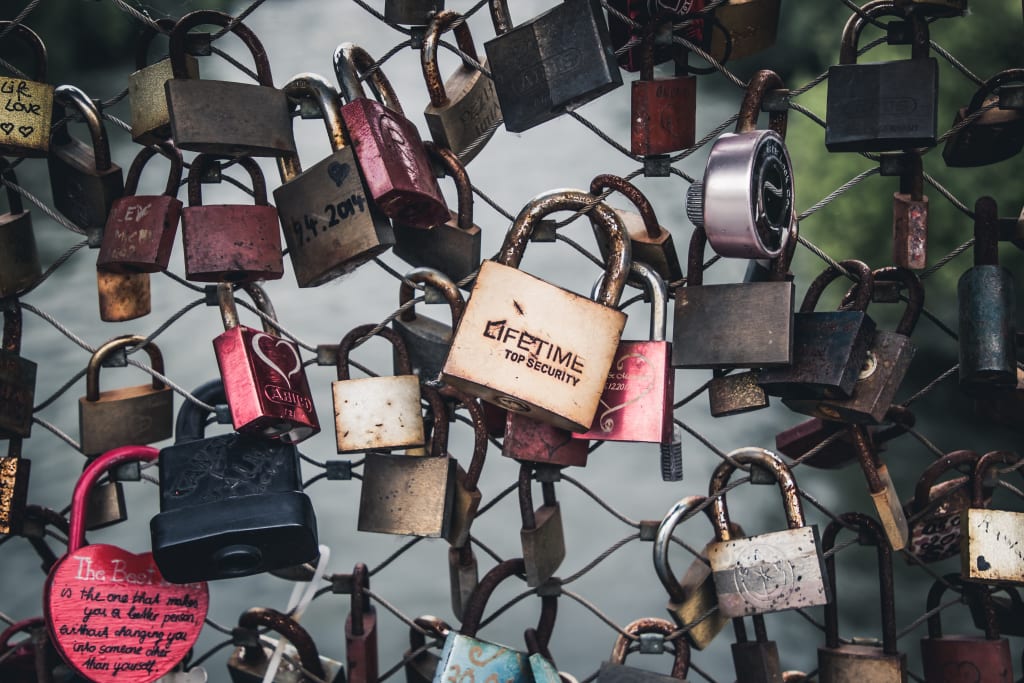
From drive-by purse snatchers to identity thieves to much more dangerous criminals like kidnappers and sex traffickers, there's always some story in the news about someone taking advantage of travelers.
So far in my travels, I've never had any serious problems, thank goodness, and the vast majority of travelers will never fall victim to anything more serious than pick-pocketing. Even so, I always keep these safety practices in mind when I travel, and I recommend you do, too.
If you're planning your next trip and wondering how to travel safely , look no further than these 15 simple and straightforward travel safety tips for your ultimate safe travel guide .
Also, check out which are the safest places to travel right now and this trip preparation guide.
1. Don't wear flashy jewelry
Wearing expensive, flashy jewelry is one sure way to make yourself an obvious target for robbery. Leave it at home, friends, especially if you plan to travel to crowded areas!
2. Drink responsibly
This has to be one of the most important safety tips for travelers .
Lots of people enjoy exploring the local nightlife while traveling, and there's nothing wrong with that. But keep in mind that it's even more important than ever to drink responsibly when you're traveling .
When you're away from home you’re more likely to get lost or end up in a dangerous neighborhood, and being obviously drunk makes you an easy target for scams, robbery, or worse.
Oh, and ladies, never forget the golden rule of safe drinking in public: keep an eye on your drink at all times!
3. Be smart about your money
Any solid resource of travel safety information will tell you that it's never a good idea to carry huge amounts of cash. Instead, open an account with an international bank or credit card company so you can use local ATMs . If you absolutely must withdraw large amounts of cash at once, leave the bulk of it locked up safely in your hotel or hostel and carry only what you'll need for the day.
When using ATMs, try to use only those that are attached to banks as these are less likely to have been tampered with by scammers.
Never keep all of your money in one place . Keep cash and credit cards in two or three different places so that if one of your stashes is stolen you aren't left completely empty-handed.
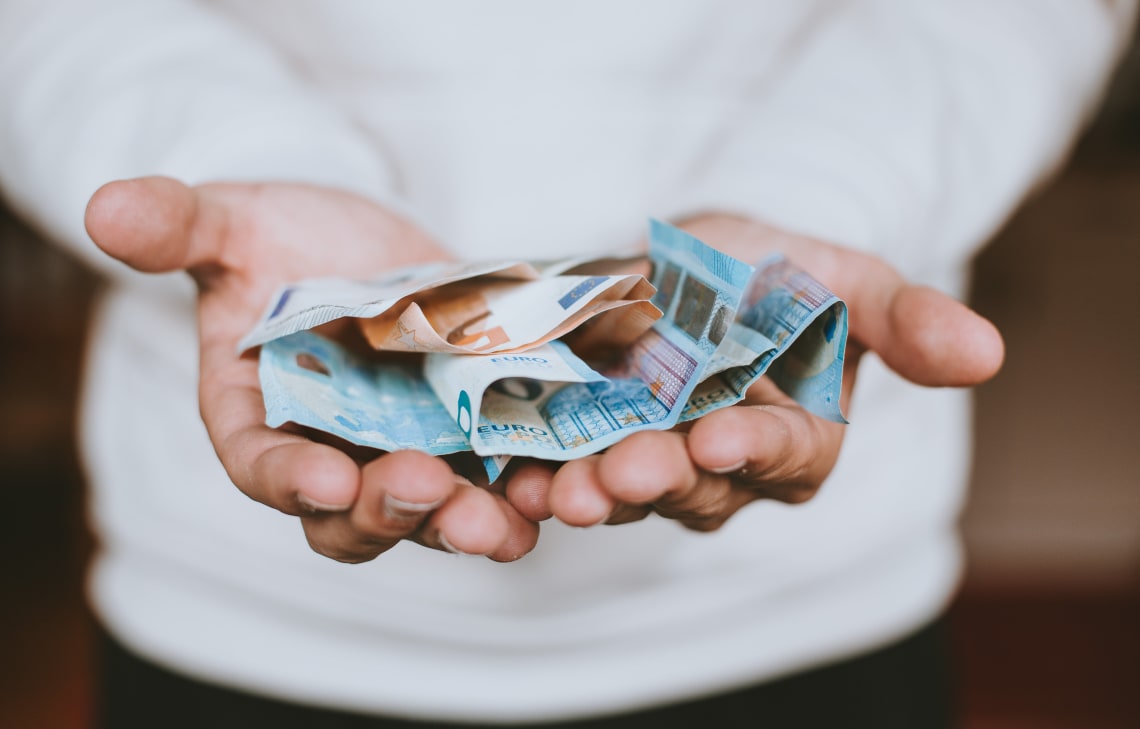
4. Be aware of popular scams
Research the place you're visiting to see what the local scammers are up to. Scams range from RFID scanners to ploys using children to play on your sympathy. You'll be less likely to fall for these scams if you've heard about them ahead of time.
5. Know the phone number for emergency services
Be sure to look up the emergency services number for your destination , even before you get there. It's also a good idea to look up the number for your country's nearest embassy before you leave. Write them down or save them in your phone so you'll have quick access to them in the event of an emergency.
6. Use the right bag
Cross-body bags are safer than shoulder or hand bags and can prevent people from grabbing your bag as they run or drive by. There are tons of bags made specifically for travelers with features such as slash-proof straps, RFID blockers, and locking zippers. Invest in a good bag that suits your needs and preferences.
7. Bring travel locks and use them
You can save a few bucks by coming prepared with your own lock if you plan to stay in a hostel. Even if you're not staying in a hostel, having a travel lock that can secure your bag to your seat or chair while dining or in transit will help keep your valuables safe from theft.
8. Keep digital copies of important documents
When traveling, your passport may be the most valuable thing you carry. In the event of a stolen passport, having a digital copy will help make the process of getting a replacement easier.
You may also like: The greatest travel hacking guide you need for a stress-free trip
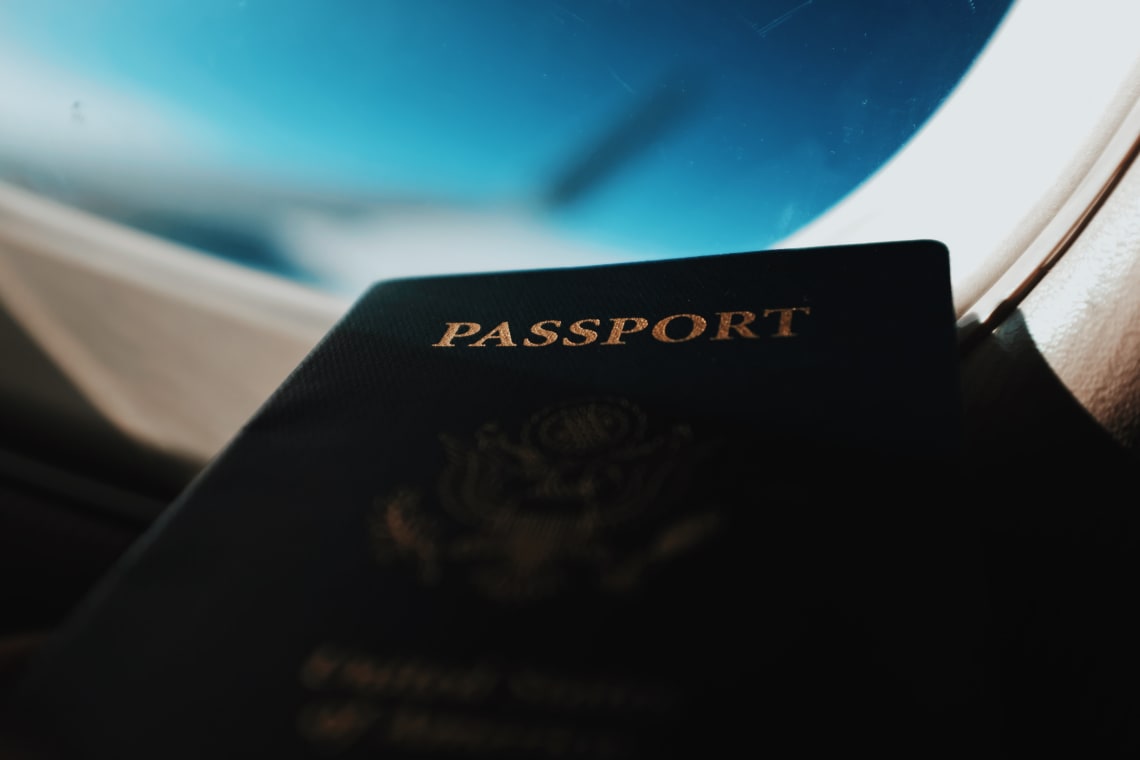
9. Try to blend in
Tourists tend to carry larger amounts of cash and valuables and are more vulnerable to scams. Try to avoid being an obvious tourist.
Dress as the locals do , don't stop abruptly in the middle of busy streets to take photos, and even when you're lost try not to make it apparent. If you need to ask for directions or consult a map, step inside a shop or cafe to do so.
10. Use reputable transportation companies
Research which taxi companies are reputable before you arrive in a place, and use only those. If you're ride-sharing using an app like Uber or Lyft, double check your driver's vehicle information and verify their name before you get in the car with them.
11. Check in with friends and family often
Before you leave let someone know your itinerary, and update them to any changes of plans. Make a habit of checking in with a close friend or family member back home at the end of each day.
I know this can seem like a hassle, but ultimately it's better to be safe than sorry. If something terrible were to happen, you'll get help faster if someone knows where you were supposed to be that day.
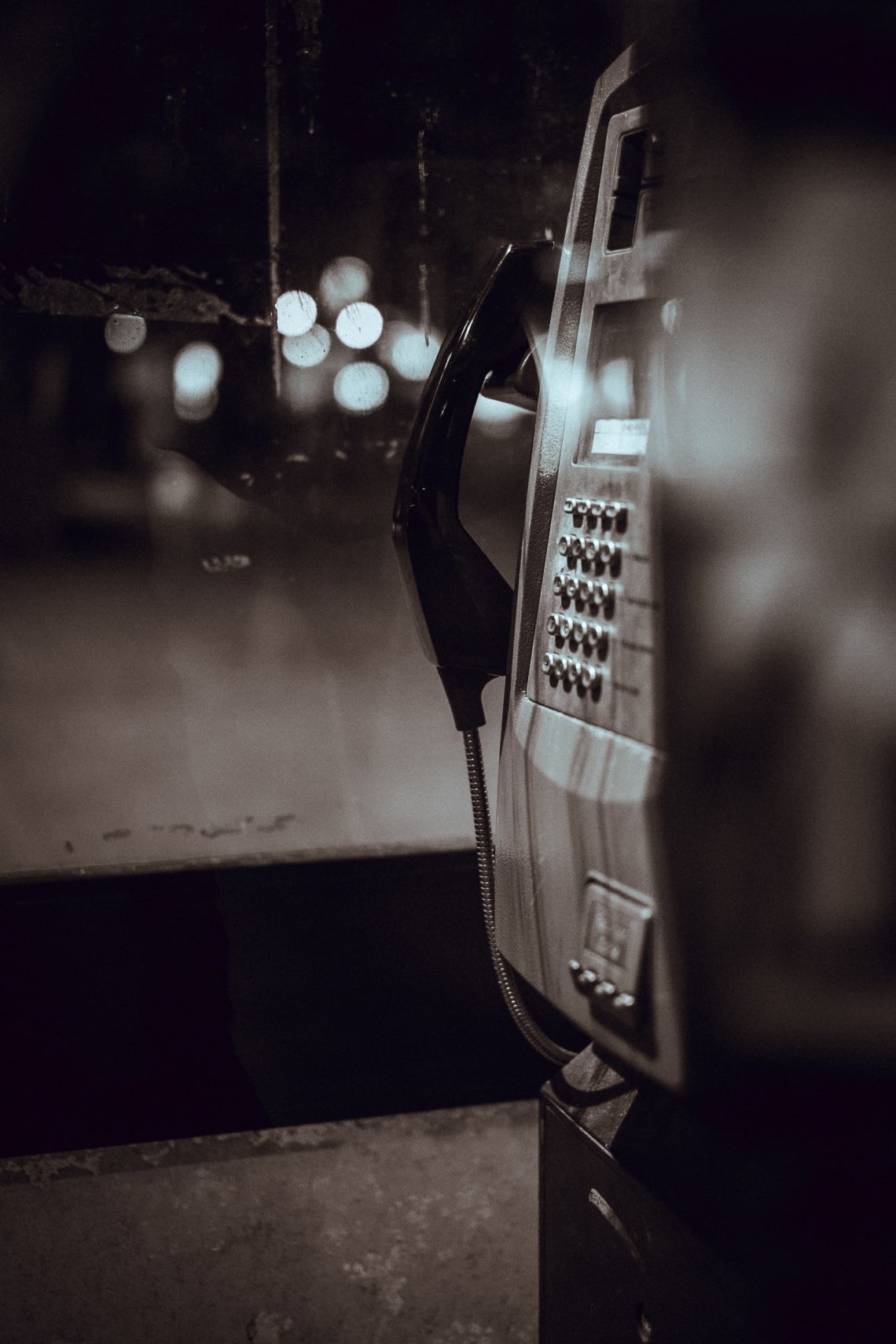
12. Ask locals for advice
When you check in at a hotel or hostel, ask for recommendations about which neighborhoods are safe and which are not so safe and mark places to avoid on your map.
13. Use apps for emergency alerts
There are a variety of apps out there aimed to provide safety travel information and help travelers safe.
- Sitata is a great app that alerts users to potential dangers or disruptions to travel in real time. It also includes tips for avoiding the latest scams and helps users locate nearby hospitals.
- Smart Traveler is the official U.S. State Department app for travelers. There are many useful features, including notifications for travel advisories and alerts and locations of U.S. embassies. I'm sure there are similar apps for citizens of other countries, but I was unable to find any information about them online.
14. Stay aware of your surroundings
You should always pay attention to what's going on around you , whether you are in a crowded tourist spot or walking down an empty street.
Would-be offenders often seek out people who are distracted or disengaged from their surroundings to target. This is particularly important for solo travelers, especially solo female travelers .
15. Trust your instincts
If someone or some place is making you uncomfortable, there's mostly likely a reason. Often our subconscious picks up on things that we aren't consciously aware of, and that's where our "gut feelings" come from. Listen to those feelings. They will help you stay safe.
Now that you're armed with these simple safety tips for traveling , it's time to get out and explore the world!
Happy and safe travels, everyone!
Join the community!
Create a free Worldpackers account to discover volunteer experiences perfect for you and get access to exclusive travel discounts!
Kimberli Brown
I recently quit my day job to chase my dream of traveling full-time.
Be part of the Worldpackers Community
Already have an account, are you a host, leave your comment here.
Write here your questions and greetings to the author
Mar 23, 2023
Jun 23, 2023
Traveling is an exhilarating experience, but it's important to prioritize safety. Your travel safety tips post provides valuable insights for globetrotters like myself. From researching destinations and securing travel insurance to staying vigilant and aware of local customs, these tips are indispensable for a worry-free journey. I particularly appreciate your emphasis on maintaining copies of important documents and staying connected with loved ones during travels. For more comprehensive travel safety resources, I highly recommend visiting Their website offers a wealth of information on travel safety measures, emergency contacts, and real-time updates on potential risks. Let's make safety a top priority and enjoy our adventures with peace of mind!
Traveling is an exhilarating experience, but it's important to prioritize safety. Your travel safety tips post provides valuable insights for globetrotters like myself. From researching destinations and securing travel insurance to staying vigilant and aware of local customs, these tips are indispensable for a worry-free journey. I particularly appreciate your emphasis on maintaining copies of important documents and staying connected with loved ones during travels. For more comprehensive travel safety resources, I highly recommend visiting foundme.com Travel safety tips. Their website offers a wealth of information on travel safety measures, emergency contacts, and real-time updates on potential risks. Let's make safety a top priority and enjoy our adventures with peace of mind!
Fantastic!!! twohillsseptic.ca
More about this topic

How to choose the best travel backpack
A beginner's guide on how to plan your travel budget
15 travel essentials to pack for your next adventure.
Worldpackers
How do worldpackers trips work.
As a member, you can contact as many hosts and travel safely as many times as you want.
Choose your plan to travel with Worldpackers as many times as you like.
Complete your profile, watch the video lessons in the Academy, and earn certificates to stand out to hosts.
Apply to as many positions as you like, and get in contact with our verified hosts.
If a host thinks you’re a good fit for their position, they’ll pre-approve you.
Get your documents and tickets ready for your volunteer trip.
Confirm your trip to enjoy all of the safety of Worldpackers.
Have a transformative experience and make a positive impact on the world.
If anything doesn’t go as planned with a host, count on the WP Safeguard and our highly responsive support team!
After volunteering, you and your host exchange reviews.
With positive reviews, you’ll stand out to hosts and get even more benefits.
- Credit cards
- View all credit cards
- Banking guide
- Loans guide
- Insurance guide
- Personal finance
- View all personal finance
- Small business
- Small business guide
- View all taxes
You’re our first priority. Every time.
We believe everyone should be able to make financial decisions with confidence. And while our site doesn’t feature every company or financial product available on the market, we’re proud that the guidance we offer, the information we provide and the tools we create are objective, independent, straightforward — and free.
So how do we make money? Our partners compensate us. This may influence which products we review and write about (and where those products appear on the site), but it in no way affects our recommendations or advice, which are grounded in thousands of hours of research. Our partners cannot pay us to guarantee favorable reviews of their products or services. Here is a list of our partners .
9 Ways To Travel More Safely

Many or all of the products featured here are from our partners who compensate us. This influences which products we write about and where and how the product appears on a page. However, this does not influence our evaluations. Our opinions are our own. Here is a list of our partners and here's how we make money .
Whether you're traveling within the U.S. or to a foreign country, you should take extra precautions to stay safe. Distractions born of travel — such as taking in the sights, eating delectable food and exploring new cities — can increase your risk.
But it doesn't have to be this way.
These international and domestic travel safety tips will help you reduce your risk so you can enjoy your vacation and avoid trouble as much as feasible. Here's how to travel safely — ranging from actions that can be implemented on the fly and ones that require a bit more preparation.
1. Digitize important documents
Your wallet or purse is filled with important documents that criminals can exploit. Leave unnecessary items at home (like your Social Security card) and make copies of everything else you would need in an emergency, like prescriptions, a backup credit card (so you can at least make a digital purchase in a pinch) and your passport.
Take a picture and upload them to a secure folder on the web. This way, if anything is stolen, you can easily take steps to reduce the damage that criminals can cause. You can easily call the bank to cancel debit and credit cards and request a new ID from the embassy. You can also use a secure digital vault system like 1Password or LastPass to store these documents.
2. Minimize how much cash you carry
It is important to have a little cash when traveling, but most retailers accept credit cards, even abroad. Not having cash minimizes your wallet's value to a thief, and you can dispute unknown charges from a card. Just make sure to carry a card that has no foreign transaction fees when traveling internationally.
3. Look less like a tourist
The more you dress and act like a local, the less risk there is from criminals targeting you as a tourist. Adapting your style to that of the locals, walking with confidence and keeping maps hidden can help you blend in. When using directions on your phone, only look at it briefly while walking.
Further, familiarize yourself with the city and your route before leaving the hotel. If you do need to look up directions for an extended period of time, consider stepping into a store or cafe to do so, rather than staying outside.
4. Share your itinerary with someone you trust
Whether you're traveling alone or with others, share your itinerary with someone you trust back home. Check in once a day to let them know that you've made it to your next destination or back to your hotel. These small steps increase your safety during travel.
It's also wise to create and share a safe word so that family or friends would know if you're in trouble, even if the conversation seems normal to someone else who may be listening. You can take this a step further and consider sharing your live location with a trusted friend or family member via your smartphone.
5. Research travel advisories for destinations
According to the U.S. Department of State, "conditions can change rapidly in a country at any time." Its website keeps a continuous list of travel advisories in destinations around the world. While these advisories don't always mean that you shouldn't travel, they do help make you aware of the potential conditions you'll find when you arrive, or areas to avoid.
Check the State Department website before making travel plans, and again before you depart. Somewhere that may have been safe when you booked your trip may have deteriorated since then.
6. Sign up for Smart Traveler Enrollment Program
The Smart Traveler Enrollment Program , or STEP, is a free service from the State Department that allows citizens traveling or living abroad to receive the latest security updates. The information that you provide also makes it easier for the nearest U.S. Embassy or consulate to contact you in an emergency.
7. Notify credit card companies of your travel plans
Because you may be traveling to cities outside your normal spending patterns, let your bank know your dates and destinations of travel. Many banks allow you to notify them via your online banking portal.
This will minimize the potential of the bank locking your account due to perceived fraudulent transactions, which could leave you stranded.
Additionally, consider bringing a backup credit card.
8. Be careful with public Wi-Fi
Wi-Fi can open your devices and sensitive information to hackers. Using a VPN service is one of the best ways we know of to stay safe in an airport, when exploring your destination or at your hotel. VPN services create a secure connection to protect your personal information when browsing the internet or using web-connected apps on an open connection.
Security.org , a security product review site, conducted a study in June 2020 and found that just 31% of U.S. internet users use a VPN service for public Wi-Fi connections. That means almost 70% of public Wi-Fi users are at risk of being hacked.
9. Get travel insurance
To improve both your physical and financial safety, consider purchasing a travel insurance policy ahead of your trip. This safety net is helpful in avoiding out-of-pocket expenses for emergency medical treatment, trip delays, cancellations or interruptions, lost luggage or evacuations.
Most policies will reimburse travelers for unused accommodations, transit or activities that were nonrefundable but had to be canceled for a covered reason. Similarly, if your luggage is lost by an airline or train company, you’ll likely get reimbursed through the baggage protection on your policy. Plus, if your policy has emergency medical coverage, you won’t be hit with a huge bill for medical attention overseas (where your U.S.-based health insurance is likely not useful).
Some credit cards come with built-in protections, whereas others don’t — in the case of the latter, you will need to purchase a stand-alone policy .
If finding ways to travel safely is your goal …
Now that we've shared some tips on how to travel safely, you can travel with more confidence and less risk. Though implementing most of these tips has little or no cost, they may take time to set up. Investing the time to increase your travel safety will be well worth it if you can avoid dangerous situations that can interrupt or ruin your next trip.
How to maximize your rewards
You want a travel credit card that prioritizes what’s important to you. Here are our picks for the best travel credit cards of 2023 , including those best for:
Flexibility, point transfers and a large bonus: Chase Sapphire Preferred® Card
No annual fee: Bank of America® Travel Rewards credit card
Flat-rate travel rewards: Capital One Venture Rewards Credit Card
Bonus travel rewards and high-end perks: Chase Sapphire Reserve®
Luxury perks: The Platinum Card® from American Express
Business travelers: Ink Business Preferred® Credit Card

on Chase's website
1x-5x 5x on travel purchased through Chase Travel℠, 3x on dining, select streaming services and online groceries, 2x on all other travel purchases, 1x on all other purchases.
75,000 Earn 75,000 bonus points after you spend $4,000 on purchases in the first 3 months from account opening. That's over $900 when you redeem through Chase Travel℠.

1.5%-5% Enjoy 5% cash back on travel purchased through Chase Travel, 3% cash back on drugstore purchases and dining at restaurants, including takeout and eligible delivery service, and unlimited 1.5% cash back on all other purchases.
Up to $300 Earn an additional 1.5% cash back on everything you buy (on up to $20,000 spent in the first year) - worth up to $300 cash back!

on Capital One's website
2x-5x Earn unlimited 2X miles on every purchase, every day. Earn 5X miles on hotels and rental cars booked through Capital One Travel, where you'll get Capital One's best prices on thousands of trip options.
75,000 Enjoy a one-time bonus of 75,000 miles once you spend $4,000 on purchases within 3 months from account opening, equal to $750 in travel.

10 ways to stay safe no matter where you’re traveling
Mar 31, 2023 • 4 min read
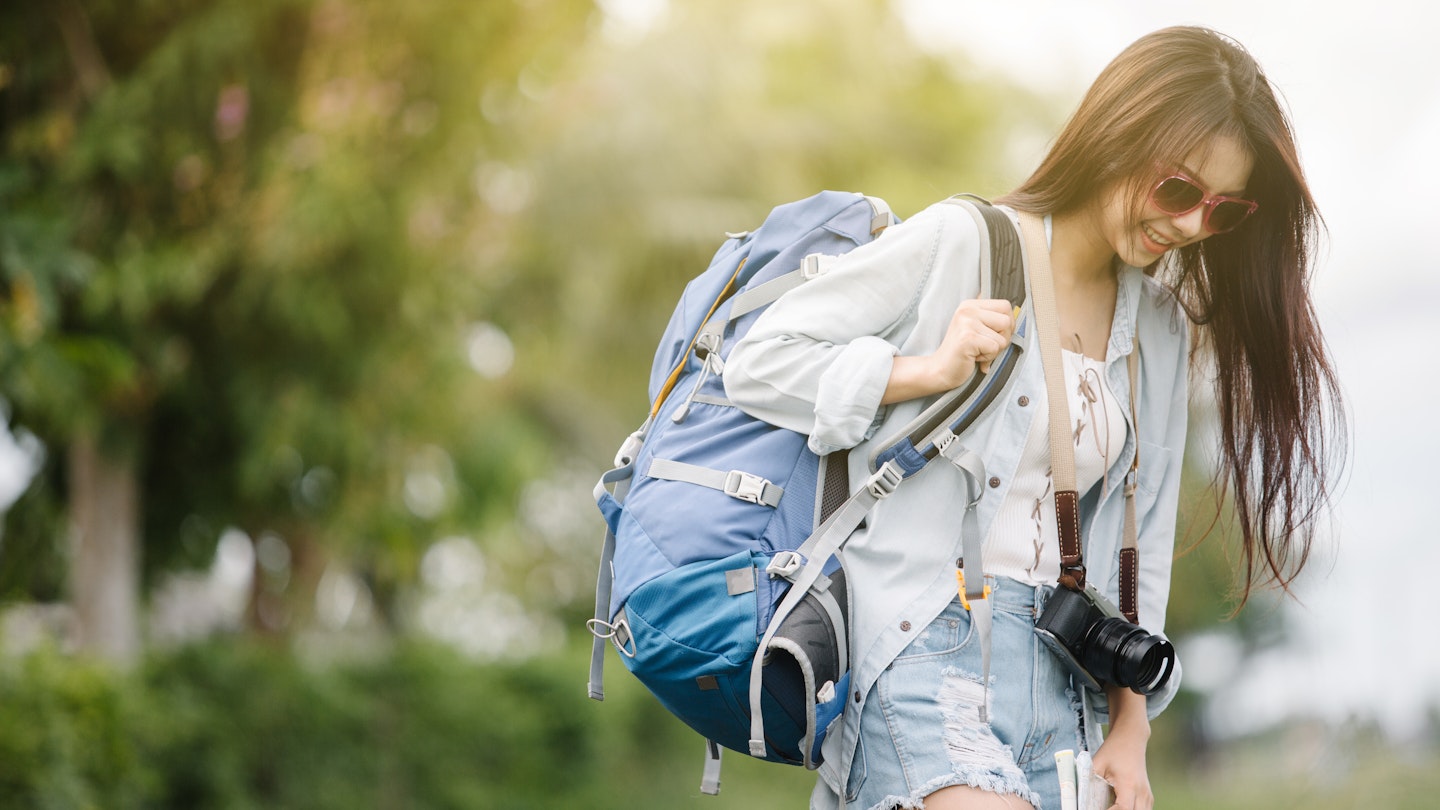
Safety and adventure aren’t mutually exclusive. These 10 tips can help you avoid almost any setback © AnemStyle / Shutterstock
Sponsored by
Travel always involves a bit of uncertainty. And there will always be location-specific warnings to observe depending on where you’re going. The good news is there are several proven precautions you can take ahead of time and while traveling to stay safe and navigate any unexpected catastrophes when away from home.
Here are 10 tried-and-true methods to dodge danger and maximize your enjoyment of practically any destination. Remember, safety and adventure aren’t mutually exclusive. And feeling anxious is totally natural. Either way, you got this!
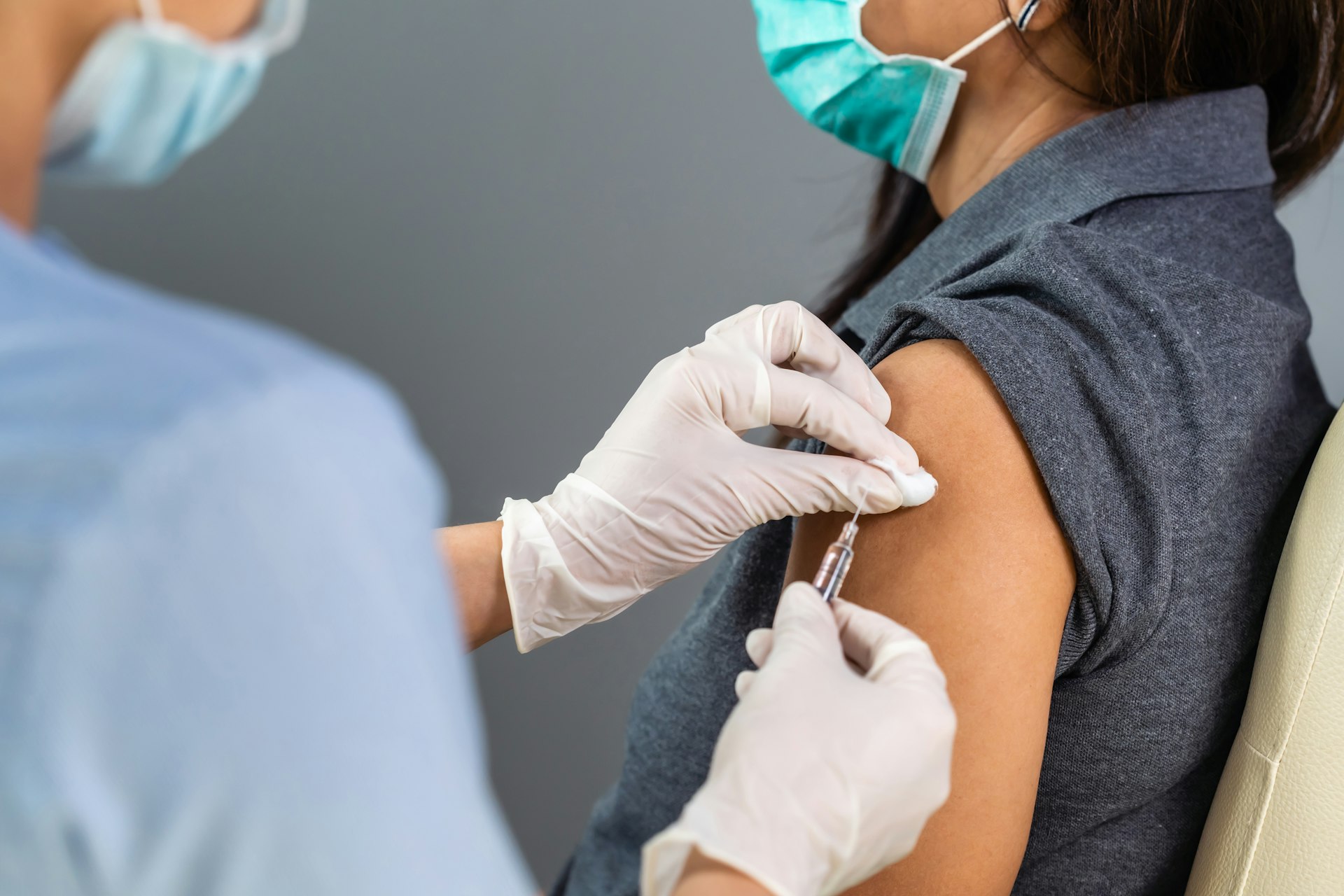
Before you leave
- Check local advisories. Traveling to Iowa comes with a different set of risks than, say, traveling to Africa. The same is true when traveling to Europe, Latin America, Asia, or to any specific country within every continent, let alone specific regions that demand their own precautions. For the latest information, if you’re traveling from the US check the State Dept website , as well as local news reports, and travel guides to your specific destination.
- Get your shots (where needed). Not every location demands special immunizations before visiting. But many of them do, especially less developed countries and continents. What’s more, the pandemic made things a lot more complicated, as certain countries drop or maintain proof of vaccination before entering. Either way, if you’re in the US check with the CDC for any destination-specific shots you might need before boarding your flight.
- Share your plans with emergency contacts. Doing so can be a simple but life-saving act, especially when traveling off-grid, on high adventure trips, or in more dangerous destinations. Tell your friends and loved ones when and where you’re going, what you’re doing, where you’re staying, how you’re traveling, and how they can get in touch with you should anything come up.

- Know common scams. In many countries, individuals might feign assistance and incessantly follow you, only to later demand payment for their unsolicited help. Others might wow you with offers that are too good to be true, work in teams to distract you and take your goods, or worse. Many travel advisories will include this information, but some extra online searches can go a long way to expose and help you avoid any harm to your wallet and/or your safety.
- Get travel insurance. If you really want to cover your bases while abroad, you’ll want travel insurance, such as that offered by Seven Corners . Doing so can help recoup your money if you need to cancel a trip (or your flight is delayed) and cover the cost of treating medical emergencies while traveling, including care at foreign hospitals and medical evacuation, lost bags, early returns home, and many other unexpected mishaps.

While traveling
- Know your limits. Feeling nervous before traveling somewhere new is normal. But if you’re feeling downright sick about your plans, you’ve probably bitten off more than you can chew. The best pre-test of an experience is whether you’re still excited about it, even if it’s something you’ve never done before. After you arrive, however, be sure to listen to your mind and body and back out of anything you’re not comfortable with.
- Eat and drink like your life depends on it. This is especially true on high adventure trips. Dehydration is easily preventable but amazingly one of the leading causes of illness while traveling abroad. So, drink more water than you think, plan for regular bathroom breaks, and stay away from street vendors unless you’re certain they’re free from food poison.

- Secure your valuables. It’s always important to protect your personal property, be it in parked rental cars, beach bags, or wallets and phones in your usually secure pockets. Again, travel advisories will often alert you to higher areas of petty theft but be on the extra lookout when traveling someplace new.
- Avoid getting too close to wildlife (or the edge of a cliff). Many years ago, an American college student was sadly (but unsurprisingly) eaten by a lion after sticking her head out of a car window while at Lion Park in Johannesburg, South Africa. Others become seriously sick after licking psychedelic toads in Sonora. And far too many tourists have fallen to their deaths while snapping selfies at the ends of a cliff. Don’t do it. No photo is worth your life or good health.
- Stay alert. Be on the lookout. If you’re not sure about something, step inside a public building, follow the crowd, and trust your gut, especially if you find yourself in unfamiliar surroundings or cultures. Although you may be tempted to “travel like a local,” don’t do it. You’re probably not as experienced as they are and that’s okay. Instead, travel like a respectful tourist and accept that you don’t know everything. Doing so will keep you safe.

Despite what the news will sometimes have you believe, the world is a safer than it has ever been. Yes, there are risks. But when traveling, these 10 tips can help you avoid almost any setback. Bon voyage!
Sponsored by Seven Corners
As a travel entertainment and inspirational media outlet, we sometimes incorporate brand sponsors into our efforts. This activity is clearly labeled across our platforms.
This story was crafted collaboratively between Seven Corners and Lonely Planet. Both parties provided research and curated content to produce this story. We disclose when information isn’t ours.
With sponsored content, both Lonely Planet and our brand partners have specific responsibilities:
Brand partner
Determines the concept, provides briefing, research material, and may provide feedback.
Lonely Planet
We provide expertise, firsthand insights, and verify with third-party sources when needed.
Explore related stories

May 23, 2024 • 5 min read
Following severe turbulence on a Singapore Airlines flight this week, we take a look at what turbulence is and the risks to passengers.

Oct 3, 2023 • 4 min read

Jun 2, 2024 • 12 min read

Jun 1, 2024 • 7 min read

Jun 2, 2024 • 6 min read

Jun 1, 2024 • 6 min read

May 31, 2024 • 7 min read

We may earn money when you buy through our links.
Home | News | How to Travel Safely
How to Travel Safely

SafeWise experts have years of firsthand experience testing the products we recommend. Learn how we test and review .
Beyond satellite safety and green strides, Apple's game-changer ? USB-C charging! Ditch those Lightning cables and pack just one cable for all your devices on your next adventure.
After once again getting used to going where we want when we want, COVID-19 dropped its latest variants . On September 11, 2023, the CDC approved new COVID boosters amid upticks in cases and hospitalizations across the U.S. And they encourage you to get it before your next trip.
“We have more tools than ever to prevent the worst outcomes from COVID-19,” said Director Mandy Cohen, M.D., M.P.H. “CDC is now recommending updated COVID-19 vaccination for everyone six months and older to better protect you and your loved ones.”
Knowing how to travel safely is always important, but during our current viral onslaught, safety is more crucial than ever. Amid a carousel of new variants and rising flu case counts, it can be hard to know what to do when it comes to travel these days.
To help you satisfy that wanderlust safely, we’ve updated our travel safety guidelines. We added specific tips about protecting yourself and your fellow travelers during the ongoing days of the coronavirus.
It’s important to stay updated on the latest travel guidance from the CDC to keep you and those you visit safe and healthy.
How to travel safely during COVID-19
Before you leave.
- Travel safety tips for the whole family
Safety tips for air travel
- While you're on vacation

Sign up for our free weekly newsletter to get the best safety news, product info, and deals.
By signing up, you agree to our Terms and Conditions and Privacy Policy.
Travel safety begins before you even leave the house. From making sure your home is secure to brushing up on current coronavirus restrictions wherever you're going, planning ahead sets you up for travel safety success.
Secure your home before you leave on vacation
To deter potential burglars, you want to make sure your home looks lived in even while you are away. Statistics show that burglaries tend to rise in the summer months, which is peak vacation time for most of us. And thieves know the best time to strike is when your home is vacant.
Here are some steps you can take to tighten security before you hit the road.
- Tell a neighbor your travel plans. Ask them to help keep an eye on your property and alert you of any suspicious activity.
- Lock all your windows and doors. Don’t forget about doors leading to the garage or second-story windows.
- Have mail and newspaper delivery stopped. A stack of mail and newspapers or garbage cans left at the curb are signs that nobody's home. You can temporarily stop delivery by contacting your newspaper carrier and the United States Post Office. And recruit a neighbor to bring in the garbage bins.
- Hire someone to help you keep up on yard work. An overgrown lawn or unshoveled walkway is a dead giveaway that no one's at home.
- Make sure any yard tools are put away. A ladder, rakes, and even patio furniture can all be used as tools to gain entry to your home.
- Don't post your travel plans on social media —if a burglar spots your post, it can turn your home into a target.
Some security systems let you stop and start professional monitoring without any contract or penalties. Find out if your home security system lets you turn on 24/7 monitoring while you're on vacation. That way you'll have someone keeping an eye on your house the whole time you're away.
Research coronavirus trends and restrictions
Travel can increase your risk of getting infected or spreading COVID-19 to others. Don't let the coronavirus ruin your getaway.
Take these steps before you leave to minimize your risk during vacation.
- Check coronavirus trends. Find out if coronavirus infections are spreading both where you're traveling from and at your destination. This can help you decide what risk you may pose to others and the risk they may pose to you.
- Research coronavirus restrictions. See if the city, county, or state where you're going has any restrictions on visitors. In addition to smart practices like social distancing and wearing a mask or other face covering, some places require visitors from COVID-19 hotspots to self-isolate for up to 10 days.
- Get tested. If you're visiting people who are at high risk for serious illness, or if you're not fully vaccinated, the CDC recommends a COVID-19 test one to three days before you travel.
- Stock up on essentials. Make sure you have plenty of hand sanitizer and face masks. We recommend carrying a ziplock or other reusable bag where you can easily store and retrieve face coverings, sanitizing wipes, and hand sanitizer. This way, if you have to take off your mask, you won't lay it on a surface or throw it in a pocket or bag. It also makes it easier to sanitize your hands without touching everything in your bag.
Travel safety for the whole family
People have different travel needs, depending on things like age or ability. Make sure everyone who's traveling with you is safe and comfortable with these family safety travel tips.
Travel safety tips for kids and babies
- Bring a car seat. Whether you're driving or flying, youngsters that require a car seat need to have one during vacation. If you're flying and have a lot of stops, it might make sense to invest in a lightweight car seat that's easy to move from plane to plane. And make sure your car seat is FAA approved.
- Pack sanitizing wipes. Wipes make it easy to disinfect anything your child touches (including themselves) when you're on the go. Wipe down chairs, tables, airplane trays, and toys—especially if you have a little one that likes to stick everything in their mouth.
- Wash their hands. Whenever you have the chance, hit the sink. Wipes and hand sanitizer are great in a pinch, but nothing beats washing their hands with soap and water for at least 20 seconds.
- Make masks fun. Children over 2 years-old should wear a cloth face covering in public. To make this feel like less of a chore, get your kiddos some special masks for the trip. You can get masks with fun patterns, bright colors, or even find some emblazoned with their favorite characters.
- Social distance. Do what you can to keep your kids at least six feet away from others who are not in your immediate family. This can be especially crucial if you're visiting someone who's at high-risk for COVID-19 complications.
- Consider a GPS tracker . It doesn't take a pandemic to make us panic if we lose sight of a child in an unfamiliar or crowded place . Make things easier on your blood pressure and safer for your little one with a kids GPS tracker that lets you keep an eye on that tiny wanderer no matter where they go.
Travel safety tips for seniors
- Assess risk. You don't want a road trip or plane ride to end in illness. Because age can make the symptoms and complications of COVID-19 more critical, assess your health and the general health of each person you're traveling with or visiting. If there are any signs of illness, it's best to reconsider your travel plans.
- Wear sturdy shoes. Falls are always a threat , so stay steady on your feet, whether you're sight-seeing or rushing to your gate at the airport. Sacrifice fashion for safety with reliable tennis shoes or other supportive footwear that gives your body the balance and bounce it needs.
- Social distance. Make sure that to stay at least six feet away from older family and friends you see during your travels. If you're reuniting with folks you haven't seen in months, it's tempting to hug or plant a kiss on a loved one's cheek. But those momentary greetings can result in infection. Get creative with air hugs, elbow bumps, and other safe ways to show your love.
- Air it out. It's fun to huddle around the dining table or share a family puzzle, but if you're seeing some people for the first time, it's best to stick to the outdoors. Have a picnic, go for a walk, or set up some lawn chairs for fresh air social distancing.
- Keep it small. The more people you interact with (especially in higher-risk settings like in the airport, a store, or in someone's home), the higher your chances of being exposed to the coronavirus. Try to get together in small groups—10 or fewer is best—regardless of state or city guidelines that may approve larger gatherings.
- Consider a medical alert device. If you have a medical condition that puts you at risk for a fall, fainting, or any condition that could leave you unable to call for help, a medical alert pendant can be a lifesaver. It also makes it easier for someone to access your medical records if you need help when you're far from home. If you already have a medical alert device, talk to your provider before you leave to make sure it will work when you're traveling.
Airports are full of people, all rushing to catch a plane or make a connection. On top of normal airport safety, if you decide to fly right now, you should take precautions to limit the spread of COVID-19.
Here are some travel tips to help you safely navigate the airport both during the pandemic and any time you fly:
- Watch your bags. You need to keep a close eye on your luggage at all times, even once you board the plane.
- Team up. If you’re traveling alone, try to find someone in line to befriend. This is someone who could watch your luggage while at the counter or going through security.
- Protect your laptop. When going through security, put your laptop on the x-ray belt last. This way, your laptop will come out after your carryon luggage and hopefully about the time you are cleared. You don’t want your laptop in the open for too long.
- Sanitize. Carry hand sanitizer or disinfecting wipes to wipe down your hands, bags, laptop, and phone after going through security. If you're cleaning your hands with hand sanitizer, be sure to use a generous amount and rub it into your hands for at least 20 seconds.
- Wash your hands. If you have time, stop at the nearest bathroom to wash up in soap and water—that's the best way to stop the coronavirus from spreading.
- Wear a comfortable mask. Both in the airport and during your flight, you need to wear a face covering. This will likely be the longest stretch you've had to wear a mask (unless you're an essential worker), so pack one that fits well and is comfortable. Fidgeting or adjusting it constantly defeats the purpose of wearing the mask.
- Store your carry-on nearby. On the airplane, if you don’t put your luggage under the seat in front of you, put it in the overhead bin across the aisle from you. You’ll be able keep an eye on your bag during the flight to ensure nobody is opening your luggage.
- Wipe things down. When you get to your seat, wipe down the seat, the safety belt buckle, the tray, and anything else that gets touched (especially if you're traveling with little ones).
- Try to limit contact. Airlines are no longer booking flights for social distancing, so chances are you'll be seated next to, behind, or in front of someone else. If possible, request a window or middle seat. We think the window is best because you won't have someone climbing over you or rubbing elbows when they head down the aisle to the bathroom.
- Don't be shy. If you see an empty row or end up next to someone who's sneezing or coughing a lot, ask if you can move to a different seat. This is no time to hesitate. It's perfectly acceptable for you to look out for your own health.
If you decide to skip the airplane and hit the open road instead, read our tips for a safe road trip during the pandemic.
While on vacation
You’ve successfully navigated the airport and now you’ve landed safety at your destination. Don’t relax on safety just yet. Whether at a theme park or at a fancy resort, there are a few safety precautions (on top of washing your hands and social distancing) that you can take to make sure you're as safe as possible.
- Stay off social media. Don’t tip criminals off by sharing too much information on your social networks. Refrain from posting photos, status updates, or “checking in” while on vacation. Even if you have the highest security settings on Facebook and Twitter, your personal information could still be seen by unwanted eyes.
- Tell friends and family at home your itinerary. It’s a good idea to tell family and friends about your plans. Always let someone know when you’re expected to be back and what route you’re planning to take.
- Go contactless. Whenever possible, choose contactless options to check into your room, get meals delivered, or purchase tickets if you're going to any events or venues.
- Keep cash and credit cards in separate places. Never carry your credit cards, cash, and passport at the same time. You’ll want to keep some cash in your wallet, and then stash the rest in a pocket or money pouch. If you have a safe in your hotel room, leave the majority of your cash there and only bring what you’ll need for the day.
- Make a copy of your passport. You’ll want to make two copies of your passport. Leave one copy at home with a trusted friend or family member and take another copy with you. When you go out sightseeing, take the copy with you and leave the original in a hotel safe until you are ready to travel again.
- Do a security sweep of your hotel room. Always keep your hotel door locked and never answer it for someone you don’t know. If you can, try to get a room near the front desk or the elevator.
- Do a sanitizing sweep of your hotel room. Even though hotels are stepping up their cleaning routines during the pandemic, you may want to roll up your sleeves and do some extra disinfecting.
- Keep your mask on. During your vacation activities, it's important to keep up the habit of donning a face covering in crowded or indoor settings—even if it's just down the hall to the ice machine. On second thought, don't even use the communal ice machine.
You can never be too careful, especially when it comes to traveling. Make sure things are safe at home and while you are traveling by taking the necessary precautions.
Related Pages on SafeWise
- The Ultimate Guide to Preparing Your Home before Vacation
- Holiday Travel Tips
- How to Travel Safely With Your Kids on Vacation
- How to Find Pet Care While You’re On Vacation
- Tips for Traveling Safely With Your Pet
- How to Protect Yourself from Nosey Neighbors
- 5 Tips for Securing Your Vacation Home
- Best Home Security Systems
Recent Articles

About Contact Press News Deals
Home Security Internet Security Home Safety Family Safety Senior Safety
Car Safety Smart Home Emergency Prep Pet Safety Personal Safety
Subscribe to SafeWise for updates on safety news, product releases, and deals!
- COVID-19 travel advice
Considering travel during the pandemic? Take precautions to protect yourself from COVID-19.
A coronavirus disease 2019 (COVID-19) vaccine can prevent you from getting COVID-19 or from becoming seriously ill due to COVID-19 . But even if you're vaccinated, it's still a good idea to take precautions to protect yourself and others while traveling during the COVID-19 pandemic.
If you've had all recommended COVID-19 vaccine doses, including boosters, you're less likely to become seriously ill or spread COVID-19 . You can then travel more safely within the U.S. and internationally. But international travel can still increase your risk of getting new COVID-19 variants.
The Centers for Disease Control and Prevention (CDC) recommends that you should avoid travel until you've had all recommended COVID-19 vaccine and booster doses.
Before you travel
As you think about making travel plans, consider these questions:
- Have you been vaccinated against COVID-19 ? If you haven't, get vaccinated. If the vaccine requires two doses, wait two weeks after getting your second vaccine dose to travel. If the vaccine requires one dose, wait two weeks after getting the vaccine to travel. It takes time for your body to build protection after any vaccination.
- Have you had any booster doses? Having all recommended COVID-19 vaccine doses, including boosters, increases your protection from serious illness.
- Are you at increased risk for severe illness? Anyone can get COVID-19 . But older adults and people of any age with certain medical conditions are at increased risk for severe illness from COVID-19 .
- Do you live with someone who's at increased risk for severe illness? If you get infected while traveling, you can spread the COVID-19 virus to the people you live with when you return, even if you don't have symptoms.
- Does your home or destination have requirements or restrictions for travelers? Even if you've had all recommended vaccine doses, you must follow local, state and federal testing and travel rules.
Check local requirements, restrictions and situations
Some state, local and territorial governments have requirements, such as requiring people to wear masks, get tested, be vaccinated or stay isolated for a period of time after arrival. Before you go, check for requirements at your destination and anywhere you might stop along the way.
Keep in mind these can change often and quickly depending on local conditions. It's also important to understand that the COVID-19 situation, such as the level of spread and presence of variants, varies in each country. Check back for updates as your trip gets closer.
Travel and testing
For vaccinated people.
If you have been fully vaccinated, the CDC states that you don't need to get tested before or after your trip within the U.S. or stay home (quarantine) after you return.
If you're planning to travel internationally outside the U.S., the CDC states you don't need to get tested before your trip unless it's required at your destination. Before arriving to the U.S., you need a negative test within the last day before your arrival or a record of recovery from COVID-19 in the last three months.
After you arrive in the U.S., the CDC recommends getting tested with a viral test 3 to 5 days after your trip. If you're traveling to the U.S. and you aren't a citizen, you need to be fully vaccinated and have proof of vaccination.
You don't need to quarantine when you arrive in the U.S. But check for any symptoms. Stay at home if you develop symptoms.
For unvaccinated people
Testing before and after travel can lower the risk of spreading the virus that causes COVID-19 . If you haven't been vaccinated, the CDC recommends getting a viral test within three days before your trip. Delay travel if you're waiting for test results. Keep a copy of your results with you when you travel.
Repeat the test 3 to 5 days after your trip. Stay home for five days after travel.
If at any point you test positive for the virus that causes COVID-19 , stay home. Stay at home and away from others if you develop symptoms. Follow public health recommendations.
Stay safe when you travel
In the U.S., you must wear a face mask on planes, buses, trains and other forms of public transportation. The mask must fit snugly and cover both your mouth and nose.
Follow these steps to protect yourself and others when you travel:
- Get vaccinated.
- Keep distance between yourself and others (within about 6 feet, or 2 meters) when you're in indoor public spaces if you're not fully vaccinated. This is especially important if you have a higher risk of serious illness.
- Avoid contact with anyone who is sick or has symptoms.
- Avoid crowds and indoor places that have poor air flow (ventilation).
- Don't touch frequently touched surfaces, such as handrails, elevator buttons and kiosks. If you must touch these surfaces, use hand sanitizer or wash your hands afterward.
- Wear a face mask in indoor public spaces. The CDC recommends wearing the most protective mask possible that you'll wear regularly and that fits. If you are in an area with a high number of new COVID-19 cases, wear a mask in indoor public places and outdoors in crowded areas or when you're in close contact with people who aren't vaccinated.
- Avoid touching your eyes, nose and mouth.
- Cover coughs and sneezes.
- Wash your hands often with soap and water for at least 20 seconds.
- If soap and water aren't available, use a hand sanitizer that contains at least 60% alcohol. Cover all surfaces of your hands and rub your hands together until they feel dry.
- Don't eat or drink on public transportation. That way you can keep your mask on the whole time.
Because of the high air flow and air filter efficiency on airplanes, most viruses such as the COVID-19 virus don't spread easily on flights. Wearing masks on planes has likely helped lower the risk of getting the COVID-19 virus on flights too.
However, air travel involves spending time in security lines and airport terminals, which can bring you in close contact with other people. Getting vaccinated and wearing a mask when traveling can help protect you from COVID-19 while traveling.
The Transportation Security Administration (TSA) has increased cleaning and disinfecting of surfaces and equipment, including bins, at screening checkpoints. TSA has also made changes to the screening process:
- Travelers must wear masks during screening. However, TSA employees may ask travelers to adjust masks for identification purposes.
- Travelers should keep a distance of 6 feet apart from other travelers when possible.
- Instead of handing boarding passes to TSA officers, travelers should place passes (paper or electronic) directly on the scanner and then hold them up for inspection.
- Each traveler may have one container of hand sanitizer up to 12 ounces (about 350 milliliters) in a carry-on bag. These containers will need to be taken out for screening.
- Personal items such as keys, wallets and phones should be placed in carry-on bags instead of bins. This reduces the handling of these items during screening.
- Food items should be carried in a plastic bag and placed in a bin for screening. Separating food from carry-on bags lessens the likelihood that screeners will need to open bags for inspection.
Be sure to wash your hands with soap and water for at least 20 seconds directly before and after going through screening.
Public transportation
If you travel by bus or train and you aren't vaccinated, be aware that sitting or standing within 6 feet (2 meters) of others for a long period can put you at higher risk of getting or spreading COVID-19 . Follow the precautions described above for protecting yourself during travel.
Even if you fly, you may need transportation once you arrive at your destination. You can search car rental options and their cleaning policies on the internet. If you plan to stay at a hotel, check into shuttle service availability.
If you'll be using public transportation and you aren't vaccinated, continue physical distancing and wearing a mask after reaching your destination.
Hotels and other lodging
The hotel industry knows that travelers are concerned about COVID-19 and safety. Check any major hotel's website for information about how it's protecting guests and staff. Some best practices include:
- Enhanced cleaning procedures
- Physical distancing recommendations indoors for people who aren't vaccinated
- Mask-wearing and regular hand-washing by staff
- Mask-wearing indoors for guests in public places in areas that have high cases of COVID-19
- Vaccine recommendations for staff
- Isolation and testing guidelines for staff who've been exposed to COVID-19
- Contactless payment
- Set of rules in case a guest becomes ill, such as closing the room for cleaning and disinfecting
- Indoor air quality measures, such as regular system and air filter maintenance, and suggestions to add air cleaners that can filter viruses and bacteria from the air
Vacation rentals, too, are enhancing their cleaning procedures. They're committed to following public health guidelines, such as using masks and gloves when cleaning, and building in a waiting period between guests.
Make a packing list
When it's time to pack for your trip, grab any medications you may need on your trip and these essential safe-travel supplies:
- Alcohol-based hand sanitizer (at least 60% alcohol)
- Disinfectant wipes (at least 70% alcohol)
- Thermometer
Considerations for people at increased risk
Anyone can get very ill from the virus that causes COVID-19 . But older adults and people of any age with certain medical conditions are at increased risk for severe illness. This may include people with cancer, serious heart problems and a weakened immune system. Getting the recommended COVID-19 vaccine and booster doses can help lower your risk of being severely ill from COVID-19 .
Travel increases your chance of getting and spreading COVID-19 . If you're unvaccinated, staying home is the best way to protect yourself and others from COVID-19 . If you must travel and aren't vaccinated, talk with your health care provider and ask about any additional precautions you may need to take.
Remember safety first
Even the most detailed and organized plans may need to be set aside when someone gets ill. Stay home if you or any of your travel companions:
- Have signs or symptoms, are sick or think you have COVID-19
- Are waiting for results of a COVID-19 test
- Have been diagnosed with COVID-19
- Have had close contact with someone with COVID-19 in the past five days and you're not up to date with your COVID-19 vaccines
If you've had close contact with someone with COVID-19 , get tested after at least five days. Wait to travel until you have a negative test. Wear a mask if you travel up to 10 days after you've had close contact with someone with COVID-19 .
- How to protect yourself and others. Centers for Disease Control and Prevention. https://www.cdc.gov/coronavirus/2019-ncov/prevent-getting-sick/prevention.html. Accessed Feb. 4, 2022.
- Domestic travel during COVID-19. Centers for Disease Control and Prevention. https://www.cdc.gov/coronavirus/2019-ncov/travelers/travel-during-covid19.html. Accessed Feb. 4, 2022.
- Requirement for face masks on public transportation conveyances and at transportation hubs. Centers for Disease Control and Prevention. https://www.cdc.gov/coronavirus/2019-ncov/travelers/face-masks-public-transportation.html. Accessed Feb. 4, 2022.
- International travel. Centers for Disease Control and Prevention. https://www.cdc.gov/coronavirus/2019-ncov/travelers/international-travel/index.html. Accessed Feb. 4, 2022.
- U.S citizens, U.S. nationals, U.S. lawful permanent residents, and immigrants: Travel to and from the United States. Centers for Disease Control and Prevention. https://www.cdc.gov/coronavirus/2019-ncov/travelers/international-travel-during-covid19.html. Accessed Feb. 4, 2022.
- Non-US. citizen, non-U.S. immigrants: Air travel to the United States. Centers for Disease Control and Prevention. https://www.cdc.gov/coronavirus/2019-ncov/travelers/noncitizens-US-air-travel.html. Accessed Feb. 4, 2022.
- People with certain medical conditions. Centers for Disease Control and Prevention. https://www.cdc.gov/coronavirus/2019-ncov/need-extra-precautions/people-with-medical-conditions.html. Accessed Feb. 4, 2022.
- Stay up to date with your vaccines. Centers for Disease Control and Prevention. https://www.cdc.gov/coronavirus/2019-ncov/vaccines/stay-up-to-date.html. Accessed Feb. 4, 2022.
- Pack smart. Centers for Disease Control and Prevention. https://wwwnc.cdc.gov/travel/page/pack-smart. Accessed Feb. 4, 2022.
- Travel: Frequently asked questions. Centers for Disease Control and Prevention. https://www.cdc.gov/coronavirus/2019-ncov/travelers/faqs.html. Accessed Feb. 7, 2022.
- Coronavirus (COVID-19) information. Transportation Security Administration. https://www.tsa.gov/coronavirus. Accessed Feb. 7, 2022.
- WHO advice for international traffic in relation to the SARS-CoV-2 Omicron variant (B.1.1.529). World Health Organization. https://www.who.int/news-room/articles-detail/who-advice-for-international-traffic-in-relation-to-the-sars-cov-2-omicron-variant. Accessed Feb. 7, 2022.
- VRHP/VRMA Cleaning guidelines for COVID-19. Vacation Rental Management Association. https://www.vrma.org/page/vrhp/vrma-cleaning-guidelines-for-covid-19. Accessed Feb. 7, 2022.
- Safe stay. American Hotel & Lodging Association. https://www.ahla.com/safestay. Accessed Feb. 7, 2022.
- Khatib AN, et al. COVID-19 transmission and the safety of air travel during the pandemic: A scoping review. Current Opinion in Infectious Diseases. 2021; doi:10.1097/QCO.0000000000000771.
Products and Services
- A Book: Endemic - A Post-Pandemic Playbook
- Begin Exploring Women's Health Solutions at Mayo Clinic Store
- A Book: Future Care
- Antibiotics: Are you misusing them?
- COVID-19 and vitamin D
- Convalescent plasma therapy
- Coronavirus disease 2019 (COVID-19)
- COVID-19: How can I protect myself?
- Herd immunity and respiratory illness
- COVID-19 and pets
- COVID-19 and your mental health
- COVID-19 antibody testing
- COVID-19, cold, allergies and the flu
- Long-term effects of COVID-19
- COVID-19 tests
- COVID-19 drugs: Are there any that work?
- COVID-19 in babies and children
- Coronavirus infection by race
- COVID-19 vaccine: Should I reschedule my mammogram?
- COVID-19 vaccines for kids: What you need to know
- COVID-19 vaccines
- COVID-19 variant
- COVID-19 vs. flu: Similarities and differences
- COVID-19: Who's at higher risk of serious symptoms?
- Debunking coronavirus myths
- Different COVID-19 vaccines
- Extracorporeal membrane oxygenation (ECMO)
- Fever: First aid
- Fever treatment: Quick guide to treating a fever
- Fight coronavirus (COVID-19) transmission at home
- Honey: An effective cough remedy?
- How do COVID-19 antibody tests differ from diagnostic tests?
- How to measure your respiratory rate
- How to take your pulse
- How to take your temperature
- How well do face masks protect against COVID-19?
- Is hydroxychloroquine a treatment for COVID-19?
- Loss of smell
- Mayo Clinic Minute: You're washing your hands all wrong
- Mayo Clinic Minute: How dirty are common surfaces?
- Multisystem inflammatory syndrome in children (MIS-C)
- Nausea and vomiting
- Pregnancy and COVID-19
- Safe outdoor activities during the COVID-19 pandemic
- Safety tips for attending school during COVID-19
- Sex and COVID-19
- Shortness of breath
- Thermometers: Understand the options
- Treating COVID-19 at home
- Unusual symptoms of coronavirus
- Vaccine guidance from Mayo Clinic
- Watery eyes
U.S. travel resources
- Check CDC recommendations for travel within the U.S.
- Review testing requirements for travel to the U.S.
- Look up restrictions at your destination .
- Review airport security measures .
Related resources
Your gift holds great power – donate today.
Make your tax-deductible gift and be a part of the cutting-edge research and care that's changing medicine.
You are using an outdated browser. Upgrade your browser today or install Google Chrome Frame to better experience this site.
Before You Travel
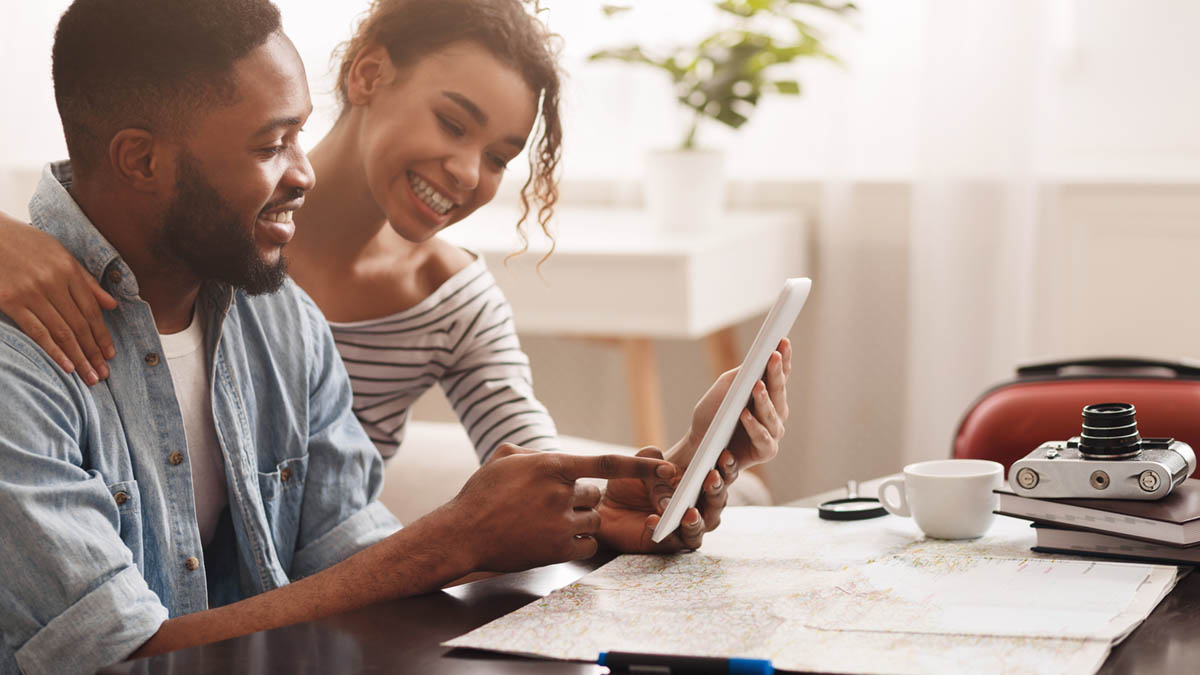
Before you travel, take steps to prepare so you can stay safe and healthy during your trip.
Check CDC’s destination pages for travel health information . Check CDC’s webpage for your destination to see what vaccines or medicines you may need and what diseases or health risks are a concern at your destination.
Make sure you are up-to-date on all of your routine vaccines . Routine vaccinations protect you from infectious diseases such as measles that can spread quickly in groups of unvaccinated people. Many diseases prevented by routine vaccination are not common in the United States but are still common in other countries.
Know Your Health Status
Make an appointment with your healthcare provider or a travel health specialist that takes place at least one month before you leave. They can help you get destination-specific vaccines, medicines, and information. Discussing your health concerns, itinerary, and planned activities with your provider allows them to give more specific advice and recommendations.
Learn About Blood Clots
Airplane travel, especially flights longer than 4 hours, may increase your risk for blood clots, including deep vein thrombosis and pulmonary embolism. Learn how to prevent blood clots during travel.
Share the following information about yourself or your trip with your provider:
- Special conditions such as pregnancy, allergies, or chronic health problems.
- Destinations on your itinerary.
- Type of accommodations (hotels, hostels, short term rentals).
- Type of travel (cruise, business, adventure travel).
- Timing and length of your trip.
- Planned activities.
Take recommended medicines as directed. If your doctor prescribes medicine for you, take the medicine as directed before, during, and after travel. Counterfeit drugs are common in some countries, so only take medicine that you bring from home and make sure to pack enough for the duration of your trip, plus extra in case of travel delays. Learn more about traveling abroad with medicine .
Plan for the Unexpected
Sometimes unexpected issues occur during travel. Learn what you can do before you leave to protect yourself and your travel companions.
Get travel insurance. Find out if your health insurance covers medical care abroad. Travelers are usually responsible for paying hospital and other medical expenses out of pocket at most destinations. Make sure you have a plan to get care overseas , in case you need it. Consider buying additional insurance that covers health care and emergency evacuation, especially if you will be traveling to remote areas.
There are different types of travel insurance such as trip cancellation insurance, travel health insurance and medical evacuation insurance. Learn more about travel insurance .
Enroll with the Department of State’s Smart Traveler Enrollment Program (STEP) . Check for and monitor any travel advisories for your destination. Enrolling also ensures that the US Department of State knows where you are if you have serious legal, medical, or financial difficulties while traveling. In the event of an emergency at home, STEP can also help friends and family contact you.
Prepare for emergencies. Leave copies of important travel documents (e.g. itinerary, contact information, credit cards, passport, proof of school enrollment) with someone at home, in case you lose them during travel. Make sure someone at home knows how to reach you in an emergency. Carry your emergency contacts with you at all times.
Some other tips to prepare for emergencies:
- Write down the contact information of people or services you may need while abroad.
- Check in with someone regularly during your trip.
- Dial 1-888-407-4747 if calling from the United States or Canada,
- Dial 00 1 202-501-4444 if calling from overseas, or
- Let family members know they can contact the embassy or consulate for help if they are worried about your safety while abroad.
Prepare a travel health kit with items you may need, especially those items that may be difficult to find at your destination. Include your prescriptions and over-the-counter medicines in your travel health kit and take enough to last your entire trip, plus extra in case of travel delays. Depending on your destination you may also want to pack a mask , insect repellent , sunscreen (SPF15 or higher), aloe, alcohol-based hand sanitizer, water disinfection tablets, and your health insurance card.
More information for some travelers who may need to take extra precautions:
- Traveling with a disability
- Travelers with a weakened immune system
- Traveling with a chronic illness
- Pregnant travelers
Follow CDC’s guidance on how to stay safe during travel and after travel .
File Formats Help:
- Adobe PDF file
- Microsoft PowerPoint file
- Microsoft Word file
- Microsoft Excel file
- Audio/Video file
- Apple Quicktime file
- RealPlayer file
- Zip Archive file
Exit Notification / Disclaimer Policy
- The Centers for Disease Control and Prevention (CDC) cannot attest to the accuracy of a non-federal website.
- Linking to a non-federal website does not constitute an endorsement by CDC or any of its employees of the sponsors or the information and products presented on the website.
- You will be subject to the destination website's privacy policy when you follow the link.
- CDC is not responsible for Section 508 compliance (accessibility) on other federal or private website.
National Geographic content straight to your inbox—sign up for our popular newsletters here

A traveler walks through Amsterdam’s Schiphol Airport May 13, 2020. Netherlands-based KLM Royal Dutch Airlines, like most carriers, now requires passengers to cover their faces to board planes.
- CORONAVIRUS COVERAGE
Is it safe to travel now? It depends.
Here are the best practices for getting on the road without endangering your health—or anyone else’s.
Although many restrictions are still in place, travel is slowly starting up again. People locked down for months want to stretch their legs, see something other than a screen, and boost the economy. Restaurants and some tourist attractions (Florida’s Universal Orlando Resort, The Museum of Fine Arts, Houston) are opening for local and domestic travel. A few countries (Greece, Italy) are starting to welcome international travelers.
But how can you safely explore a world of potentially deadly encounters with friendly people who might infect you (or who you might expose to the virus)? Is the airplane really a soaring petri dish? Is visiting a national park possible while social distancing? And if you choose a seemingly safer road trip, can you stop to use a public restroom?
A poll by National Geographic and Morning Consult finds that just 2 percent of 2,200 Americans said they’d jump on a plane now, and only another 8 percent would consider it later this summer. That’s wise with travel advisories still in place, including the U.S. Centers for Disease Control and Prevention (CDC) warnings against international travel and cautions about travel within the U.S. , and with many countries and states ( Maine , Hawaii ) still requiring 14 days of post-travel self-isolation regardless of symptoms.
As we recently report, travel planning is good for your mental health . Knowing more about real and perceived COVID-19 risks might help you feel better about getting out as roadblocks lift. Here are best practices for travelers.
Should I get on an airplane?
Challenge: Being crammed next to strangers in a flying metal tube
Best practice: It’s reassuring to know that “data to date suggest only rare possible occurrences of in-flight transmission” of COVID-19, says Dr. Lin H. Chen , associate professor at Harvard Medical School and director of Cambridge’s Travel Medicine Center at Mount Auburn . She explains that if everyone follows the World Health Organization’s guidelines , the risk of transmission aboard planes, and anywhere else, is significantly reduced.

A plastic drape covers an airline check-in counter at Amsterdam’s Schiphol Airport on March 27, 2020. Barriers like this between workers and travelers are meant to help prevent the spread of COVID-19.
“Many people think they get sick on an airplane, but the reality is that the air quality on an airplane is actually really good—high amounts of clean outdoor air and all recirculated air passes through a HEPA filter,” says Joe Allen . An assistant professor and director of the Healthy Buildings Program at Harvard T.H. Chan School of Public Health, Allen explains that you’re more likely to pick up a bug standing in line at airport security, at the boarding gate, or on the subway.
Airports and airlines are trying to minimize the risks of contagions in their often-crowded environments. Intensive cleaning is now the norm; planes are now being fogged with electrostatic disinfectant that sticks to surfaces like seatbelts. Some airlines give you wipes and the Transportation Security Administration has upped the size of hand sanitizer bottles you can bring on board from 3.4 ounces to 12.
(Related: What’s the safest seat to claim on the plane?)
Face coverings are required to board most flights. Airlines are trying to seat people so they have more space. But that doesn’t necessarily mean middle seats are remaining empty, especially with reductions in numbers of flights. There’s no national U.S. policy yet, but several airlines are checking for fevers. They won’t let you fly with a temperature above 100.4℉ (though testing is far from foolproof).
Internationally, some destinations require proof of a negative COVID-19 test; other destinations test passengers on arrival. Many have mandatory 14-day quarantines, sometimes requiring you to submit a quarantine plan for approval, download an app, or get a tracking bracelet to ensure you follow the rules. Vaccination certification may eventually be needed for travel, but so far the science doesn’t support “immunity passports” or proof that a person has had COVID-19 and is, in theory, immune.
Should I head to a national park?
Challenge: Avoiding big crowds in the great outdoors
Best practice: “There are many health benefits to being outside in nature, and the risks are low and manageable,” says Allen. The key is keeping a six-foot distance. A good practice at a park is to pretend that other people are grizzly bears and stay away from them.
Check the National Park Service’s find-a-park website to see if the park is closed or partially closed (restrooms and food services, in particular), for limits on numbers of visitors, and other rules like mask-wearing. Avoid group activities that involve close contact and practice social distancing at camp sites. Joyce Sanchez , an infectious disease specialist and medical director of the Travel Health Clinic at Froedtert and the Medical College of Wisconsin, reminds us that “summer is tick and mosquito season,” so don’t forget your bug spray and sunscreen (though perhaps a face-mask tan will become a badge of honor that you’re doing your part to protect others).
(Related: Learn how COVID closures are impacting the small town bordering Yellowstone and Grand Teton National Parks.)
Should I rent a cottage by the sea?
Challenge : Assessing the safety of beaches and vacation rentals
Best practice: Like park trips, seaside vacations are great if you can stay away from others and obey beach closure rules. There’s no evidence you can catch COVID-19 from the water (it’s other people you should be concerned about). Remember to bring your two best beach friends: reef-safe sunscreen free of oxybenzone and hand sanitizer.

A woman sunbathes in a roped-off social-distancing zone on the beach in La Grande Motte in southern France.
Regarding rentals, ask whether properties are cleaned according to public health guidelines, such as the WHO’s accommodation sector advice . Airbnb’s Enhanced Cleaning Initiative includes a 24- to 72-hour vacancy period between guests (though cleaners may visit during that window), but it’s likely unnecessary given evidence that the coronavirus floats in the air only up to three hours. Since it’s possible for the virus to live on surfaces for two or three days , you could give high-touch surfaces an extra clean. As Chen says, “good hand washing should overcome potentially contaminated touching.” If anxiety outweighs the benefits of a vacation, it’s a sign you’re not ready to venture out yet.
Should I stay in a hotel?
Challenge: Distancing safely and trusting housekeeping
Best practice: Hotels that take better care of their employees (by providing them with personal protective equipment and paid sick leave) are more likely to take better care of you. Check the website of any hotel you’re considering to determine how they’re responding to COVID-19. Many U.S. hotels are following the American Hotel and Lodging Association’s new Safe Stay guidelines .
Choose properties that base their protocols on science, rather than things that sound good but have little effect or take focus away from areas that really matter. Look for hotels that have installed plexiglass at reception and that require staff to wear masks, or where you can check-in online and use your phone as your room key.
(Related: Want to stay healthy on the road? Follow these germ-fighting tips.)

In Pristina, Kosovo, a worker in a protective suit sprays disinfectant in a hotel room to prevent the spread of coronavirus.
Avoid elevators and, if able, “take the opportunity to exercise and use the stairs,” advises Sanchez. Room service may be safer than the restaurant. Go for a swim if the pool isn’t crowded: Standard pool cleaning kills viruses, so the pool is probably safe; it’s the people you need to worry about. While clean rooms are important, what’s more important is staying six feet away from others. And, of course, wash your hands when you arrive in your room and again before you leave.
Should I use a public restroom?
Challenge: Taking care of business in busy bathrooms
Best practice: Assume public restrooms “are not properly disinfected and treat surfaces as if they have live virus on them,” says Sanchez. That said, it’s often necessary to use. When you do, choose single-stall and well-ventilated bathrooms if you can, and keep your distance from others.
Chen says that “good hand hygiene is key after using a public bathroom,” meaning wash and dry your hands; if there’s no soap, use hand sanitizer. She adds “I am unaware of any data to show that flushing aerosolizes SARS-CoV-2 and transmits the virus.” Regardless, it’s always good practice to put the lid down before you flush .
What about people who don’t wear masks?
Challenge: Staying safe while respecting others’ boundaries
Best practice: Following all the new COVID-19 protocols takes some getting used to. It’s easy to revert to pre-pandemic habits in new situations, when we’re stressed, and when we’re trying to relax and have fun. Being as kind and understanding as possible helps minimize stress.
Setting a good example is the best way to encourage others. Jonathon Day , associate professor and graduate program director at Purdue’s School of Hospitality and Tourism Management , says “safety when traveling (and when out and about in general) is a ‘co-creation.’”
“If it’s someone you know who is non-mask-wearing [or] non-social-distancing, it might be worth discussing the reasoning behind these measures,” says Chen. Remember that not everyone can wear a mask and that we’re all human and can forget the new norms. You could politely ask anyone who gets too close “would you mind giving us a bit more space, please?” but it might be easier just to move away from them. It’s likely not worth the risk, or the stress, to confront a stranger. If you can’t escape the situation, ask a store manager or flight attendant for help.
Remember that, with communicable diseases, “if everyone is responsible to themselves and community/society, then we would all be safer,” says Chen.
Know the safety basics
We’re still learning about COVID-19. But one consensus is that it seems to spread most easily by close contact between people. The CDC says that touching objects isn’t the main way of contracting it .
This means that whenever you’re away from home, the most important thing you can do is maintain a six-foot (or more) distance from people you don’t live with. Wearing a face covering also minimizes the chance you’ll pass a virus or other illness to others.
Other key prevention measures, outlined by the World Health Organization and other public health authorities: washing your hands well, avoiding touching your face, coughing and sneezing into your elbow, disinfecting frequently touched items like your phone, and staying home if you’re sick. Practicing these measures keeps you—and everyone else—safer, regardless of how far you roam. “COVID-19 has shown that we have shared responsibilities to reduce spread,” says Chen, who’s president of the International Society of Travel Medicine .
General considerations for travel
During a pandemic, going to the grocery store—let alone traveling to another city or country—requires new protocols. Follow policies about lockdown restrictions and mandatory quarantines, both at home and at your planned destination. The CDC provides links to the rules of each state’s and territory’s health departments . Many international borders remain closed to nonessential travel, and some countries also limit domestic travel between regions.
Examine your personal situation. Extra cautions are needed for anyone at elevated risk of contracting COVID-19 . Check post-travel quarantine rules, including your employer’s. Just as important as protecting you and your loved ones is shielding other people. You don’t want to bring the virus from your community, especially to places with low case numbers, or bring it home (the CDC tracks cases and deaths by state and county ). Consider whether the benefits of travel outweigh the risk that you might spread the virus.
When deciding where to go and how you’ll get there, scrutinize how easy it will be to stay away from other people. “Generally speaking, driving is going to be safer than flying commercially from an infection standpoint because you can control how you reach your destination—who is sharing the car with you, what measures are used for disinfecting surfaces, where you stop along the way, and when you return,” says Sanchez.
Related Topics
- CORONAVIRUS
- BEACH ACTIVITIES
You May Also Like

9 travel stories our readers loved in 2023

6 tips to make your next beach trip more sustainable
For hungry minds.

A break in Llandudno, a vintage Welsh beachside resort with enduring appeal

New tools offer peace of mind for pandemic travel

10 best things to do in Alaska

A guide to Brighton, Britain's most progressive seaside resort

10 of the best hotels in Rio de Janeiro, from party houses to beach boltholes
- Environment
- Paid Content
- Photography
- Perpetual Planet
History & Culture
- History & Culture
- History Magazine
- Mind, Body, Wonder
- Terms of Use
- Privacy Policy
- Your US State Privacy Rights
- Children's Online Privacy Policy
- Interest-Based Ads
- About Nielsen Measurement
- Do Not Sell or Share My Personal Information
- Nat Geo Home
- Attend a Live Event
- Book a Trip
- Inspire Your Kids
- Shop Nat Geo
- Visit the D.C. Museum
- Learn About Our Impact
- Support Our Mission
- Advertise With Us
- Customer Service
- Renew Subscription
- Manage Your Subscription
- Work at Nat Geo
- Sign Up for Our Newsletters
- Contribute to Protect the Planet
Copyright © 1996-2015 National Geographic Society Copyright © 2015-2024 National Geographic Partners, LLC. All rights reserved
31 Travel Safety Tips Everyone Should Know
Enhance your travel safety with practical steps like registering travel plans with embassies, insuring your trips, and learning local customs to blend in seamlessly.

Travel, whether it’s near or far, has so many benefits. It can be an eye-opening educational experience, and it’ll make you feel united with the world around you. It might even change your life—BUT only if you’re safe!
Like any new experience, travel does not come without its risks. That’s why I’ve put together these travel safety tips: to help you plan ahead, stay aware of your surroundings, and give you peace of mind as you embark on your next adventure!
Register with Your Embassy In Case of Natural Disaster or Civil Unrest
Despite all our best planning, we can never be prepared for extreme forces outside of our control. Registering with your Embassy before you travel ensures that if something truly dangerous happens in the country you’re visiting, you know your government will be actively looking out for your safety and well-being.
This includes situations like the Earthquake and Tsunami in Japan, or the civil uprising in Nicaragua last year. In these cases, the US Embassies actively worked to help American citizens evacuate safely. They can also help you with issues regarding your passport.
Registration is usually simple. For Americans, go online to the STEP (Smart Traveler Enrollment Program) web page to submit your passport information, travel dates, and destinations. This will notify Embassies in your region so that if disaster strikes they can contact you quickly and begin assisting you.
Check the State Department Website for Travel Warnings
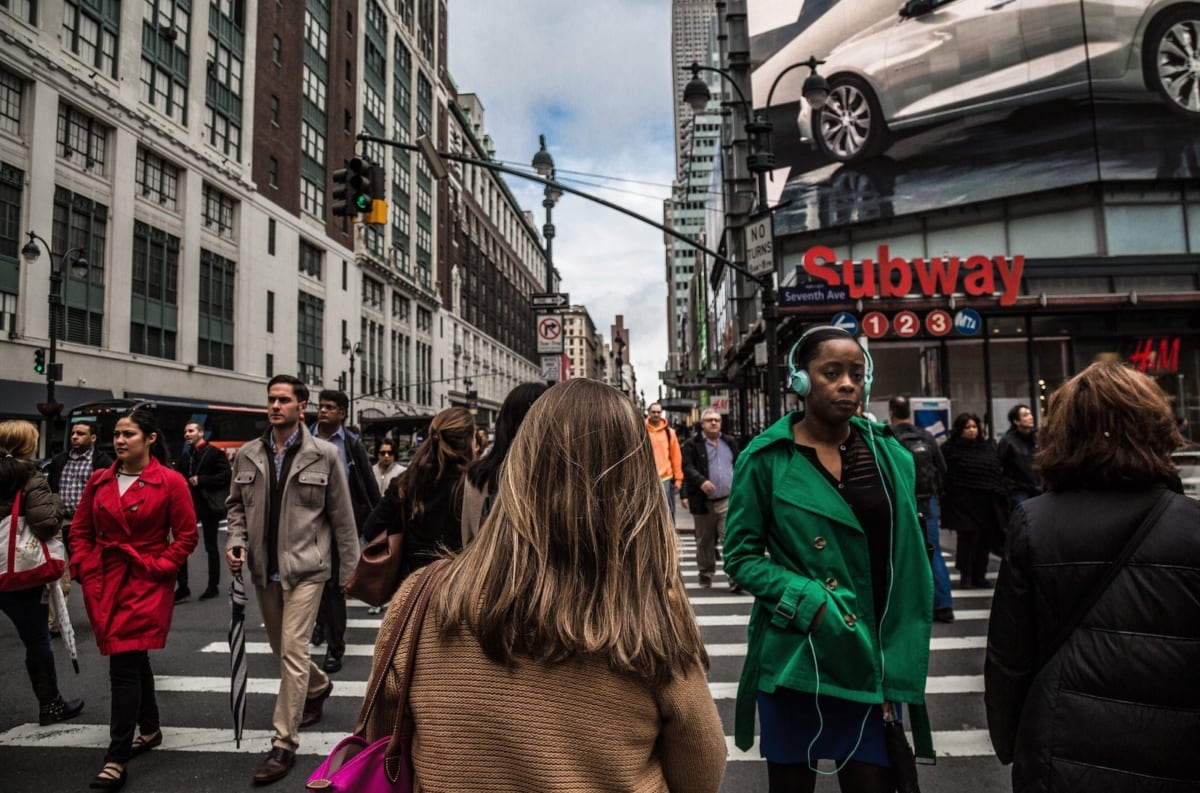
Researching all the exciting things you can do and see while on travel is a big part of the fun. But while you’re looking at paragliding in Colombia , or the best museums to visit in Paris (seriously, go see the D’Orsay), take some time to read the latest from the State Department’s travel safety warnings.
Now, most of the time these are worst-case scenarios, and the warnings generally list what could happen in that region–not necessarily what will happen. Still, it’s best to have a look and to keep checking for updates as you get closer to your arrival.
Travel warnings will usually be accompanied by useful travel safety tips. Things like pickpocketing are prevalent in most urban destinations, but warnings of things like violent crime should not be taken lightly.
Do your research, read carefully, and put yourself in a situation to avoid the most reported on areas. As travelers, we love the excitement of exploring new destinations and learning more about the world, but that doesn’t mean we need to put ourselves in unnecessary danger.
You can even sign up to get email updates for travel tips and warnings on the area you’ll be visiting.
Get Travel Insurance for Peace of Mind
This is one of the most important travel safety tips. This necessity is too often seen as a luxury, but in regards to safety, there is no question that the list of benefits for getting travel insurance far outweighs the cost. Trip cancellation or delay, lost baggage, and emergency medical coverage are must-haves.
At this point, the question of travel insurance should not be “ is travel insurance worth it? ” but rather “which travel insurance company is best for my next trip?” It’s no secret that there are travel insurance companies out there that may be trying to take advantage of you by charging high deductibles or making it nearly impossible to file a claim, but that shouldn’t deter you from seeking the travel insurance coverage you need.
Make sure you report your loss as soon as possible to expedite the claims process. And don’t forget to insure your electronics. Camera equipment, laptop, and cell phones can be covered depending on the insurance company.
If you’re unsure how to choose the best travel insurance company, fill out the form below to instantly get a quote.
Share Your Travel Itinerary with Family and Friends So They Know Where You’re Heading
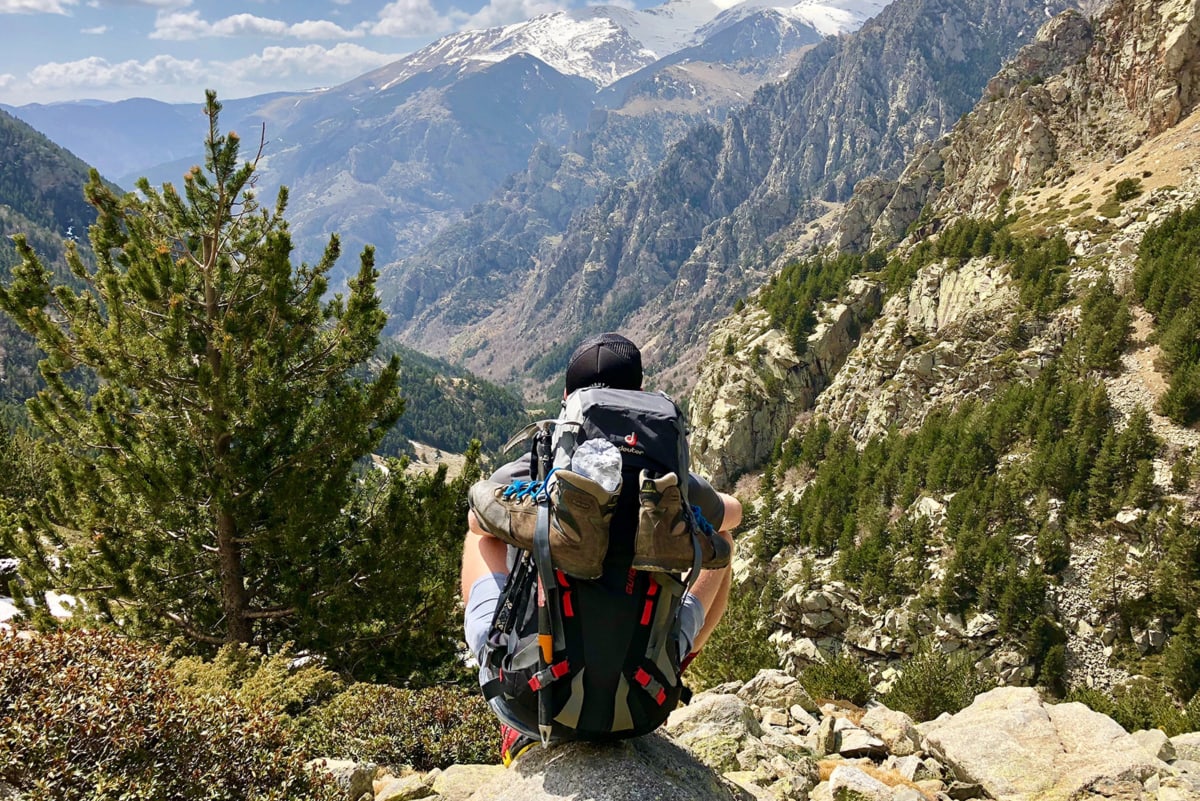
I know that some of you might prefer to go rogue for a few months. Freedom and privacy may be highly coveted, but too much of a good thing can sometimes put you in a bind.
Give close relatives or friends a general breakdown of your travel itinerary before you take off, even if your itinerary is a loose one. A list of the countries and cities that you will be visiting and your dates of travel is a good start.
This serves two purposes: they’ll feel good knowing that they’ve got some insight into your travel and that you know you plan to travel safely, and you’ll have an extra cushion of someone looking out for you while you’re off exploring.
Social media is a great way to keep people updated as you go, but oversharing can put you at risk. Make sure you’ve updated your privacy settings to keep strangers off your social media if you plan to use those platforms to share your actual travel plans.
And remember to send your close friends and family a more detailed note if your travel itinerary changes considerably. If you’ve canceled your plans to hang out in London in favor of traveling with the new friends you just met in Italy, we urge you to let someone know where you’re headed.
Seek Out Updated Location Specific Travel Safety Tips So You Know Recent Trends
When it comes to travel safety tips, scams, and trends, no two destinations are the same. Because of this, the travel safety tips you read for one country or city may not apply to the next.
Be specific with your research when it comes to the latest information on travel safety tips. Don’t just search “is Morocco safe?” but search “2019 safety tips for Marrakech.”
This applies to talking to locals during your travels too. If you’re planning to head to a new city nearby, ask the locals if they’ve heard any news or have any tips to travel safety in that area. Chances are, they’ll have a lot of insight for you.
Hostel staff are also a great resource here. They may be local to the area, or they may be travelers like yourself with some pretty good tips on safety in the immediate area. Whether it’s bars with bad reputations, common travel scams, panhandling, or pickpocketing sights, your hostel staff will (usually) know about it.
And then share what you’ve learned–make sure to share those travel safety tips with friends you meet along the way.
Get the Right Vaccinations to Stay Healthy
Getting sick while traveling sucks. So you take a few over the counter meds and spend a day in bed. But getting super sick? Like, Dengue fever sick? That can be the end of your travels for the foreseeable future.
Be preemptive. In some cases, you need to prove you’re vaccinated from certain diseases before some countries will even let you in.
Do your research on vaccination requirements, and carry your shot-card (often a little yellow book) with your passport so you’re always prepared to show it at immigration.
Notify Your Bank So They Don’t Freeze Your Card When You’re Traveling
This one is simple and only takes a few minutes. But not doing it, and having your credit card frozen, can cause you hours or even days of frustration and could pose a serious problem.
If your bank doesn’t know that you’re traveling in other countries, they may see your charges or withdrawals as potentially fraudulent and freeze your credit card. Once that happens, you’re going to struggle to call them internationally during their business hours to verify your purchases and to get your credit card reactivated.
Most banks offer this feature on their mobile banking app. Simply enter your travel dates and destinations to report to the bank that you’ll be on the move.
Have Multiple Banks Accounts So You Can Transfer Money Easily
Losing your bank card or having it stolen is a traveler’s nightmare. But if you have multiple bank accounts, it could just be a hiccup instead of a show-stopper.
Give yourself the ability to transfer your funds remotely by having at least two working bank accounts. They can even be with the same bank.
If your bank card goes missing, call the authorities, freeze your bank card, and then move your money to your other account. That way, you can keep going with your travels while the bank and the authorities take care of your open case or claim.
The same goes for credit cards. Don’t be put in a bad situation where you can’t access your own money.
Write Down Emergency Information to Speed up Assistance
There are a few important aspects to emergency information: your medical information, your passport information, and local emergency points of contact.
You should always carry a card on you with your medical information like blood type, allergies, and someone to contact (usually your parents or spouse). That way, if something happens to you, it gives very crucial information to whoever is providing you aid.
And wherever you chose to keep that is where you should also have a little card where you’ve jotted down things like the country’s emergency phone number (it may not be 911).
When you check into your hostel, hang out a minute longer at the front desk and copy down the local emergency information. Put it in your phone as well, but that should not be the only place you’ve got it.
Learn Basic Self-Defense for Protection
Note that I didn’t say “learn to beat someone up” or “perfect your three-finger punch.”
Basic self-defense is an important skill to be used in a worst-case scenario. Learning to defend yourself includes learning how to diffuse a dangerous situation without personal altercation, as well as the importance of buying yourself time to get away quickly and safely.
The goal is to avoid conflict and keep yourself safe. It is not your job to teach someone else a lesson with your cool kung-fu moves.
Consider taking some krav maga or karate lessons before you travel, and emphasize to your trainer that your goal is self-defense. Find an instructor that guides you in the right direction.
Book Your Travel with Trusted Sources to Avoid Getting Scammed
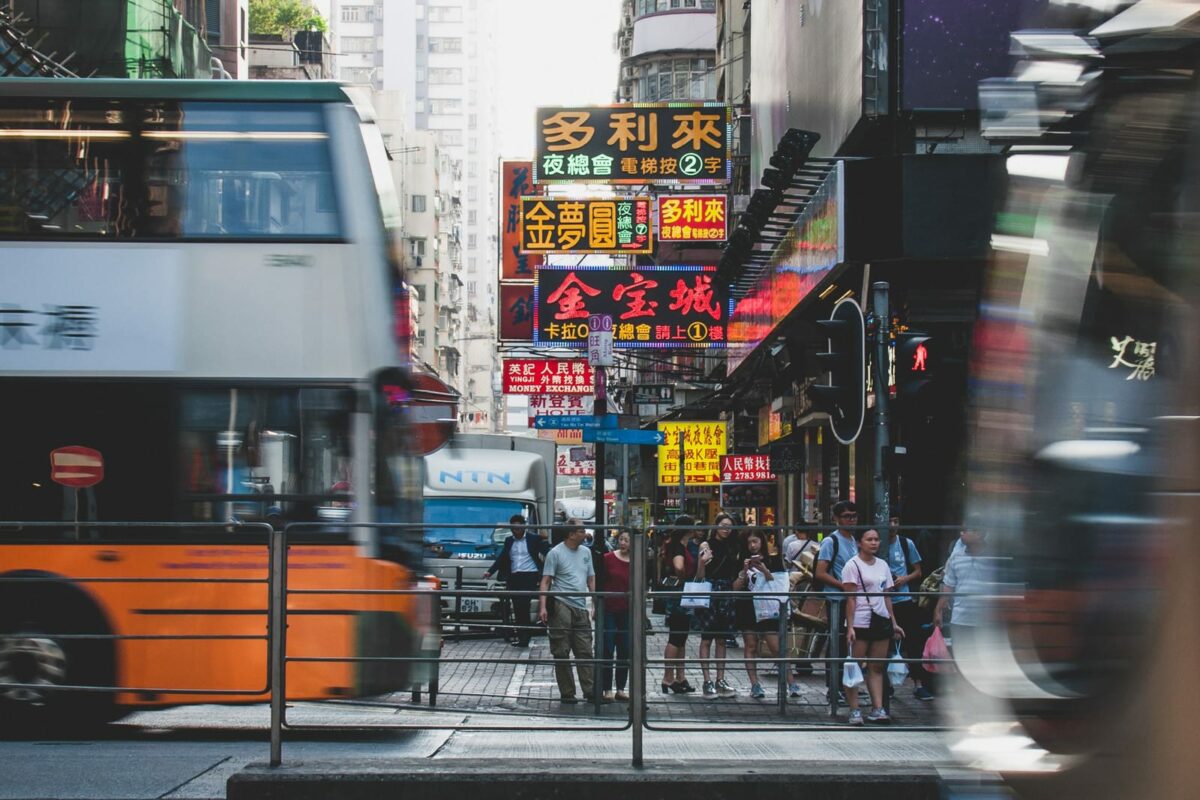
When booking travel online, whether it’s buses or flights, any price that seems too good to be true usually is. Keep an eye out for common signs of scam sites, like ones that have too many pop-ups and poor formatting. Make sure any website that asks for payment has a trusted business indicator (like the ones provided by Visa and Mastercard) displayed on the website. These scammy websites count on their readers not paying attention, so don’t give them the satisfaction.
As for booking travel in person while you’re in a foreign country, stick to your hostel recommendations or highly-rated local travel companies. Odd company names or ones that aren’t located in travel hubs (like bus terminals or airports) should be scrutinized heavily.
In some cases, even legit companies could be getting paid-off by malicious groups to rope unwitting tourists in, so that they can rob their bus en route.
Cheap transit is not always your best bet. Remember, you don’t just want a good deal, you actually want to make it to your destination safely.
Stay at Decent Hostels for Security and Safety
I’m looking at you, my ultra-budget travelers out there.
It may be tempting to book the cheapest possible place to stay. Hell, extreme budget travel is practically a sport for some travelers. But there are certain things you shouldn’t skimp on, and a clean safe place to sleep is one of them.
Not to say that safe accommodation has to be expensive, but your main concern should lie with things like locks, lockers, and a 24hr front desk. The only people that should be able to access your hostel at night are staff and tenants. That way you can get a truly worry-free night’s sleep and be ready to step out on your next adventure.
Wear the Right Clothes So You Don’t Stand Out
Dressing appropriately for your surroundings has multiple benefits. Not only does it show that you are respectful of the local culture, but it helps you blend in as well. Dressing like a “tourist” makes you a target for potential theft.
Try to keep your travel wardrobe minimalist, so you can add a flare of local attire depending on where you are visiting. Pickpockets and other nefarious characters are constantly on the lookout for people who don’t look like they belong. And don’t wear your flashy, expensive-looking jewelry or fancy brands as this can also be an open invitation for trouble.
Bring a First Aid Kit for Minor Injuries
Scrapes and burns may not seem like a big deal, but staying healthy is, and health is a part of safety. Traveling is sometimes dirty business. With rocky hikes and dusty buses, you never know what might happen, and you need to be in control of your health as much as possible.
It doesn’t take much for a small cut or splinter to get infected, so do yourself a favor and keep your own first aid kit on hand and easily accessible. Be hyper-aware of any small injuries you get along the way. Foot injuries can be especially susceptible to contamination and dangerous to your health.
Band-Aids, antiseptic, and clean gauze are a good start for a basic kit. You should also consider vitamin-c and throat lozenges to stave off the pesky common cold, and Imodium in the event that the food you eat doesn’t… agree with you. Don’t be embarrassed. We’ve all been there.
Inspect Transaction Points to Avoid Fraud and Theft
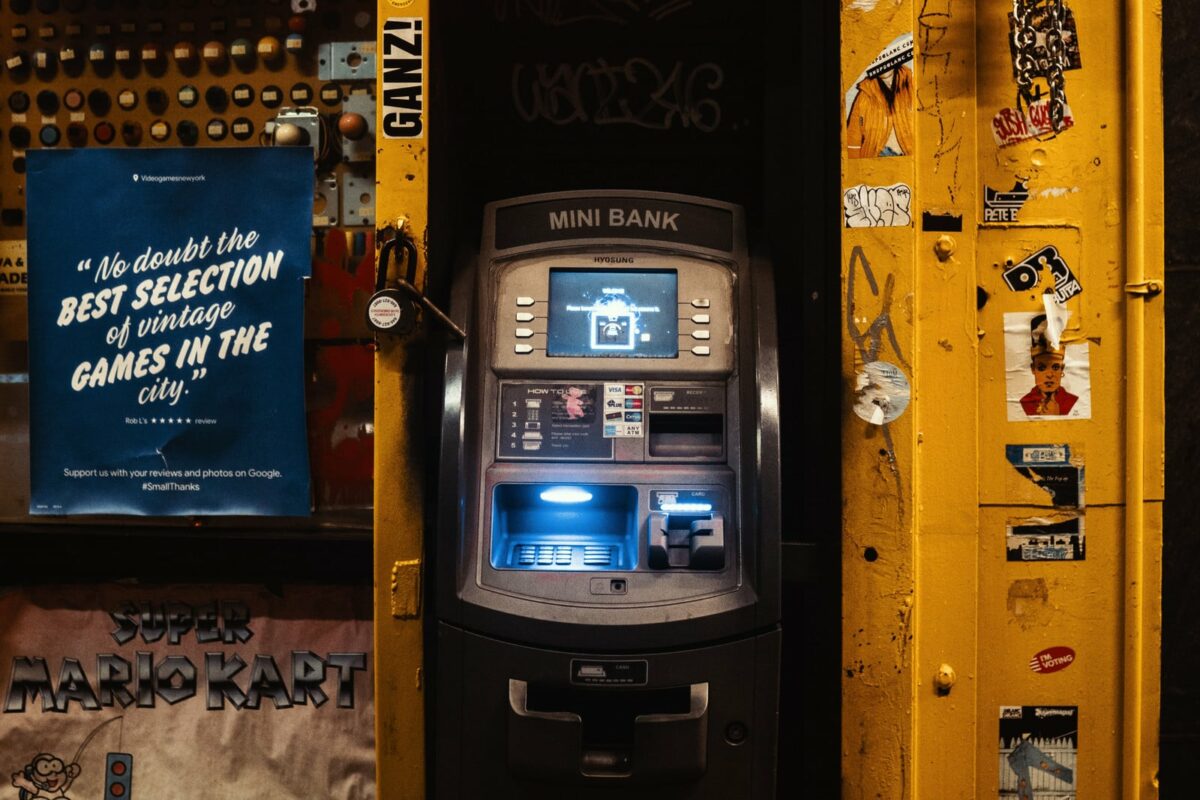
Money tips and travel safety tips go hand in hand. Just like with having multiple bank accounts to protect your funds, you need to be wary of anywhere you might swipe or insert your bank card or credit cards.
Look for signs of tampering. Has anything been added to the card receiver that may be capable of recording your bank card or credit card data?
Inspect Transaction Points to Avoid Fraud and TheftRestaurants are not immune to this either. Always ask if your credit card can be swiped at the table instead of letting your server take your card away to complete the transaction.
When in doubt, you can always skip to the next ATM or pay your dinner tab with cash. You can even report potential tampering to the local police.
Use a VPN to Protect You From Hackers
Free WiFi can feel heaven-sent when you’re on the move—especially if you’re a digital nomad working and traveling. But as lovely as it is to connect for free, it can also put your device at risk for hackers.
If you come across public WiFi that is not password protected, it is possible that the data on your laptop or computer could be gathered by a third party while you’re connected. A VPN, or Virtual Private Network, is a great way around this problem.
When you use a VPN paid service, your online activity will be sent through virtual connections and encrypted, so your IP address and data can’t be intercepted. Now you can safely embrace that sweet, sweet free WiFi without worrying about identity theft or fraud.
ExpressVPN is one of my favorite VPNs for international travel . It provides secure, private and unrestricted internet access so you can hide your location
Study Maps to Keep Your Bearings
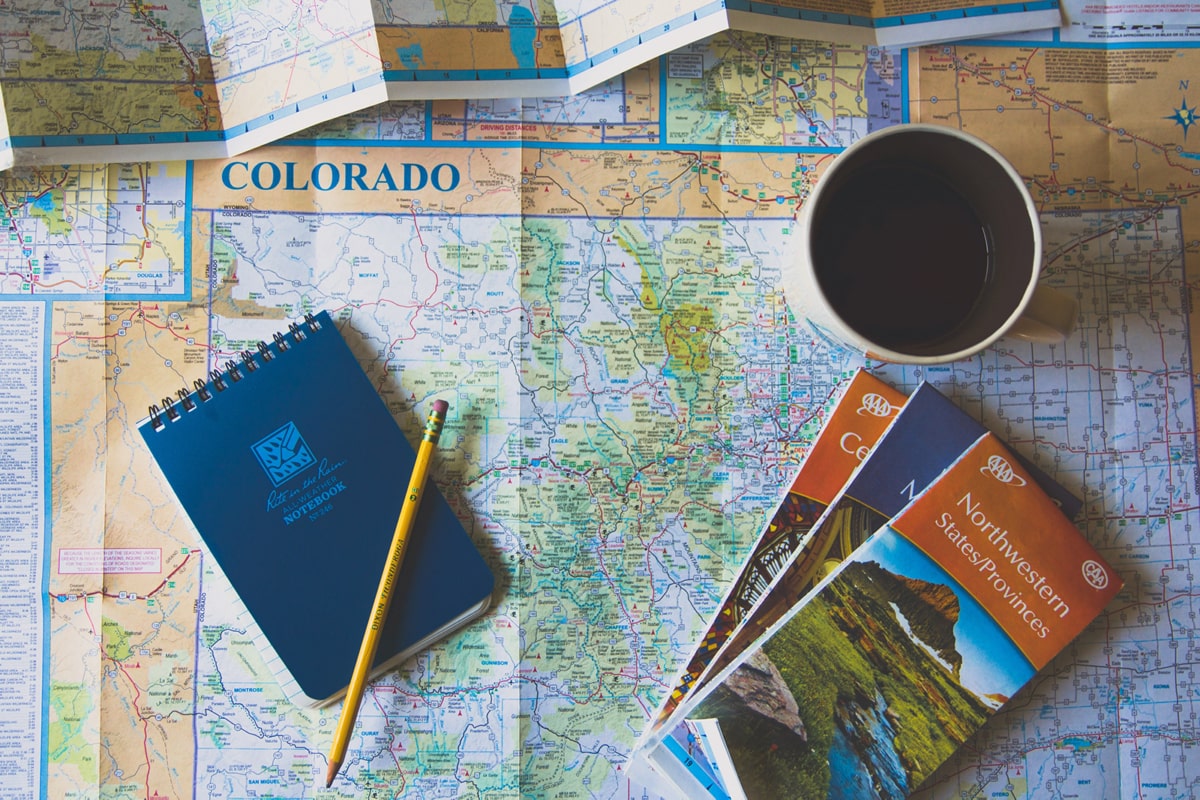
You don’t need to be a modern-day Magellan to get this one down. Having a decent understanding of the layout of the place you’re exploring will ensure that, even if your phone dies, you can still get yourself to your lodging, a central piazza, or a major transportation hub (quickly and safely, preferably).
Additionally, studying your map can even help you plan out your day or discover interesting places you wouldn’t have otherwise known about.
I recommend using whatever map app you like on your mobile phone, and dropping pins for a few key locations. Then keep a mental note of where those buildings or features are in relation to you as you explore. That way, if you get turned around or lost, you know what features you’re looking for as you regain your bearings.
Know Common Scams to Avoid Being Ripped-Off
Have you heard of the shoe-shine scam in Budapest? Or the tea-room scam in Hong Kong? There are some very clever scammers out there that unfortunately count on you to be a well-meaning and gullible person.
Friendliness from locals can be wonderful, but anyone that gets too chummy too quickly may be trying to take advantage of you. Do your research and be aware of scams that may be common in the country you’ll be visiting.
And don’t let your own politeness get in the way of your security. If you’re uncomfortable with a situation it is always okay to say “no, thank you” and walk away.
Be in Control When Hiring Taxis and Tuk-Tuks to Arrive Safely at Your Destination
Most taxi drivers are honest, hardworking individuals. But for those that aren’t, having you in their car puts them in an advantageous position of power.
Discuss the price or rate before you get in the vehicle. If your taxi driver mumbles or tells you they will talk about the price once they’re en route to your destination, they may be trying to rip you off. Do not let a taxi driver tell you that your lodging or the restaurant you want to go to is closed. They’re likely just trying to get you to spend money at their friend’s business instead.
And when it’s time to load your bags, make sure they’re in the back seat with you, not in the trunk. That way, if for any reason you want to get out of the vehicle quickly, you can grab your bags and go.
Carry a Decoy Wallet to Keep Muggers from Taking Your Real One
This is one of my favorite travel safety tips because it’s so easy.
Getting mugged is a terrifying experience. Someone desperate enough to stop you and demand that you give them your valuables is dangerous and should not be provoked. But it’s very likely that once they have what they want, they’ll leave you alone quickly to avoid being caught.
Carry a decoy wallet with a little bit of cash in it. It’s a helpful way to get out of that awful situation safely. If you’re unlucky enough to get mugged, hand the mugger your decoy wallet, and get out of there as quickly as possible. They’ll think they’ve taken everything you had on your person, and you are more likely to stay safe and unharmed.
And don’t ever resist a mugger. Your wallet is not more valuable than your safety and health.
Use the Right Bag for Added Security
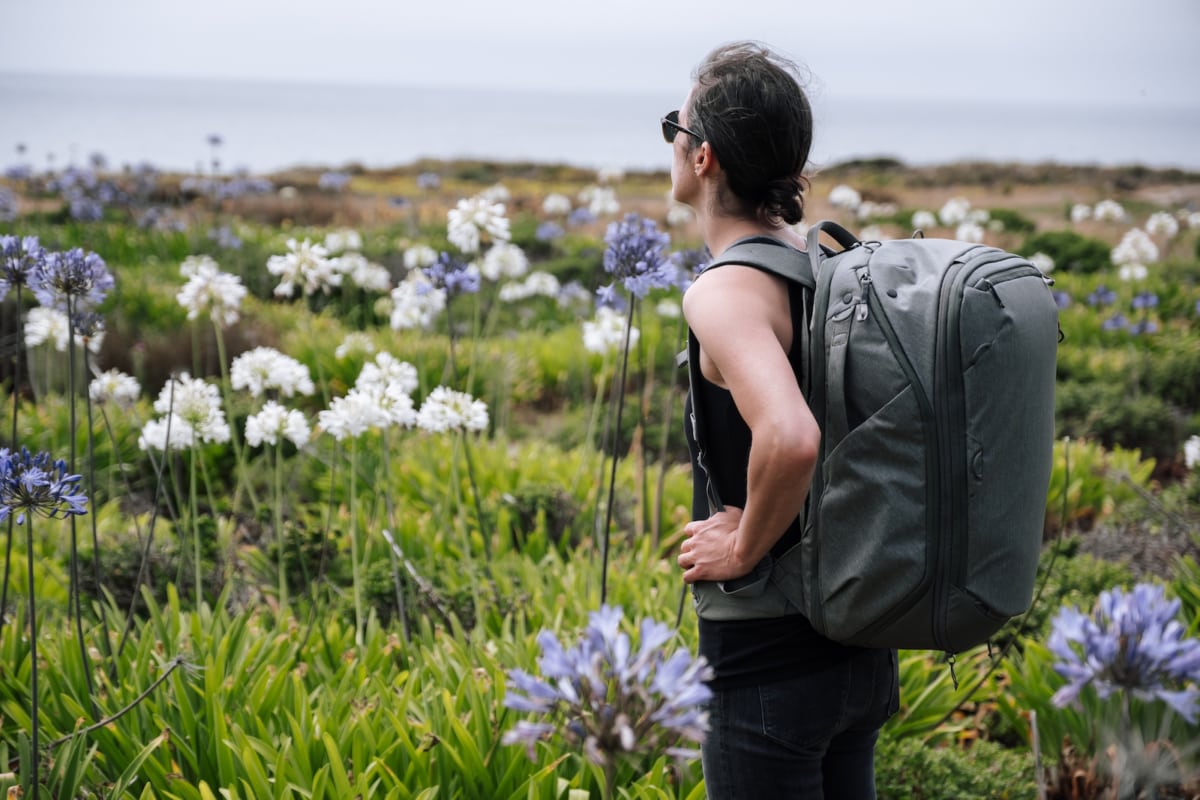
This is another one of the travel safety tips that requires you to splurge a bit. Simply put, bags that aren’t designed for security put you at risk for theft. This applies to all of your bags: luggage, day-packs, purses, bumbags, etc.
Make sure your luggage is lockable. Carry daypacks and handbags that are slash-proof and RFID blocking. There are some cool camera bags out there that are discrete, as in they don’t look like a camera bag, and have theft-proof zipper access at the small of your back instead of the top of the bag. Bags with lots of pockets are great for separating your cash, passport, and mobile.
Bag safety and security are a necessity, so shop around and find something that works for you and keeps your valuables safe.
Always Have Positive Control of Your Bag to Deter Thieves
I cringe every time I see someone sitting at a table outside a cafe with their bag sat carelessly in the chair next to them. If you aren’t aware of your bag and touching it in some way at all times, your bag is more likely to be stolen.
One great method to keep your stuff safe is securing your bag straps around your chair leg at your feet. For my rucksack, while I’m at bus stops or airports, I put my bag on the ground and stand with my foot through the strap.
Any physical contact with your bag is a deterrent for potential bag snatchers.
Invest in Locks to Secure Your Valuables
Sure, some hostels offer you a lock when you check-in, but that same lock has been used by dozens of people before you. That’s not exactly secure, is it?
Whether you prefer a key or combination lock, having your own lock (or two) is the best way to keep your stuff safe and secure when you’re not with it.
Cable locks are particularly useful for locking your bags or sporting equipment together; just make sure they’re also tethered to a permanent structure if you’re going to walk away from your stuff.
Hide Extra Cash as a Backup
It is a rare occurrence, and certainly not something we like to admit when it comes to our fellow travelers, but theft in hostels does happen.
If by some chance someone manages to get into your bag and steal from you (if your bag is locked up with your lock this shouldn’t happen!), you don’t want to make it easy for that person to find everything you’ve got.
There are lots of clever ways to stash and hide cash in different spots in your bags. Chapstick tubes, socks, and secret sewn-in pockets are great places to hide your extra cash.
Avoid Tight Crowds to Prevent Pickpocketing
Pickpockets love crowds. Crowds are loud, distracting, and well… crowded. If you’re in a tight crowd, you may not be able to tell the difference between someone brushing up against you by accident and someone reaching into your pocket or bag.
Street performances, block parties, and queues are prime target situations for pickpockets on the prowl. Do your best to avoid these crowds, or at least stay on the outer edge of a crowd where you’ve got better situational awareness.
Check-in Regularly with Someone You Trust for Added Peace of Mind
Solo-traveling is a great way to learn about yourself and the world around you and to ensure you get to do things your way. But that doesn’t mean you don’t deserve the same safety net as someone traveling with a group.
Whether you choose another traveler you’ve met or someone back home, having someone that knows they are your safety net and is aware and expecting to hear from you is so important. If something happens to you and you don’t check-in with that person like you said you would, they may be your best bet for getting help quickly.
A simple “Hi, I’m safe” text or call to check-in is all you need for staying safe and accountable.
Travel in Groups for a Safer Night Out
Like I said though, traveling with a group provides a safety net that solo-outings do not, and this is especially applicable at night. So don’t hesitate to join or create a group when you want to go out.
Make sure it’s obvious that you’re with other people wherever you are. Criminals target people who are alone but will steer clear of groups because they’re more likely to get caught if they try to steal from you or harm you. A united front makes you a harder target.
If you’re traveling on your own and itching for a night out, make some friends at your hostel and invite them out! It may feel awkward asking a stranger to hang out with you, but just be honest and tell them you don’t want to go out alone. Chances are they’ll understand and welcome the company.
Besides, making new friends is part of the fun of travel!
Practice Situational Awareness to Avoid Unnecessary Risk
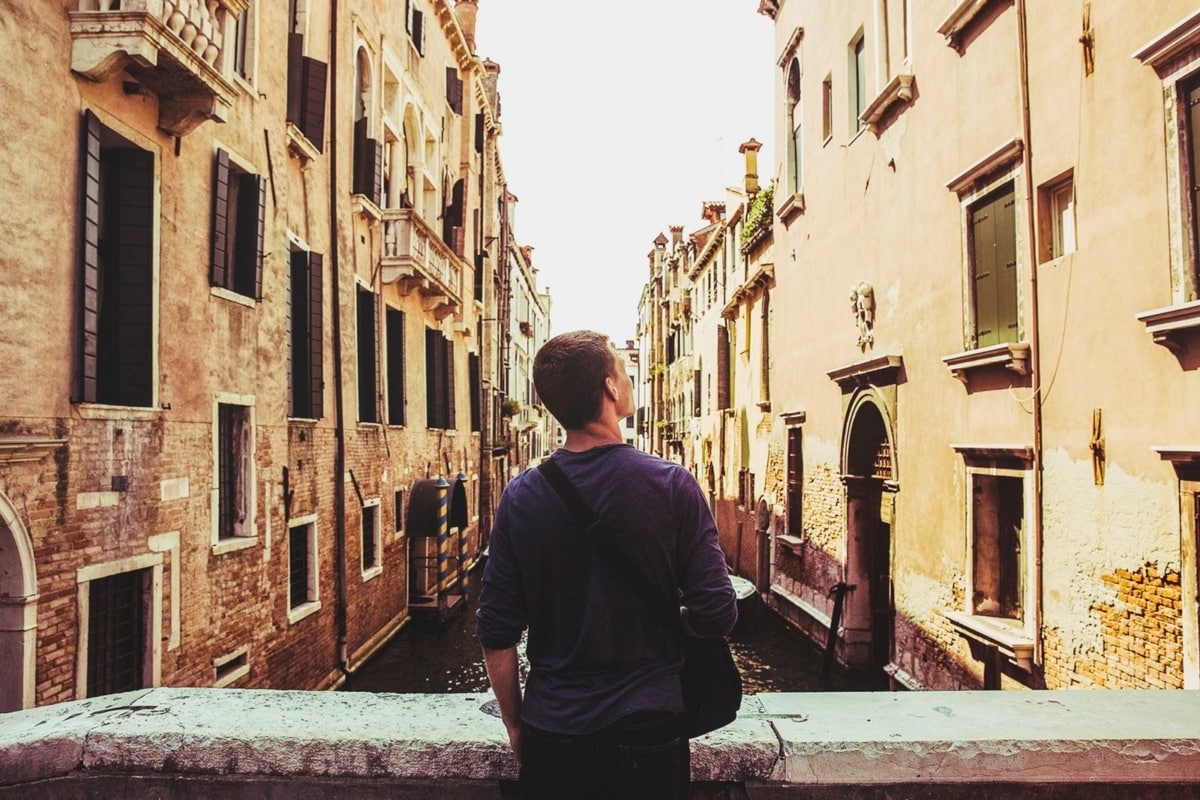
This might seem like one of those obvious travel safety tips, but you have to pay attention to your surroundings when you travel. Walking with your head down looking at your phone tells the world that you’ve got no situational awareness, as does gawking at skyscrapers.
Your surroundings are going to be complex and dynamic, and you need to maintain a critical eye and a clear head so you can react quickly and appropriately to possibly dangerous situations.
Make eye contact with potential threats. No, I don’t mean get into a staring contest, but let them know you see them and they’re more likely to move on. Keep your phone in your bag, stay (relatively) sober, and look out for your friends as well.
Body language also plays a big role in deterring theft and harassment. When sitting in a restaurant for instance, always do your best to sit facing the door, so you can see everyone coming and going from the building. Choose bus seats closer to the door for a quick exit if you don’t feel comfortable with the people around you.
Know Important Phrases in the Local Language to Avoid Confusion
Nothing is more frustrating than taking a bad, stressful situation and adding a language barrier.
Hand gestures and charades can only get you so far in a foreign country. Besides being polite, learning a few important phrases in the local language of the countries you’re visiting can save you a lot of trouble. You can even write the words and phrases down and keep them on you if memorizing isn’t your thing.
Learn to comfortably say words like “hello/goodbye,” “please/thank you,” “clean water,” “toilet,” “bus,” and “train.” You can also work on questions like “where is the…?” or “how much for…?” And of course, people love it when you can order food or a drink in their native tongue.
“Dos cervezas, por favor!”
Trust Your Instincts to Make Good Decisions
Everyone has some level of intuition. It’s like a survival instinct; you know the feeling! When something isn’t quite right, maybe your stomach starts to feel queasy, or the hairs on the back of your neck stand up.
Don’t ignore your “spidey-senses” if they’re trying to tell you something. When all other travel tips fall short, and a situation feels “off,” trust yourself and your intuition to make the right choice and help you stay safe.
Wear Your Helmet to Protect your Most Important Asset!
Alright, alright, this one may seem like a no-brainer (pun intended), but I can’t count the number of times I’ve seen travelers cruise past me on a moped with no helmet on!
Concussions can disrupt a trip, and your “how’d you get that scar?” story won’t exactly sound epic when you tell them you fell off a bike without a helmet on your head. Unfortunately, common sense is not always a common virtue.
Besides, while your insurance company may cover emergency medical evacuation or repatriation, it may not cover dumb decisions like not wearing your helmet. Do you really want to test it?
And this goes for any kind of personal protective equipment, especially if you opt to participate in extreme sports. You wouldn’t skydive without a parachute, so please don’t scooter without a helmet!
I hope these travel safety tips help you feel secure while getting the most out of your travels (and if you want more, check out my 65 Best Travel Tips ). Whether you’re backpacking or traveling first class for a vacation, this universal list of advice is tried and true. Travel safe!
- Is It Safe to Travel to Germany?
- Is it Safe to Travel to China?
- 12 Smart Ways Keep Your Stuff Safe When You Travel
- World Nomads Travel Insurance Review: Is it Worth the Money?
Travel Safety FAQs
How do you ensure safety during travel.
To stay safe during travel, always tell someone where you’re going, register with the Embassy, and get travel insurance.
How do you stay healthy while traveling?
To stay healthy while traveling, make sure you have the right vaccinations and be careful about the food and water you consume.
How do you keep yourself safe while travelling alone?
If you’re traveling alone, you can stay safe by always telling someone where you’re going, doing your research, and having travel insurance.
What is the safest way to travel and why?
The safest way to travel is by airplane. Air travel is very predictable, and accidents are extremely rare.
What should I prepare before traveling?
Before traveling, make sure you prepare your documents, travel plans, vaccinations, and travel insurance.

Jeremy Scott Foster
We’re looking to go to Bali in October.
Your email address will not be published. Required fields are marked *
Search our latest articles, reviews and gear guides
- TravelFreak on Instagram
- TravelFreak on Facebook
- TravelFreak on Twitter
- TravelFreak on Pinterest
Sign up now and get the best gear, travel tips, deals and destinations, straight to your inbox.
Thank you for signing up!

- TEFL Internship
- TEFL Masters
- Find a TEFL Course
- Special Offers
- Course Providers
- Teach English Abroad
- Find a TEFL Job
- About DoTEFL
- Our Mission
- How DoTEFL Works
Forgotten Password

- 29 Essential Travel Safety Tips: How to Travel Safely Abroad
- James Prior
- No Comments
- Updated February 23, 2024

Traveling abroad can be a thrilling adventure that broadens your horizons and creates lifelong memories. However, it’s important to remember that the world can be a diverse and sometimes unpredictable place. Ensuring your safety while exploring abroad should be a top priority. That’s why we’ve put together a list of 29 essential travel safety tips to help you minimize any risks and make the most of your time away.
So, read on to learn how to travel safely abroad.
Table of Contents
How to Travel Safely Abroad
Ready to embark on a trip of a lifetime? Before you go, it’s worth taking the time to consider any steps you can take to ensure your travel safety and help you stay safe abroad. After all, you want to return home with positive memories that you’ll talk about for years to come, not with an experience you’d rather forget!
Here is a list of 29 travel safety tips to help you set off on the right foot:
1. Research Your Destination
Before you embark on your journey, invest time in researching your chosen destination. Learning about the local culture, customs, and traditions not only enriches your travel experience but also helps you navigate unfamiliar situations. Additionally, understanding the local laws and regulations is vital to avoid any unintentional mishaps that could occur in a foreign country.
Start by consulting reliable travel guides and websites, reading up on local customs, and gathering insights from fellow travelers who have visited the same destination. The more informed you are about your chosen location, the better equipped you’ll be to respect local norms and stay safe.
2. Check Travel Advisories
One of the most crucial steps in travel safety is staying up-to-date with government travel advisories for your destination. These advisories provide valuable information about potential safety and security concerns, ranging from health risks to political instability. Government agencies like the U.S. State Department and the UK Foreign, Commonwealth & Development Office regularly update their travel advisories with important insights and recommendations on different countries.
Keep in mind that travel advisories can change rapidly, so it’s essential to check for updates before and during your trip. While an advisory doesn’t necessarily mean you should cancel your plans, it does provide valuable insights to help you make informed decisions about your itinerary and activities.
You can check here for the U.S. State Department’s travel advisories .
You can check here for the UK Foreign, Commonwealth & Development Office travel advice .
3. Take Health Precautions & Get Vaccinations
Your health should be a top priority when traveling abroad. Visit a travel clinic or consult your healthcare provider well in advance of your departure to ensure you receive the necessary vaccinations and health advice tailored to your destination. Alternatively, you can do your own research online if you’re feeling confident.
Just remember, different countries have various health risks, including diseases like malaria, yellow fever, and typhoid. Some destinations may require proof of vaccination as a condition of entry. By taking these precautions, you can protect yourself and enjoy your journey without the worry of preventable health issues.
4. Get Travel Insurance
Travel insurance is a non-negotiable aspect of international travel. It serves as a safety net, covering unexpected medical emergencies, trip cancellations, lost belongings, and more. While it may feel like an additional expense, it’s a small investment compared to the potential costs of unforeseen events while abroad. If you need medical attention and don’t have travel insurance you could run into some very high bills!
Choose a comprehensive travel insurance plan that suits your needs and destination. Read the fine print to understand what’s covered and ensure you have contact information for the insurance provider readily available in case of emergencies. Having travel insurance in place offers peace of mind and financial security during your journey.
It’s worth taking a copy of your travel insurance certificate with you so that you have it to hand in case you need it.
5. Register with Your Embassy
Before departing for your destination, take a moment to register with your country’s embassy or consulate. This simple step can be a lifesaver in emergencies, such as natural disasters or political unrest. It’s a free service, and when you register your government will have a record of your presence in the country, making it easier for them to contact you and provide assistance if needed.
Embassies and consulates can also offer valuable advice and information about local conditions. Additionally, they can help citizens abroad with lost passports, legal issues, and medical emergencies, serving as a reliable source of support while abroad.
6. Check Your Passport and Visa
Your passport is your key to international travel, so it’s essential to ensure it’s in order before leaving your home country. Check its expiration date; most countries require your passport to be valid for at least six months beyond your planned return date.
In addition to a valid passport, research and obtain the necessary visas for your destination. Visa requirements can vary widely from one country to another, so it’s vital to plan ahead. Failure to comply with visa regulations could result in denied entry or even deportation, so double-check your documents to avoid any unwelcome surprises upon arrival. You don’t want to be put on a flight home before you’ve even been able to set foot in the country!
7. Take Copies of Your Important Documents
One of the simplest yet most effective safety precautions you can take when traveling internationally is making copies of any important travel documents. Photocopy your passport, visa, and itinerary, and carry these copies separately from the originals. Additionally, scan or photograph your documents and store digital copies securely online, accessible through cloud storage or email. You should also do this with your travel insurance.
These precautions are invaluable if your documents are lost or stolen during your trip. With photocopies and digital copies of your important documents in hand, you can quickly prove your identity and facilitate replacements. Remember to keep your originals in a secure location, such as a hotel safe.
8. Travel Light
Overpacking can be tempting, but it can also be a safety hazard. Carrying excessive luggage can make you a target for thieves and hinder your ability to move around comfortably. To stay safe and mobile, pack only what you truly need for your journey.
Consider the climate and activities you’ll be participating in and pack accordingly. Opt for versatile clothing and lightweight, easy-to-carry luggage. By traveling light, you’ll have greater flexibility, reduce the risk of lost belongings, and enjoy a more stress-free journey.
9. Pack a First Aid Kit
A well-stocked first aid kit is a travel essential that can come to your rescue in various situations. Include items like bandages, antiseptic wipes, pain relievers, and any prescription medications you may need. Having a first aid kit on hand allows you to address minor injuries and ailments promptly, ensuring your trip continues smoothly.
10. Manage Your Finances
Managing your finances wisely is crucial when traveling abroad. Carry a mix of payment methods, including cash, credit cards, and a travel money card. Diversifying your payment options is a noteworthy travel hack and ensures you’re prepared for various situations.
Keep emergency funds separate from your daily spending money, so you always have a backup in case of unexpected expenses or emergencies.
Before departing, inform your bank and credit card companies about your travel plans to prevent unexpected card blocks due to suspicious international transactions. It’s worth just checking the balance on your debit card at an airport ATM when you arrive in a new country as it can help let the bank know you’re there.
11. Stay Informed
To stay safe while traveling abroad, it’s essential to stay informed about local conditions and events. Keep an eye on local news and current events in your destination to stay aware of any potential risks or developments that might affect your plans.
Political unrest, natural disasters, and health crises can all impact your travel experience. By staying informed, you can adjust your itinerary or make alternative arrangements to ensure your safety and well-being. Most importantly, trust your instincts—if a situation doesn’t feel right, take immediate steps to remove yourself from it.
12. Know Emergency Numbers
Understanding local emergency numbers is crucial for your safety while abroad. These numbers may vary from country to country, so it’s essential to familiarize yourself with the correct ones for your destination. In addition to knowing the local emergency number, find out the contact information for your country’s embassy or consulate in case you need assistance.
Having these numbers readily available can be a lifesaver in situations such as accidents, medical emergencies, or if you become a victim of crime. Be prepared to provide your location and details of the emergency when calling for assistance.
It’s also worth knowing the location of the nearest embassy and police station if you do find yourself in need of help.
13. Brush Up Your Language Skills
While English is widely spoken in many parts of the world, taking the time to learn basic phrases in the local language can enhance your travel experience and improve your safety. Simple greetings, expressions of gratitude, and phrases for asking for help can go a long way in building rapport with locals and navigating everyday situations.
Learning a few key phrases not only shows respect for the local culture but also ensures you can communicate effectively in case of emergencies or when seeking assistance. It’s a valuable skill that can open doors to new friendships and enrich your travel experience.
14. Secure Your Valuables
Protecting your valuables and personal belongings should be a top priority throughout your journey. Use a money belt or hidden pouch to carry your passport, cash, and essential documents. These items should be close to your body and out of sight, making it challenging for pickpockets to target you.
Additionally, take advantage of hotel safes to secure valuables when you’re not using them. This extra layer of protection ensures peace of mind while you explore your destination. When venturing out, avoid carrying unnecessary items like expensive jewelry or electronics that might attract thieves.
15. Blend In
To minimize the risk of drawing unwanted attention and potential theft, dress modestly and avoid wearing flashy clothing or excessive jewelry. While you may want to express your personal style, it’s important to remember that certain clothing choices can make you stand out as a tourist.
Before your trip, research the local dress code and cultural norms, and aim to blend in with the locals. This not only helps you stay safe but also shows respect for the local culture and customs. As a bonus, it can lead to more authentic interactions with the people you meet along the way.
16. Avoid Wearing Expensive Jewelry
While it’s tempting to showcase your favorite jewelry while traveling, it’s generally safer to leave expensive pieces at home. Wearing valuable jewelry like high-end watches can make you a target for theft. Instead, opt for more modest accessories that won’t attract undue attention. Remember, it’s the experiences and memories that truly enrich your journey, not the possessions you bring along.
17. Learn Self-Defense
While it may seem a bit leftfield and the hope is never to use it, learning basic self-defense techniques can provide an added layer of security. Consider taking self-defense classes before your trip to gain confidence and skills to protect yourself in an emergency. Self-defense training can also empower you to react calmly and effectively if faced with a threatening situation.
18. Ensure Transportation Safety
When it comes to transportation, safety should be a top concern. Research and choose reputable transportation providers for your journeys within your destination. This includes using well-established taxi companies, licensed tour operators, and reliable public transportation options.
Before entering a vehicle, confirm the fare or agree on a price with the driver to avoid disputes later. Be cautious when sharing rides with strangers, and trust your instincts—if something doesn’t feel right, opt for a different mode of transportation or seek assistance.
Different countries have different types of transport so you may find yourself traveling in ways your not familiar with back home.
19. Avoid Unregistered Taxis
Taxis are a common mode of transportation in many countries, but not all taxi services are created equal. To ensure your safety, only use licensed and reputable taxi services. Avoid unregistered or unofficial taxis that may not adhere to safety standards or regulations.
Before getting into a taxi, ask the driver to turn on the meter or agree on a fixed fare. Make note of the taxi’s license plate number and driver’s identification information. This precaution helps ensure a smooth and secure journey to your destination.
20. Have Travel Companions
Traveling with companions can enhance your overall experience and provide an added layer of safety. Whether you’re exploring a bustling city or trekking through remote landscapes, sticking together with your travel companions is a smart practice.
Especially when visiting unfamiliar or potentially risky areas, the “buddy system” can deter potential threats and ensure someone is there to assist if you encounter any challenges. Communication and mutual support among your group are key to a safe and enjoyable journey.
21. Drink Responsibly
Enjoying local beverages can be an integral part of experiencing a new culture, but it’s essential to drink responsibly. Overindulgence can lead to poor decision-making and put your safety at risk.
Always know your limits, stay hydrated, and have a plan for getting back to your accommodation safely. Be cautious about accepting drinks from strangers, and never leave your drink unattended to avoid the risk of tampering.
22. Stay Hydrated
Maintaining proper hydration is essential for your health and safety while traveling abroad. In some countries, tap water may not be safe to drink, so it’s important to rely on bottled water or purified water sources.
Carry a reusable water bottle and refill it with safe water as needed. Dehydration can lead to various health issues, including heat-related illnesses, so make it a habit to drink plenty of water throughout your travels. Be cautious when consuming street food and beverages, and opt for reputable establishments to reduce the risk of foodborne illnesses.
23. Be Aware of Scams
Tourist destinations are often hotspots for scammers looking to take advantage of unsuspecting travelers. Familiarize yourself with common tourist scams in your destination and be on the lookout for red flags.
Common scams may include pickpocketing, distraction tactics, fake tour guides, and counterfeit products. Stay vigilant, keep your belongings secure, and trust your instincts if someone approaches you with a suspicious offer or request for money.
24. Trust Your Instincts
Your intuition is a powerful tool when it comes to travel safety. If a situation feels uncomfortable or unsafe, trust your instincts and take immediate action to remove yourself from it.
Whether it’s a sketchy neighborhood, a pushy salesperson, or a suspicious interaction, prioritize your safety over everything else. It’s better to err on the side of caution and seek assistance or shelter if necessary.
25. Be Aware of Your Surroundings
Maintaining awareness of your surroundings is a fundamental aspect of staying safe while abroad. Avoid walking around with headphones on or engrossed in your phone, as this can make you vulnerable to theft or accidents.
Stay alert, especially in crowded or unfamiliar areas, and trust your instincts if something doesn’t feel right. If it doesn’t come across as a safe place take steps to leave that location. Awareness is your first line of defense.
26. Travel During the Day
Whenever possible, plan your travel and exploration activities during daylight hours. Daytime offers better visibility and safety than venturing out at night, especially in unfamiliar areas.
If you need to travel at night, research safe transportation options and consider using reputable taxi services or ridesharing apps. Take extra precautions by avoiding walking alone in poorly lit or deserted areas, and stay in well-traveled, well-lit areas when exploring after dark.
27. Check In with Friends and Family
In case of unexpected situations, having a trusted friend or family member who knows your whereabouts can be invaluable. Regularly check in with friends or family members back home to let them know you’re safe and where you are. Share your itinerary and update them on your plans.
Consider using a messaging app or social media to keep loved ones informed and leave them your accommodation details in case they can’t reach you by conventional means. It can also be worth leaving a friend or family member a copy of your passport or any other important documents before you leave in case you misplace them whilst away.
28. Ask Locals for Advice
Locals often possess invaluable insights about their hometown or region. Don’t hesitate to strike up conversations and ask for advice or recommendations.
Locals can provide tips on safe areas to visit, hidden gems, and the best places to eat. Their knowledge can help you make the most of your travels while avoiding potential pitfalls.
29. Avoid Unnecessary Risks
While travel often includes adventurous activities, it’s crucial to evaluate the risks involved and exercise caution. Think twice before engaging in risky behaviors such as wandering into unknown neighborhoods at night, taking part in extreme sports, scaling precarious cliffs for photos, or swimming in unfamiliar waters without a lifeguard.
Try to prioritize safety over thrill-seeking to ensure a safe and enjoyable journey. And, if you are doing extreme sports or water activities, make sure you have insurance that covers the highest-risk activities.
Get Out There & Travel
Traveling abroad can be a transformative experience filled with adventure and cultural discovery. And, while safety should always be at the forefront of your travel plans, you shouldn’t let your concerns prevent you from taking your trip in the first place. By researching your destination, staying informed, and taking practical precautions, you can enjoy a secure and memorable journey.
Responsible and mindful travel not only enhances your personal safety but also contributes to a more positive and respectful interaction with the places and cultures you visit.
Just remember that these travel safety tips are adaptable to various destinations, and some countries will not be the same as other countries. Irrespective of this, by incorporating these tips into your travel safety routine they can help you navigate unfamiliar environments with confidence and minimize potential risks. So, use them as a foundation for safe and rewarding travels around the world.
With that, we wish you safe travels and bon voyage!
- Recent Posts
- 113+ American Slang Words & Phrases With Examples - May 29, 2024
- 11 Best Business English Courses Online - May 29, 2024
- How to Teach Business English - May 27, 2024
More from DoTEFL

How to Choose a VPN for Traveling Abroad
- Updated December 14, 2023
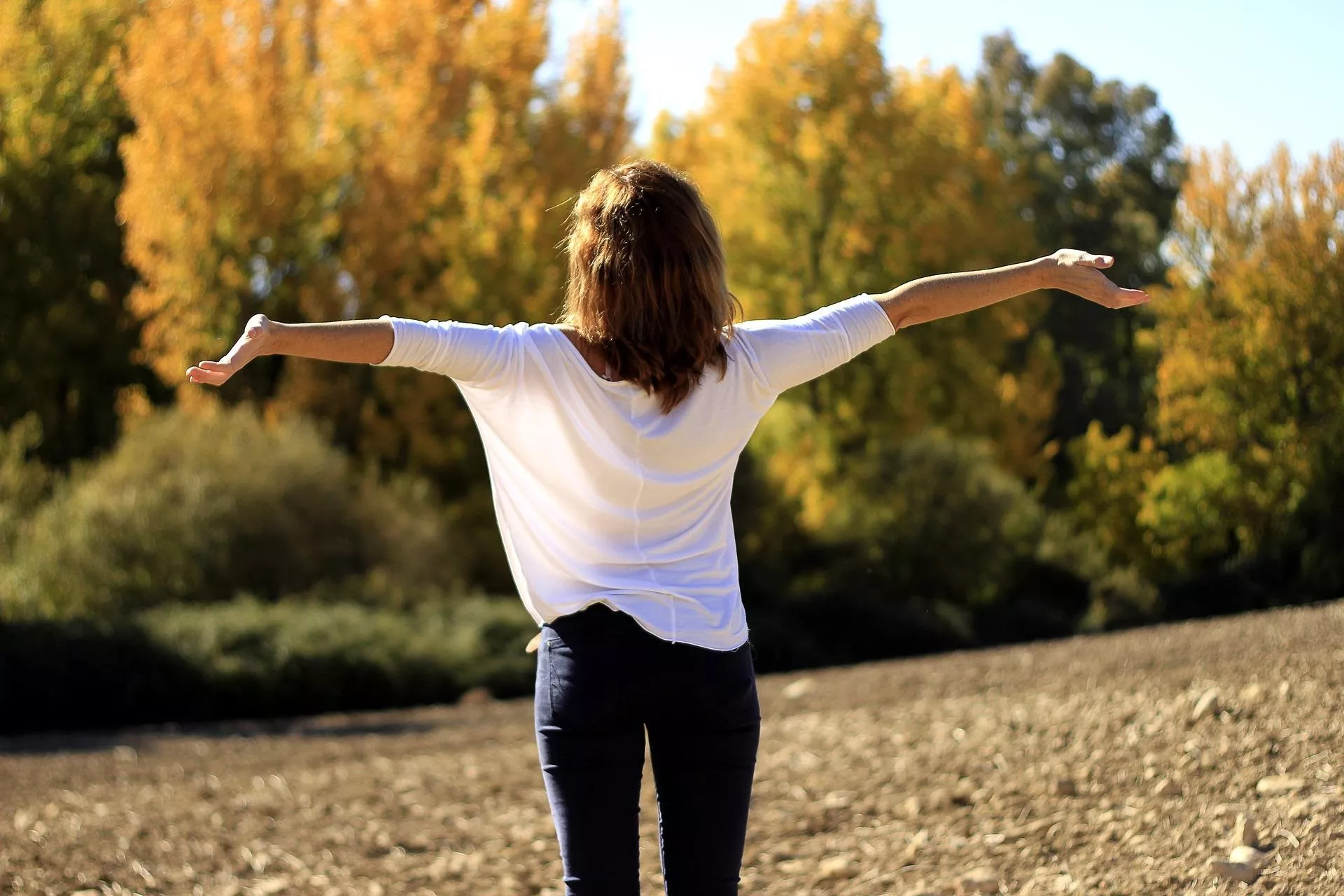
10 of The Best TEFL Blogs to Inspire You to Teach and Travel
- Updated November 2, 2023

How to Prepare for Teaching Abroad: 5 Essential Tips
- Updated May 2, 2024
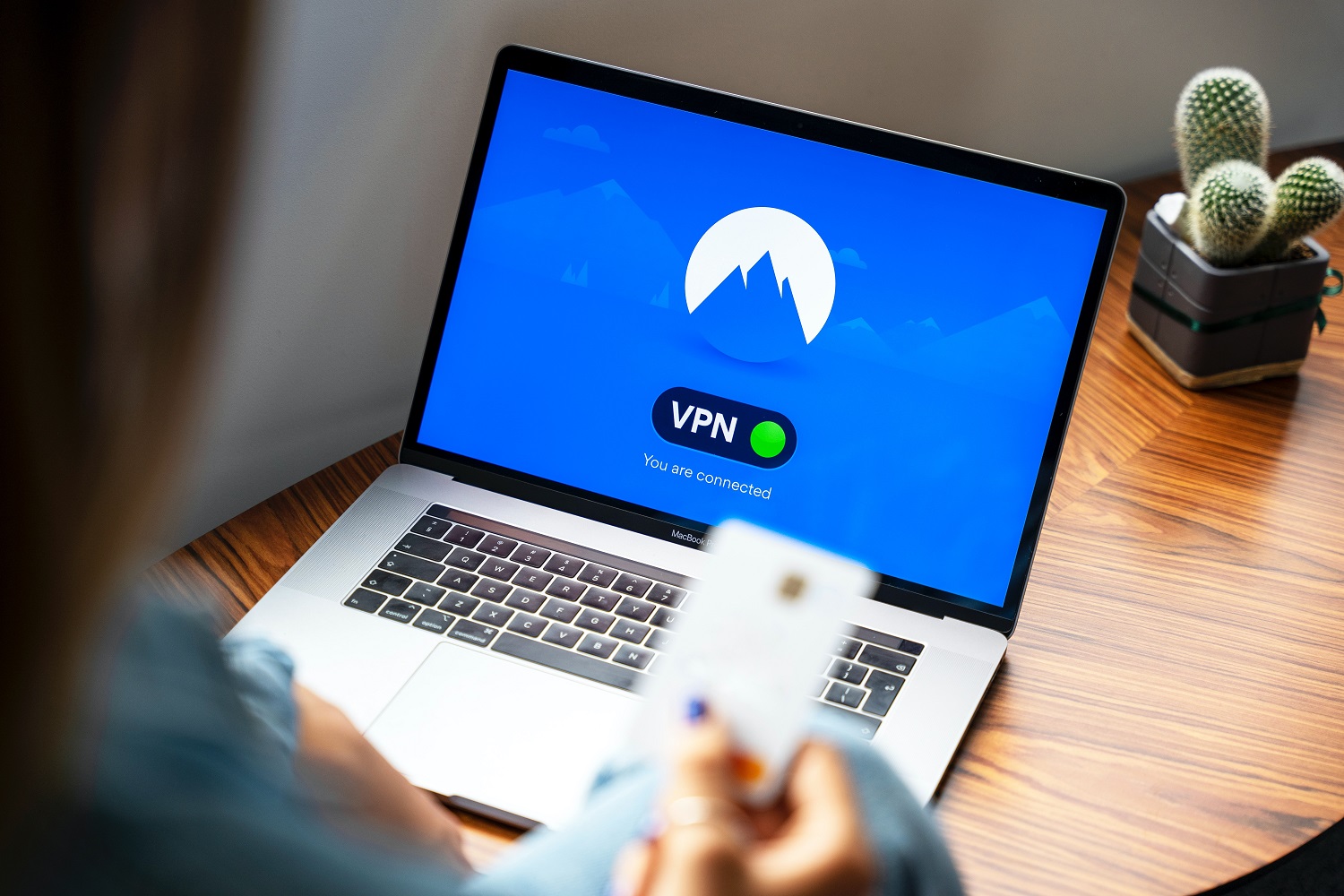
Top 7 Best VPNs for Travel in 2024
- Updated May 24, 2024
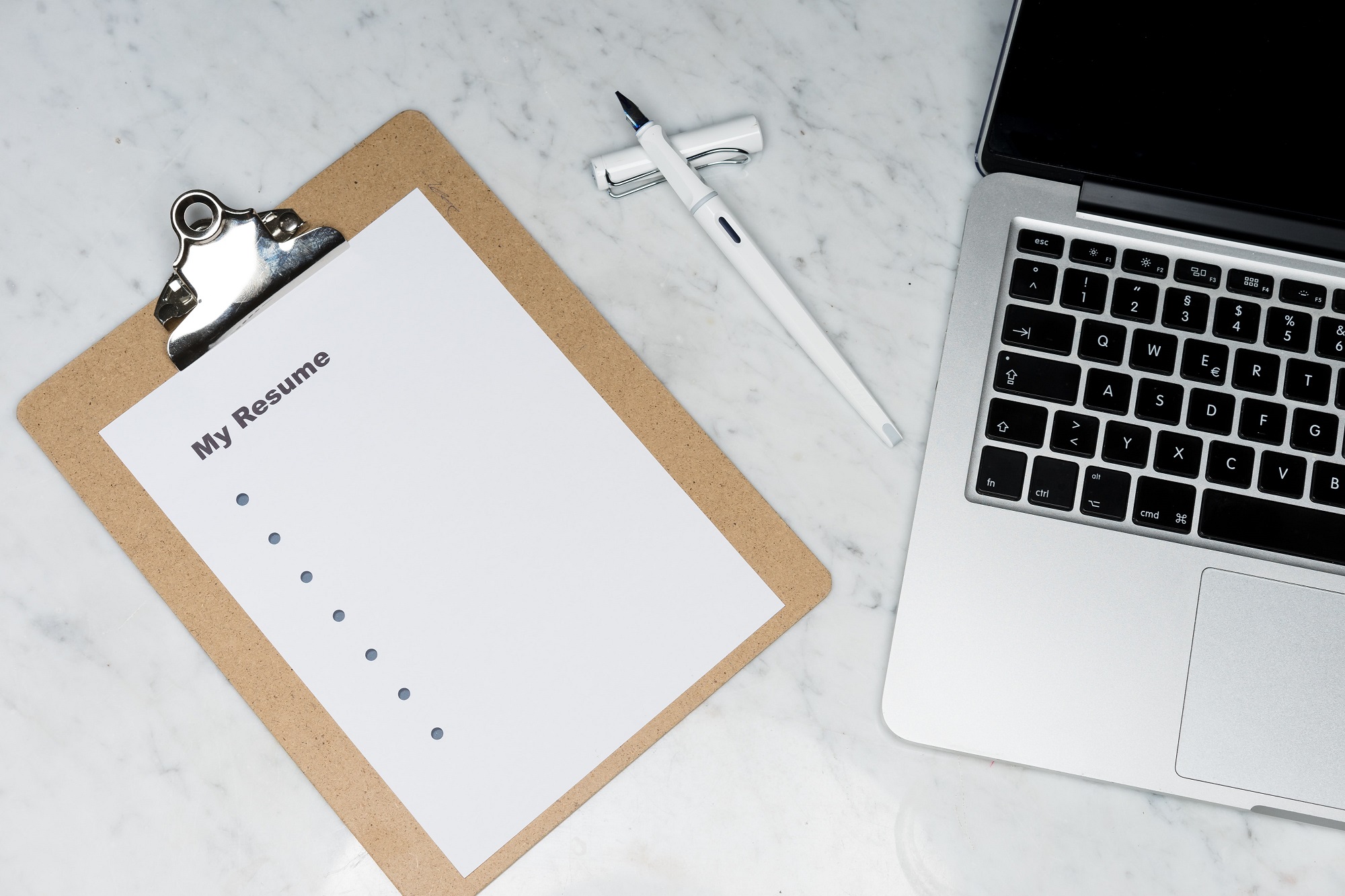
TEFL CV: How to Write the Best TEFL Resume & CV
- Updated May 21, 2024

How to Become a Translator: What You Need to Know
- Updated February 2, 2024
- The global TEFL course directory.

An official website of the United States government
Here’s how you know
Official websites use .gov A .gov website belongs to an official government organization in the United States.
Secure .gov websites use HTTPS A lock ( Lock A locked padlock ) or https:// means you’ve safely connected to the .gov website. Share sensitive information only on official, secure websites.
TSA's Top Travel Tips
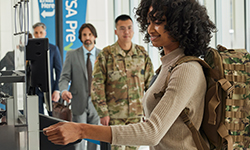
TSA partnered with Stars and Stripes News for special military guide
The special guide for service members and their families includes travel tips, such as how to prepare, pack and declare a firearm, checkpoint dos and don’ts, and an inside look at some of TSA’s programs and employees, with a special military emphasis.
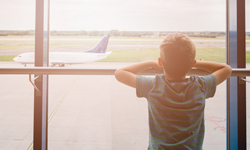
Kids rule the airport!
Traveling with children. Those words can strike fear in the hearts of even seasoned travelers. How does one prepare for the ‘excitement’ of bringing young travelers to the airport? We have the answer to three of the most common issues.

Strollers, car seats, breastmilk, oh my!
It can be stressful traveling with baby gear any time of year. Check out this video for tips on navigating through the security screening process with these items. And don’t forget, if you need assistance – just ask – we’re happy to help!
Refresh your memory on the liquid rules
We all know by now that a turkey sandwich is not a liquid, but it can still be confusing when you’re figuring out how to pack your liquids. Watch this video and it will all be crystal clear.
TSA PreCheck® = game changer
Who doesn’t want to get through security faster? TSA PreCheck® allows you to do just that. It’s quick and easy security screening for travelers we know more about – and have earned the esteemed title of “Trusted Traveler.” Applying is easy and once you’re a member- you’ll never want to go back.
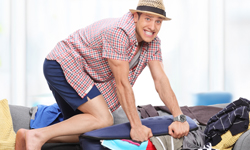
How not to be “That Guy” at the airport checkpoint
If you’re like most travelers, you likely don’t like to hear the sound of tapping feet and heavy sighs as your fellow travelers wait for you to prepare your items for security. Want to get through security as fast as possible, while still being safe? Check out these tips for domestic travel from your friends at TSA.

Can you pack your meds in a pill case and more questions answered
One of the more popular questions we get from travelers is: “Can I travel with my medication?” The answer is yes, with some qualifiers. Here are a few tips that you might find helpful.

How to know you’ve forgotten something at the checkpoint
Ever gotten on a plane and felt like you were missing something? Here’s a list of the most common items left behind at the security checkpoint. Take note, so it doesn’t happen to you!

Taking your human on a plane: what every pet needs to know
Hey, down here! Are we going to the airport again? No big deal… we’re in this together, and that means we both have to go through security screening.
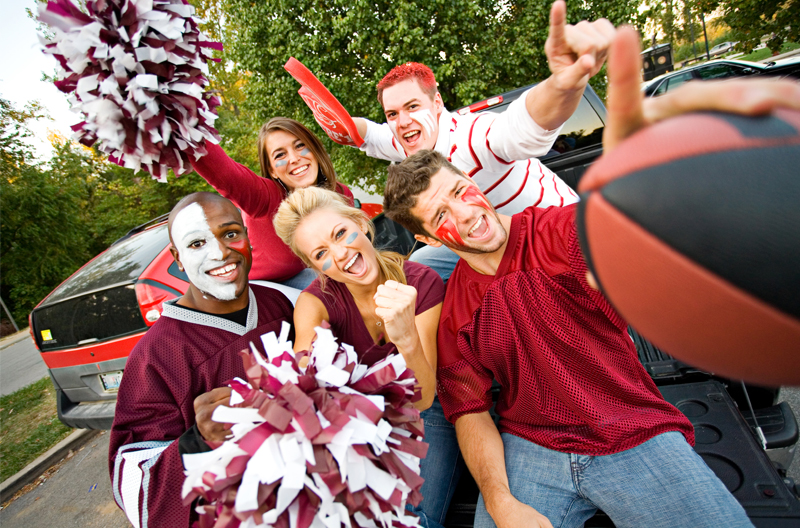
Get Ready for Game Day
Ah, fall! A time for falling leaves, cooling temperatures, and pumpkin spice flavored everything. But for sports fans, fall means the return of football. Players at all levels, from pee wee to the pros, will be taking the field once again. And if you’re traveling to see the Tide roll or the Eagles soar, we have some tips to help you avoid a penalty flag during your airport screening experience.

Travel Tips that Your Mama Will Love
Everyone knows that there’s no sweeter gift for mom than a visit from you! But if you must bring along a gift, we have a few dos and don’ts to make sure your screening experience is a smooth one.

Fashion dos and don’ts while going through the checkpoint!
Avoid a fashion faux pas by forgetting to do this on your next airport visit.

Keep the Change
Pennies, nickels and dimes don’t seem like much… just a jiggling in your pockets, right? Every day, thousands of people leave their loose change at TSA security checkpoints across America. You may think that a few pennies don’t add up to very much. Just wait until you find out how much passengers leave in those checkpoint bins!

You’ll kick yourself if you forget these travel tips!
Millions of people from all over the world are tuning in to this year’s World Cup. Summer travel season is in full swing so be sure to be ahead of the game when traveling. Shoot and score with these helpful tips that will help you dribble through security with ease.

Going GREEN while traveling through airport security!
Earth Day is every day for TSA. You can do your part to help our planet with these green-friendly travel tips.

Feel like a Superhero with these ASTONISHING travel tips!
Dust off your comic books and cosplay outfits and make room on your shelves for even more cool collectibles! The Granddaddy of annual comic conventions is HERE! Here are 4 helpful tips for all the fanboys and fangirls out there!

5 stressors every pregnant woman has at the airport
Traveling at any time can be stressful, but it can be even more challenging when you’re pregnant.

Too cool for school
The time has come for students to head back to class. If you’ll be flying off to school, we have some tips to make your back-to-school travels as stress-free as possible. After all, nothing should cause you stress other than your first exams and textbook costs!
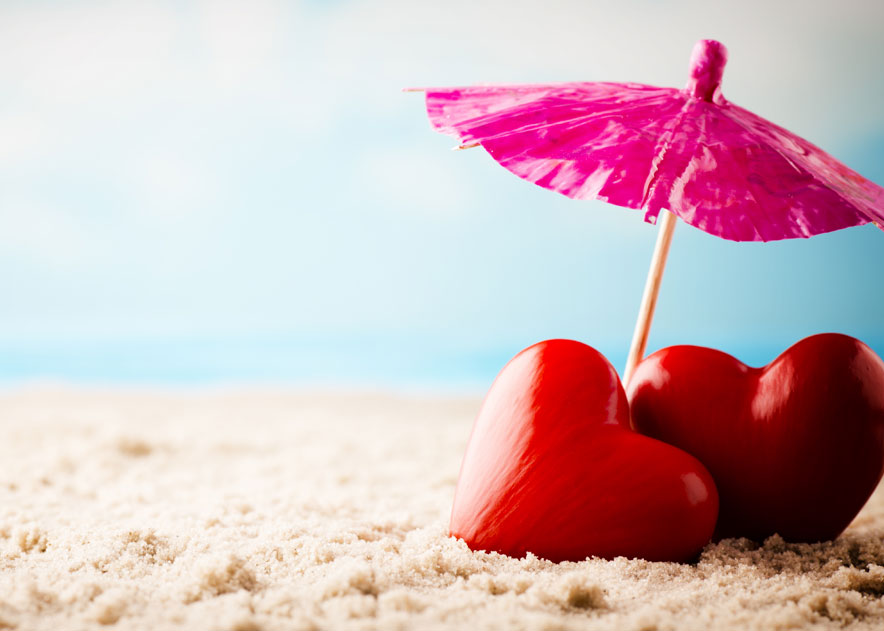
Two Carry-on Bags in Paradise: A Love Story
If loving a safe flight is wrong, then we don’t want to be right! Valentine’s Day is almost here and many of us will be traveling with gifts for the one we love. Check out some of the most common items screened at security checkpoints nationwide during this romantic time of year.

When flying on a broom just won’t do
Hello all you ghouls and ghosts! It’s almost that bewitching time which means you’re probably itching to hop onto your brooms and fly to a Halloween adventure from your local airports. Here are the tips to make sure your trick-or-treating in the airports is just as sweet as your bucket of candy (without all of the cavities).
Summer Blockbuster -- Automated Screening Lanes coming to an airport near you
Automated Screening Lanes are a state-of-the-art checkpoint technology that enhances security efficiency while decreasing the amount of time travelers spend during the security screening process. These lanes are currently in airports in New York, Los Angeles, Las Vegas, Dallas, Chicago, Minneapolis, Miami, Houston, Newark, Seattle and Atlanta.

Turkey trot on your way through the airport
Thanksgiving is a time for joy, a time for family, and of course a time for glorious, sumptuous, food! Traveling with these mouth-watering dishes, can sometimes be tricky, so find out what you can pack and what you should leave behind at home.

The Spirit of the Season
Hanukkah, Christmas and Kwanzaa all begin in December. No matter the religious holiday, TSA has tips for items that you may be traveling with in celebration of the season.

Fly Like Rudolph for the Holiday Season
Deck the moving walkways with your jolly selves as you venture off to your cozy destinations this holiday season! Since traveling with festive fare can sometimes be tricky, check out our tips below to make sure you and your fellow elves make it through the security checkpoint in a mistletoe minute.
Security Alert May 17, 2024
Worldwide caution, update may 10, 2024, information for u.s. citizens in the middle east.
- Travel Advisories |
- Contact Us |
- MyTravelGov |
Find U.S. Embassies & Consulates
Travel.state.gov, congressional liaison, special issuance agency, u.s. passports, international travel, intercountry adoption, international parental child abduction, records and authentications, popular links, travel advisories, mytravelgov, stay connected, legal resources, legal information, info for u.s. law enforcement, replace or certify documents, before you go.
Learn About Your Destination
While Abroad
Emergencies
Share this page:
Crisis and Disaster Abroad: Be Ready
What the Department of State Can and Can't Do in a Crisis
Information for U.S. Citizens about a U.S. Government-Assisted Evacuation
Traveler's Checklist
Safety and Security Messaging
Best Practices for Traveler Safety
Staying Connected
Smart Traveler Enrollment Program (STEP)
Traveler Information
LGBTQI+ Travelers
Adventure Travel
High-Risk Area Travelers
Travelers with Dual Nationality
Journalist Travelers
Faith-Based Travelers
Pilgrimage Travelers (Hajj and Umrah)
U.S. Students Abroad
Cruise Ship Passengers
Women Travelers
Travelers with Disabilities
Older Travelers
U.S. Volunteers Abroad
Travelers with Pets
Travelers With Firearms
Travel Agents
Travel Safety - Race and Ethnicity
U.S. Travelers in Europe's Schengen Area
Your Health Abroad
Insurance Coverage Overseas
Driving and Road Safety Abroad
Customs and Import Restrictions
Information for U.S. Citizens in Russia – Travel Options Out of Russia
Lodging Safety
Paris 2024 Olympics and Paralympics
Research Your Destination
Customs and norms in other countries can be very different from those in the United States. Check out our Country Information pages to find specific information for every country in the world. You'll get info on visa requirements, safety and security conditions, crime, health and medical considerations, local laws, areas to avoid, and more. Enroll in our Smart Traveler Enrollment Program (STEP) to get information about health and safety in your destination country. Enrolling in STEP also allows the U.S. embassy and/or consulate to contact you in an emergency.
Be Aware of Local Customs and Norms
Some countries have rules or norms that differ from the United States. For example, in some countries, tight-fitting clothes, sleeveless shirts, and shorts are not acceptable. Pack essential items that will help you blend in with the local culture. Review our Country Information pages to learn about norms and customs in your destination.
Freedom of Speech
Some countries have laws protecting free speech and peaceful assembly, including protesting, in a way that is similar to the United States. But other countries have more restrictive laws. In some countries, talking openly or posting on social media about sensitive subjects can lead to fines or arrest. For more information, check out the State Department's Human Rights reports for specific country information.
Prohibited Items
Review our Customs and Import Restrictions page to find out what items may not be allowed into or out of your destination country. These restrictions may include items such as over-the-counter medications, drugs, alcohol, contraceptives, religious items, and literature. Items allowed in the United States might not be permitted in other countries.
Public Transport
The safety of public transportation varies from country to country. In many places, informal taxis or minibuses can be dangerous. This may especially affect those traveling alone. Find out what is and is not safe from reliable sources, such as local authorities or tourism officials.
Consider these transport tips:
- Arrange transport to and from the airport before you arrive, from a licensed and reputable company.
- Do not hitchhike.
- Research taxi and other ride share companies before you go. Make sure they are licensed and reputable.
- Consider using app-based transportation companies, which offer a record of your ride. This is unlike hailing a ride on the street. Some companies also allow a rider to share their real-time ride record to another phone. This record is useful to identify the vehicle and driver later.
- Avoid traveling in busy sections of train cars or on crowded buses. Public transportation can make pickpocketing easier.
Travel Accommodations
Review our Lodging Safety page and do the following:
- Research accommodations carefully and read their reviews for safety concerns. Additionally, have backup accommodations.
- Arrange your accommodation before you travel. You are more likely to be vulnerable when you first land in a country with unfamiliar surroundings.
- Don't tell strangers where you are staying.
- Secure room keys, IDs, and other personal items.
- Lock windows and doors when inside your room.
- Bring a door wedge or portable door jammer to use at night.
Be Aware of Risks
- To prevent theft, avoid carrying or wearing anything expensive.
- Use your best judgement to avoid unsafe situations. Think ahead and come up with a safety plan to deal with unsafe situations, in the event you end up in one. Consider bringing personal safety whistles/alarms and taking self-defense courses before you travel.
- Find out where emergency services like police stations and hospitals are located nearby in case of an emergency.
- Don't share detailed travel information on social media until you return.
- Make sure your phone and other personal devices have a "find my phone" or similar GPS tracker for emergencies. Consider sharing your location with a trusted contact back home in case of an emergency.
- Download map applications that work with GPS instead of data to ensure you have access to local maps and routes. Keep your mobile device charged.
- Tell someone you trust back home about your travel plans. Include where you'll stay, any far-away destinations from your accommodation, and an emergency contact.
Watch Your Drink
U.S. citizens can be targeted by criminals who seek to drug them in order to sexually assault or steal from them. Typically, the drugs are added to the victim's drink without their knowledge. Victims usually cannot tell that their drink has been drugged, and substances like Rohypnol, ketamine, and scopolamine can make a person unconscious and defenseless. Always watch your drink, and physically cover it with your hand if you can.
- If meeting with a stranger, you should strongly consider meeting only in public places and avoiding isolated locations, such as residences or hotel rooms, where crimes are most likely to occur.
- Do not accept drinks from strangers.
- Be aware of how much alcohol you are drinking. Notice any unusual physical symptoms outside of intoxication.
- If you start to feel strange or sick, tell a trusted friend if you can, and call emergency authorities right away. You can call the local police or the nearest U.S. embassy or consulate . If you are assaulted, get medical care and resources from the nearest hospital or medical center. Contact the nearest U.S. embassy or consulate for information on getting help and medical care in the country you are in.
Other Useful inks
- SaferTravel.org provides travel safety tips and information for travelers to over 350 destinations.
If you have safety and security concerns, contact the nearest U.S. embassy or consulate. Reach out to the American Citizens Services unit.
You can also reach out to the U.S. Department of State's Bureau of Consular Affairs in Washington, D.C. at 888-407-4747 or 202-501-4444. Officers are available to help you in an emergency.
This site is managed by the U.S. Department of State. External links to other Internet sites and listings of private entities on this page are provided as a convenience and should not be construed as the U.S. Department of State or U.S. government endorsement of the entity, its views, the products, or services it provides, or the accuracy of information contained therein. The order in which names appear has no significance, and the listings or links may be removed at any time at the discretion of the Department.
Enroll in STEP

Subscribe to get up-to-date safety and security information and help us reach you in an emergency abroad.
Recommended Web Browsers: Microsoft Edge or Google Chrome.
External Link
You are about to leave travel.state.gov for an external website that is not maintained by the U.S. Department of State.
Links to external websites are provided as a convenience and should not be construed as an endorsement by the U.S. Department of State of the views or products contained therein. If you wish to remain on travel.state.gov, click the "cancel" message.
You are about to visit:
Solo Traveler
Solo travel tips, destinations, stories... the source for those who travel alone.
Solo Travel Safety: 50+ Proven Tips to Keep You Safe
July 26, 2022 by Janice Waugh
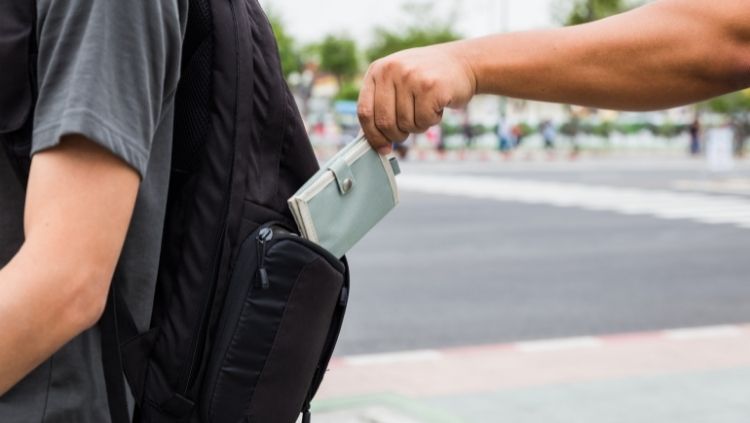
Traveling alone requires some special attention to safety. Whether you're a beginner or experienced, everyone can benefit from some solid solo travel safety tips.
After all, you alone must:
- prevent problems from arising
- be aware when they could or do arise
- decide how to manage them if they arise
When it comes to travel safety, prevention comes first.
In all my travels, I have encountered remarkably few problems. I believe it's mostly because I think in terms of prevention. I set myself up for safety.
True, no amount of prevention is a guarantee of safety. Things happen! Still, prevention is an important start and a significant aspect of these 50 solo travel safety tips.

Table of Contents
10 Steps to Plan for Safe Solo Travel
- Safety begins before you leave . Research is important. Knowledge protects you from the danger of misinformation, unsavory individuals, and/or naively wandering into an unsafe area. Imagine how you can be taken advantage of if you don't understand the currency. Or the health problems you could face if you don't know the necessary vaccinations for your destination. Or the potential loss of money, documents, and more if you don't know the unsafe areas at your destination. Understanding your destination before you go is key to your safety when you're there.
- Know your strengths and weaknesses . If you are new to travel, you likely have a lot to learn. If you've traveled a lot but have never traveled solo, you have different issues to resolve. We have a lot on the site for solo travel newbies. Read Travel Solo for the First Time: Complete Guide for Newbies .
- Choose your destination carefully . We all have different ideas of safety. Some would never consider certain destinations for safety reasons while others would. Make sure the safety level of your destination meets your personal travel safety needs. Read Destinations for First-Time Solo Travelers: North America & International, check our Destinations section, which features posts written by solo travelers who've been there, and use guide books and your government's travel site.
- Check your government’s travel site. Your government likely has information on the travel documents you require for travel as well as any warnings for your destination. Here are links for travel alerts for the United Kingdom , United States , and Canada .
- Buy travel insurance before you go. I have World Nomads insurance. They are the only company I know that lets you buy insurance after you leave your country. However, it's certainly not after you need to make a claim. It keeps life simple and safe to buy insurance before you go. Read Going Alone? A Complete Guide to Travel Insurance for Solo Travelers or Best Travel Insurance for Seniors: How to Find What’s Right for You .
- Register with your government. I certainly don't do this every time I travel but if you're going for a few weeks, registering as a citizen traveling abroad is a good idea. Use the links above.
- Schedule your arrival during daylight. The first stop for most travelers in a new destination is their hotel or hostel. I suggest that you arrive in the mid-afternoon so that you can really see what kind of area you're staying in. A safe area will always look better in daylight. An unsafe area is more obviously so in daylight. But there are more very practical reasons to arrive during daylight. You will be able to find your accommodation more easily and if you don't like it, you will have time to make other arrangements.
- Know how you will get to your first accommodation . Your arrival in any new country, especially one where you don't know the language or the local transit system, is important. Research how you'll get from the airport to your hotel or hostel (I use Rome2Rio ) and give yourself lots of time. You will need it as you learn how their transit system works. If your flight arrives late in the day, you may want to avoid the transit system and splurge on a taxi to be on the safe side.
- Study a map before you leave. I'm one who loves maps so this is an obvious step for me. But even those who do not love maps are advised to look at one and get the lay of the land. For example, if you were to look at a map of Toronto you'd note that the lake is south no matter where you are in the city and the CN Tower stands high near the lake. If you get turned around look for the tower. If you can't see it, ask someone which way the lake is. Not everyone knows north and south but locals know where the lake is. The same logic can be applied in New York City and many other cities based on major landmarks.
- Develop your navigation skills . Before leaving home you can wander into a different town or part of town and practice your navigation skills. Read How to Navigate a New City Solo: Stay Safe and Don’t Get Lost .

Travel Safety Gear to Pack
I'm not really a “prepare for the worst and hope for the best” kind of person, even when it comes to solo travel safety. That said, when I buy products for travel, I try to buy ones that will increase my personal safety and the security of my things. Necessary, they have rarely been. But it's great to know that they are there.
- An extra place to stash cash . This silk bra stash is a handy way of hiding a bit of extra cash. Available on Amazon . You can also consider a money belt or a neck stash .
- Pickpocket-proof clothing . Pants and jackets with extra, hidden pockets offer additional places to keep cash. Here's a link to Amazon's many pickpocket proof items .
- Anti theft day pack . The Loctote AntiTheft Sack is a safe and it's a backpack. Take it with you or leave it in your room locked to an immovable object with your valuables inside and everything will be safe. It's also great for the beach.
- Water purifier . Stay healthy and save plastic water bottles with the Grayl Ultralight Water Purifier .
- hand sanitizer in travel-sized bottles
- Basic Band-Aids or more colorful bandages, if you prefer. They're essential.
- NEOSPORIN® NEO TO GO!® First Aid Antiseptic/Pain Relieving Spray is a compact antibiotic spray. It's perfect for travel.
- For blisters, I carry Dr. Frederick's blister plasters.
- Acetaminophen
- BENADRYL® Itch Relief Spray for insect bites. I used to use calamine lotion but it makes such a mess and stains everything. This spray is far easier to use and just as, if not more, effective.
- DEET-free Insect Repellent from Repel .
- Instant Cold Packs
- Any medications recommended by my travel clinic
- The right wallet . Identity theft is a real thing. RFID skimming is where, with the right technology, a person near you can gather data from your credit cards without your knowledge. There's little evidence that it constitutes a huge threat but there's no harm erring on the side of safety. RFID-blocking products are available in the form of hard-shell card holders and leather wallets . Here's some more information about RFID-blocking from NordVPN.
- A doorstop. Small and light, these can be very handy in smaller hotels off the beaten track where card keys and deadbolts are not common. Simply squeeze the doorstop under your door.
- Whistle . A whistle attached to your day bag can be handy if you feel the need to draw attention to yourself and scare away any unwanted attention.
- A VPN on all your devices . A VPN is mentioned below in the tech section but it can't be emphasized enough. Read: Best VPN for Travel: What, Why and Feature-Price Comparison .
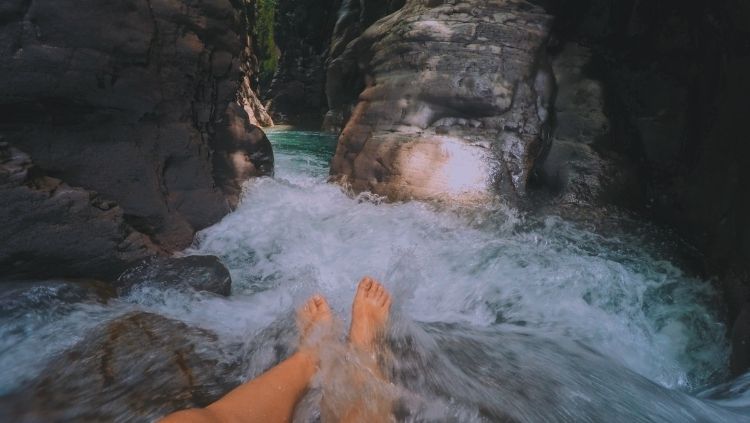
How to Keep Your Money and Documents Safe as You Travel
- Protect yourself from pickpockets . Pickpockets target travelers. Fortunately, there are things you can do to prevent them from pickpocketing you. Get all the details by reading Protect Yourself from Pickpockets: Keep Cards & Cash Safe .
- Use credit and debit cards wisely. How you manage your money as you travel is very important. For example, to save money, walk past those money exchange kiosks at airports and use an ATM in the city.
- Don't carry more than you need. If you have a card that does not charge you for taking funds from international ATMs, it's best to take out small amounts frequently rather than carrying large amounts of cash. The exceptions are when ATMs are hard to find or you will need more money than normal for a particular reason.
- Get a credit card that doesn't charge foreign transaction fees. The Chase credit cards are known for being good for this in the US.
- Carry a spare credit card. Not every card works everywhere. Carry a spare for such a situation or in case you lose your card.
- Keep emergency cash hidden . You can carry it on your body and have some tucked away in your suitcase or backpack.
- Don't take unnecessary documents with you . For travel, you likely need your passport, driver's license, visa (if the country you're visiting requires one), travel insurance, and possibly proof of vaccination. You don't need your social insurance card, checkbook, and the like. Leave the latter documents at home.
- Have multiple copies of your documents. I carry my original documents with me as I travel. I like the security of knowing where they are at any given moment. I have scanned copies in my Lastpass vault. You can do the same with Nordpass . I also have photocopies of my documents in my suitcase or backpack which is, on a typical travel day, in the hotel or hostel. Finally, I leave copies of these documents with my husband at home. Read about using Lastpass and Nordpass for documents here: Best VPN for Travel: What, Why and Feature-Price Comparison .
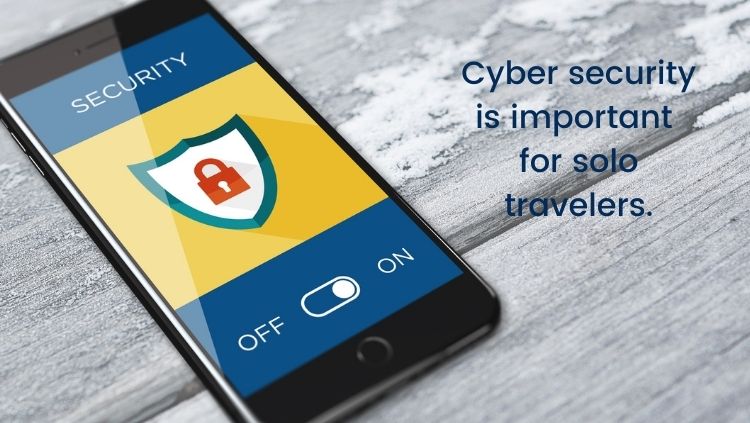
Technology for Travel Safety
- Use a VPN. Before you use a credit card online or check your bank balance or, basically, go into any website that requires a password, make sure you turn on a VPN. It's almost impossible to travel and not use public Wi-Fi whether it's in the hotel or a café. Read: Best VPN for Travel: What, Why and Feature-Price Comparison .
- Pre-program numbers into your phone, like your accommodation phone number, your government’s consulate office, and 911 if you are in North America.
- Make use of digital safety tools. There are hundreds of safety apps and tools on the market. From basic apps that come pre-installed on phones to a few specially designed for travel safety, we share our recommendations in 10 Solo Travel Safety Apps: Technology for Peace of Mind .
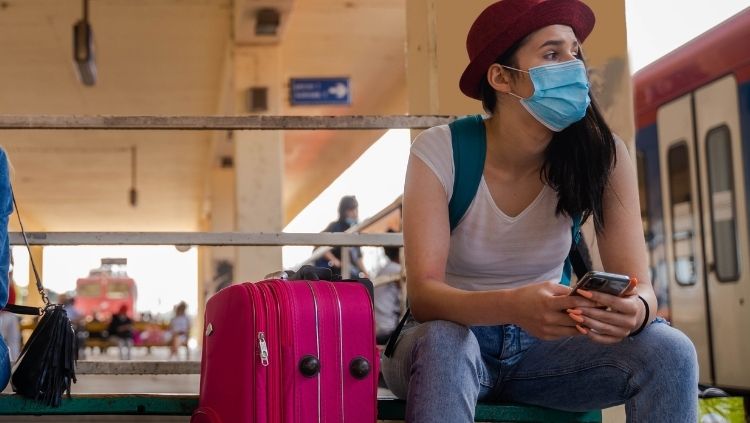
Solo Travel Safety Tips for While You're On the Road
Remember all those rules your mother taught you to ensure that you stayed safe as a child? They also make great solo travel safety tips. Apply them rigorously when you're traveling.
- Trust your intuition . If it doesn’t feel right, leave. Whether it's a bar or a park or a hostel, if you don't feel good in the situation, if your spidey senses are tingling, it's best to get out of there.
- Know the typical con games of your destination . If someone wants to give you something for free it may be a good idea to decline. A rose is often offered on the streets of Barcelona to draw travelers in for a con. A ring apparently found on the ground and offered to you as the person who possibly lost it, is another ruse to turn away from. Familiarize yourself with the common con games travelers encounter. Here's a list of 40 tourist scams .
- Stay in public. I learned this lesson the hard way. I was caught in a con game and, fortunately, I did not leave a public place. Had I done so my life would likely have been much different.
- Where you're staying is personal information. Don’t tell strangers where you’re staying either in words or actions. Your accommodation should be your safe haven.
- Going out at night? Read this post on Night Safety for Solo Travelers: 17 Tips .
- Stay alert. Sleep well. Stay sober . While it's wonderful to sink into a destination, luxuriating in its culture, it's also important to stay safe. Being well rested and sober is key to being alert and exercising good judgment, both of which are key to your safety. If you are not one, the other, or both, recognize that fact and be extra careful.
- Walk with confidence. In tourist areas such as around the Eiffel Tower, meandering as a tourist makes sense. However, there are other circumstances where you want to walk like a local, as if you know exactly what you're doing and where you're going. You don't want to look like a tourist. That requires that you walk with confidence. Read Solo Travel Confidence: How to Be Strong, Capable, and Safe
- Blend in as well as possible . Blending in requires more than just walking with confidence. Be aware of cultural differences and blend in if possible. Read 12 Ways to Blend In When You Travel Alone .
- Be polite. Be impolite. Being impolite can definitely get you into trouble. If people take offence at your behavior it's hard to know what can happen. So, definitely be polite under most circumstances. But if a person is bothering you, being polite can get you into trouble too. Know when and how to make a lot of noise and attract attention to yourself and the person bothering you.
- Pack right . You're more mobile and have less to lose when you pack light. Read: Bare Minimum Packing . Use a distinctive mark on your luggage other than a name and address tag. Keep your luggage tags with your flight ticket. It's important to be able to confirm that the luggage is indeed yours. You may also want to keep your name and address inside your bag for proper identification if needed.
- Don’t flash wealth. Leave expensive things at home. Don't wear jewelry or flashy clothes and accessories that will attract attention to yourself. Even if they don't go after your jewelry, they may target you and pick your pocket.
- Keep your belongings close . Hold your wallet, camera, and phone close to you. Never keep your wallet in your back pocket. Keep the number of things you're most concerned about to a minimum. For me, it's my wallet, phone, and passport. Having just three things makes them easy to carry and keep track of.
- Take special care of your documents . I keep my passport on me. I keep my plane ticket on my phone plus paper copies in my bag. I keep extra money in a couple of places and an extra credit card separate from the one I regularly use. Read: Protect Yourself from Pickpockets: Keep Cards & Cash Safe .
- Carry the business card of your hotel or hostel. Getting back to your hotel or hostel is pretty important but it can be a challenge if you're in a country where you don't speak the language. When you check in, get a business card from the establishment and carry it with you.
- Don't automatically jump in to help . If you see someone suddenly in need of help, get someone else to go to their aid with you. A local is better able to help and having someone else involved will protect you should the incident be a con game.
- Always carry a map. While walking around with a map in your hands may make you look like a vulnerable tourist, having one on you can be very helpful. If you're lost, stop into a shop to look at it and get assistance. They are especially helpful when you don't know the language. You can point to your destination, making communication easier.
- Understand the city transit system. Riding public transit is a great way to get to know a city and its culture. But, before you go, know how safe it is, how much the fares are and how they are paid, whether a pass is a good idea, and the basic routes you'll be taking.
- Take a break once in a while. This goes along with staying aware of your surroundings. If you're experiencing travelers fatigue, join a day tour or cooking class or something that will make for a simple, interesting, and relaxing day.
- Ask for a room on an upper floor.
- If you are a woman, ask if there is a women-only floor and get a room there, if possible.
- Be aware of the alternative exits.
- Before you go out, ask about safety.
- When you return at night, ask for an escort to your room if you are nervous.
- Use the security lock.
- Lock important items in the room safe.
- When you leave your room, leave the TV and a light on, if possible. Put out the “do not disturb” sign to suggest that there is someone in the room.
- Check TripAdvisor.com for a review of your accommodation in case travel safety is highlighted as an issue.
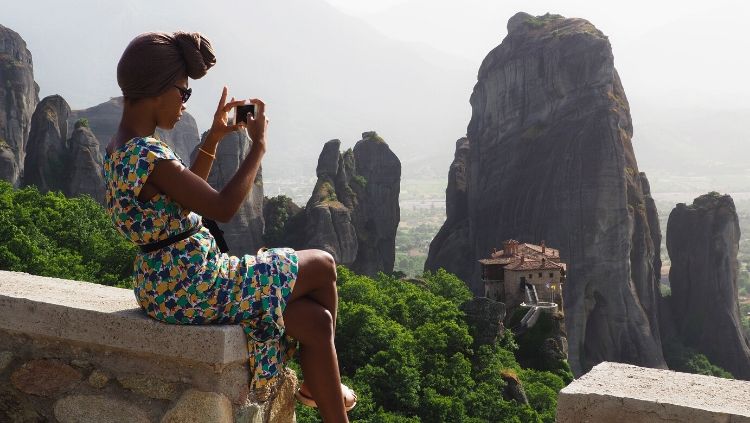
Is Solo Travel Safe?
I believe that solo travel is as safe as traveling with a companion. Follow the advice above, use your smarts, and you should be okay.
There's more you can read about safety on Solo Traveler:
- Solo Female Travel Safety: Answering a Stranger’s Question-Or Not
- Solo Travel Over 50: Reasons, Benefits, Destinations & Safety
- A Road Trip Alone: Top 10 Tips to Prepare
Sharing is caring!
Publisher Janice: info @ solotravelerworld.com
Editor Tracey: tracey @ solotravelerworld.com
Sales Simon: simon @ solotravelerworld.com
Get Solo Travel News & Deals
- Create Your Advertiser Account
- Login to Your Advertiser Account
- Solo Travel Statistics
- Media & Speaking
- Privacy Policy & Disclosure

The content of Solo Traveler and any resources published by Solo Traveler are meant for entertainment and inspiration only. Please note that while we have advertising clients promoting destinations, products, services, trips and tours on Solo Traveler and that we endeavour to only work with companies in which we have confidence, we are not responsible for the delivery or quality of their products or services. Every person and every travel situation is different. Your safety, satisfaction and fun traveling solo are your responsibility alone and not that of Solo Traveler, its publisher, editor and/or writers.
PRIVACY POLICY & DISCLOSURE: In accordance with FTC guidelines, I disclose that I may be compensated if consumers choose to utilize links located throughout the content on this site. Additionally, some posts might be sponsored to support this site. Please do the appropriate research before participating in any third party offers. All opinions are my own. Please read our full Privacy Policy here.
Safety Tips for Traveling
Whether you travel often or you’re getting ready for a once-in-a-lifetime vacation, it’s important to think about safety as part of your travel preparations. The following tips can help travelers plan for a safe and comfortable trip and may reduce the risk of many different types of crimes, including sexual violence.
Before you go
- Share your travel information. Before you leave, share your itinerary with someone you trust. Include the address and phone number of your accommodations and transportation information, like flight numbers.
- Research ground transportation. Research taxi and ridesharing companies that are available and reputable in the area. Do they take credit cards or only cash? Is there a number you can call if you have a bad experience? If you plan on taking public transportation, look for a mobile app that has real-time updates for the transportation system at your destination. This can help you avoid waiting for a bus in an isolated area.
- Familiarize yourself with the destination. Use tools like Google Maps to scout out the area around your destination. Is there a hospital or police station located near where you’re staying? Check to see if there are local bus stops in the area or a shopping center where you can easily find a cab. If you plan on going out in the evenings, plan your return trip in advance.
- Plan for safety abroad. Check out the State Department’s resources for international travelers . Identify the nearest U.S. Embassy or Consulate and store their contact information. Consular officers are available for emergency assistance 24/7. You can also register your international trip for free with the Smart Traveler Enrollment Program . If you are planning to travel on a cruise ship, read the safety information provided by the cruise line and learn more about cruise ship safety before you board.
When you get there
- Beware of “Vacation Brain.” It’s nice to relax and put your worries on pause, but that doesn’t mean you should let your guard down. Many vacation destinations can create a false sense of security. You may become fast friends with the people you meet, but give them time to earn your trust.
- Keep track of what you drink . Be smart about what drink. Not familiar with an ingredient? Look it up on your smartphone. Keep track of how much you’ve had to drink, and be aware of danger signs. If something doesn’t seem right—for example, if you feel more intoxicated than you should—or if a situation is making you uncomfortable, get to a safe place as soon as you can. Learn more about steps you can take to stay safe if you want to drink .
- Are you familiar with your surroundings? Take note of local landmarks, like drugstores or restaurants, that can help you feel more oriented. If something happens, you’ll know where to turn for help.
- If you get lost, do you have the address of your lodging written down or memorized in the local language?
- If you are separated from the group, is there a designated place where they would go to look for you?
- If your phone dies, do you have a portable backup charger and a few phone numbers memorized? If you’re traveling out of the US, have you activated international service?
- If you’re planning on driving, do you have access to a map if your GPS doesn’t work?
- Do you know where the nearest hospital or police station is and how to contact them?
In an emergency abroad
If you find yourself in an emergency situation abroad, contact the U.S. Department of State. They can connect you with a variety of resource to help, wherever you are.
- From the U.S. & Canada: 1.888.407.4747
- From Overseas: +1.202.501.4444
- You can also contact the nearest U.S. Embassy or Consulate in the country where you’re visiting. Consular officers are available for emergency assistance 24/7.
- If you are a victim of a crime, you can have the support of a U.S. consular officer to help navigate the process. This person cannot investigate crimes or provide legal services, but they can help you navigate the criminal justice system in the country you’re visiting. If you contact or report to local law enforcement, be sure to request a copy police report.
If you experience a crime like sexual assault while traveling, remember that it is not your fault. Help is available. To speak with someone who is trained to help, call the National Sexual Assault Hotline at 800.656.HOPE (4673) or chat online at online.rainn.org .
Related Content
Airport security for survivors.
Airport security can be stressful for any traveler, but for some survivors of sexual assault the security screening process is a little more sensitive.
Reporting to Law Enforcement
Understanding how to report and learning more about the experience can take away some of the unknowns and help you feel more prepared.
Practicing Active Bystander Intervention
When you see something that doesn’t seem right, there are simple ways to step in and help a friend.
What are the warning signs for child sexual abuse?
Every 68 seconds, another american is sexually assaulted., more than 87 cents of every $1 goes to helping survivors and preventing sexual violence..
The Economic Times daily newspaper is available online now.
Turbulence troubles expert tips on what to expect and how to stay safe.
Turbulence is a common and anxiety-inducing experience for many air travelers. Recent incidents, including injuries and even a fatality, have raised concerns about its frequency and intensity. Experts explain that turbulence is caused by unstable air movements due to changes in wind speed and direction, and its occurrence may be increasing due to climate change. Despite its unpredictability, turbulence rarely causes structural damage to planes, but it can result in serious injuries to passengers and crew.
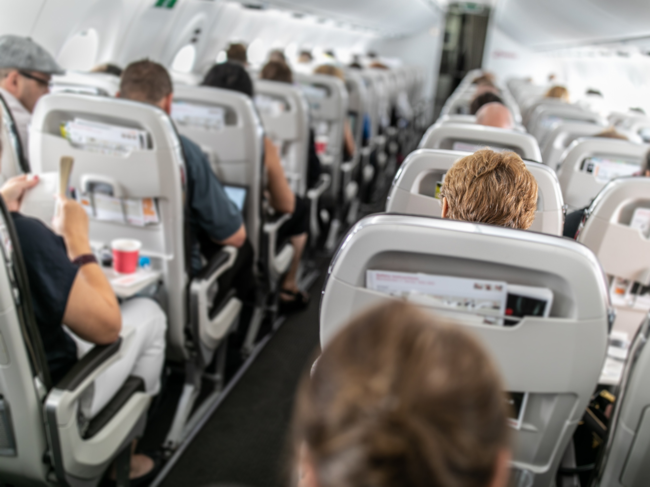
Lok Sabha Exit Poll Results 2024: Track all updates here
Read More News on
(Catch all the Business News , Breaking News , Exit Polls News , Election Results News Events and Latest News Updates on The Economic Times .)
Subscribe to The Economic Times Prime and read the ET ePaper online.

Ctrl+Alt+Delete on innovation? Digital Competition Bill has left Big Tech, startups flummoxed.

ET Prime Unicorn 100: The surprising fact about profits and Indian startups

Bajaj Finance: Five factors investors can’t afford to ignore before pressing buy or sell

Two big choices Anand Mahindra made four years ago are now paying dividends

COD(e) red: Failed deliveries ring warning bells for Amazon, Flipkart, D2C brands

Gas needs a new pricing meter
Find this comment offensive?
Choose your reason below and click on the Report button. This will alert our moderators to take action
Reason for reporting:
Your Reason has been Reported to the admin.

To post this comment you must
Log In/Connect with:
Fill in your details:
Will be displayed
Will not be displayed
Share this Comment:
Stories you might be interested in
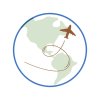
Passing Thru
20 Safety Hacks Every American Needs When Traveling Abroad
Posted: May 28, 2024 | Last updated: May 30, 2024
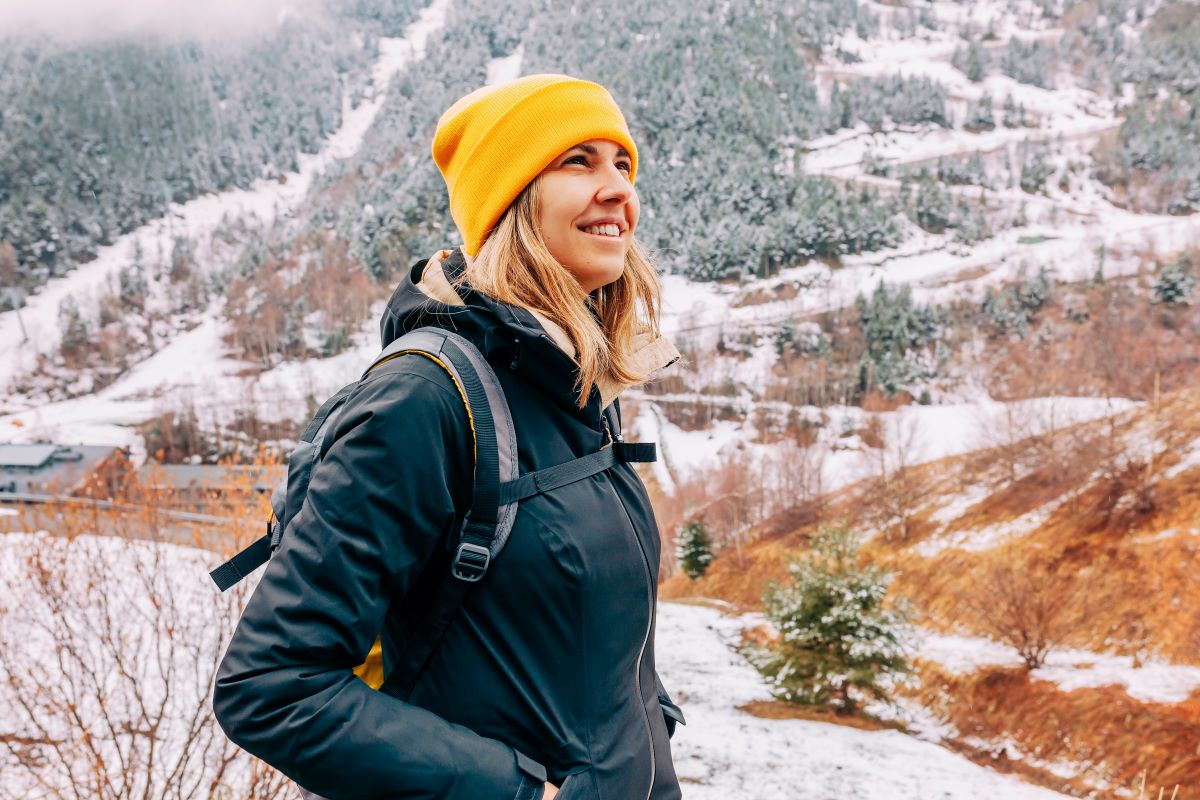
In an era where the world is just a few clicks and a passport scan away, globe-trotting has become the new American dream. Yet, with great adventure comes great responsibility—especially when it comes to staying safe in unfamiliar territories. Whether you’re navigating the bustling streets of Bangkok or the serene landscapes of the Swiss Alps, here are 20 safety tips designed to keep American travelers out of harm’s way, ensuring the only surprises on your journey are the pleasant kind.
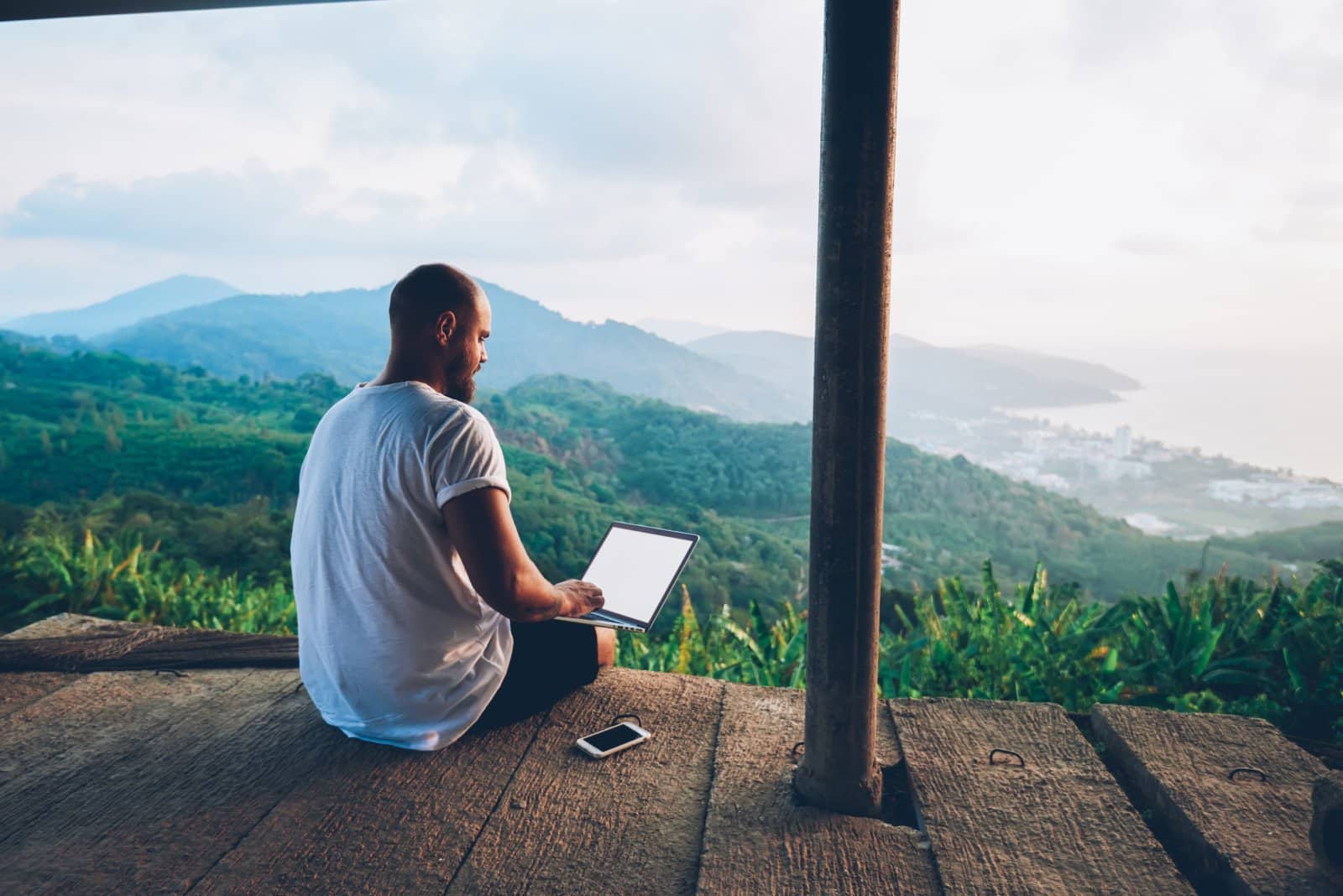
1. Do Your Homework
Image Credit: Shutterstock / GaudiLab
Research your destination thoroughly. Understanding local customs, laws, and safety concerns can prevent accidental offenses or dangerous situations.
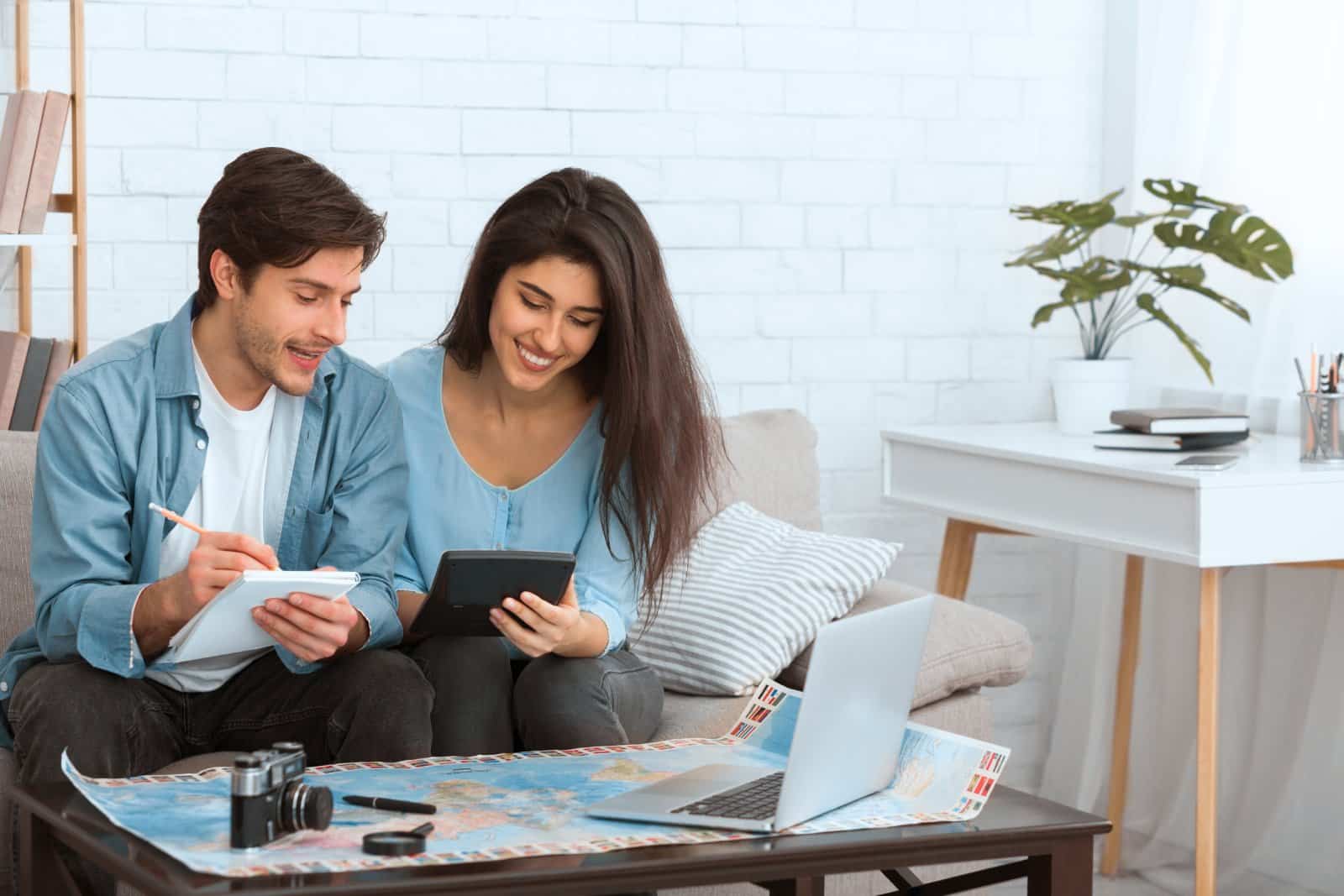
2. Share Your Itinerary
Image Credit: Shutterstock / Prostock-studio
Always leave a copy of your travel plans with someone back home. Include accommodation details, transportation plans, and any tour itineraries.
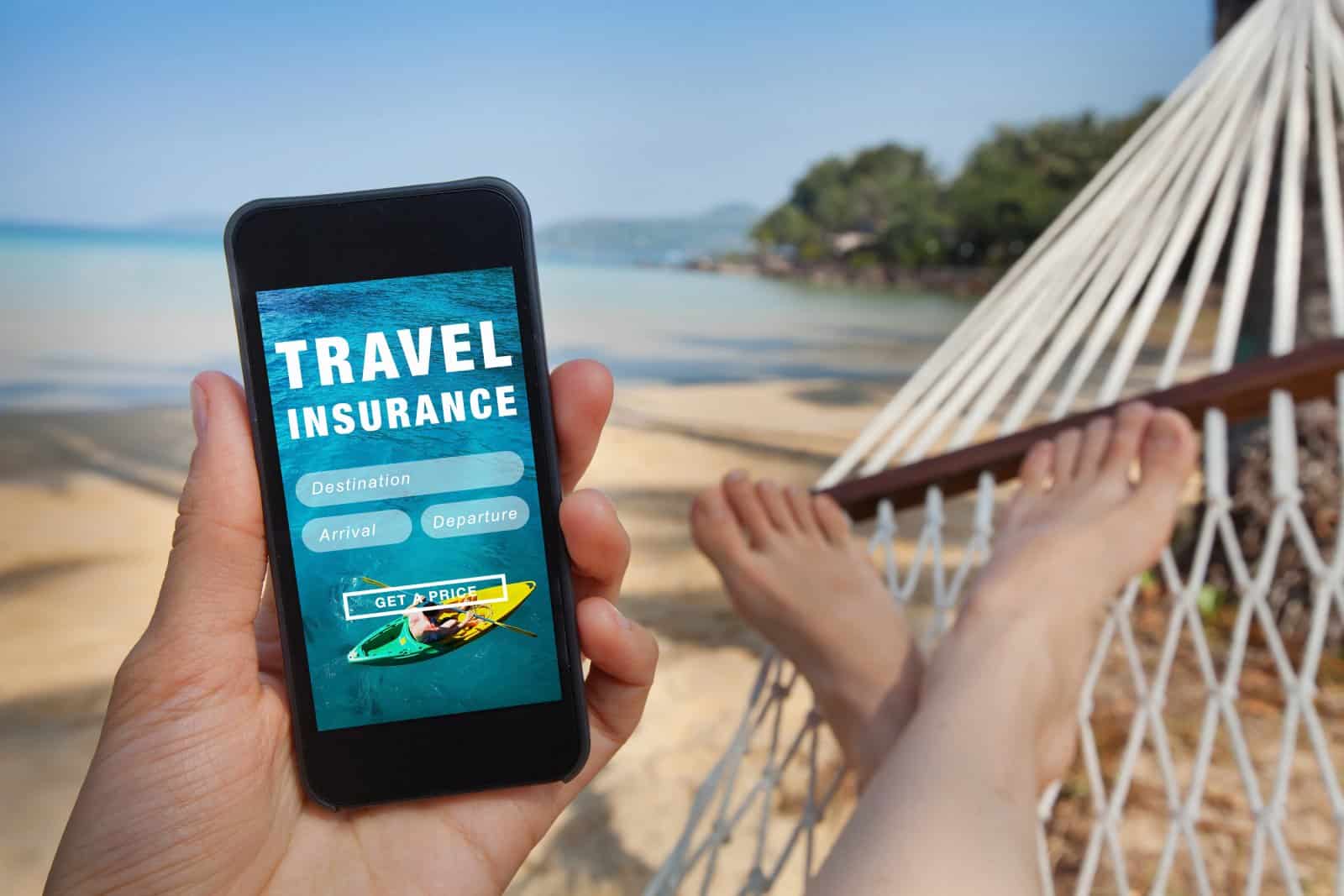
3. Stay Insured
Image Credit: Shutterstock / Song_about_summer
Invest in comprehensive travel insurance that covers medical emergencies, theft, and trip cancellations. It’s your financial safety net abroad.
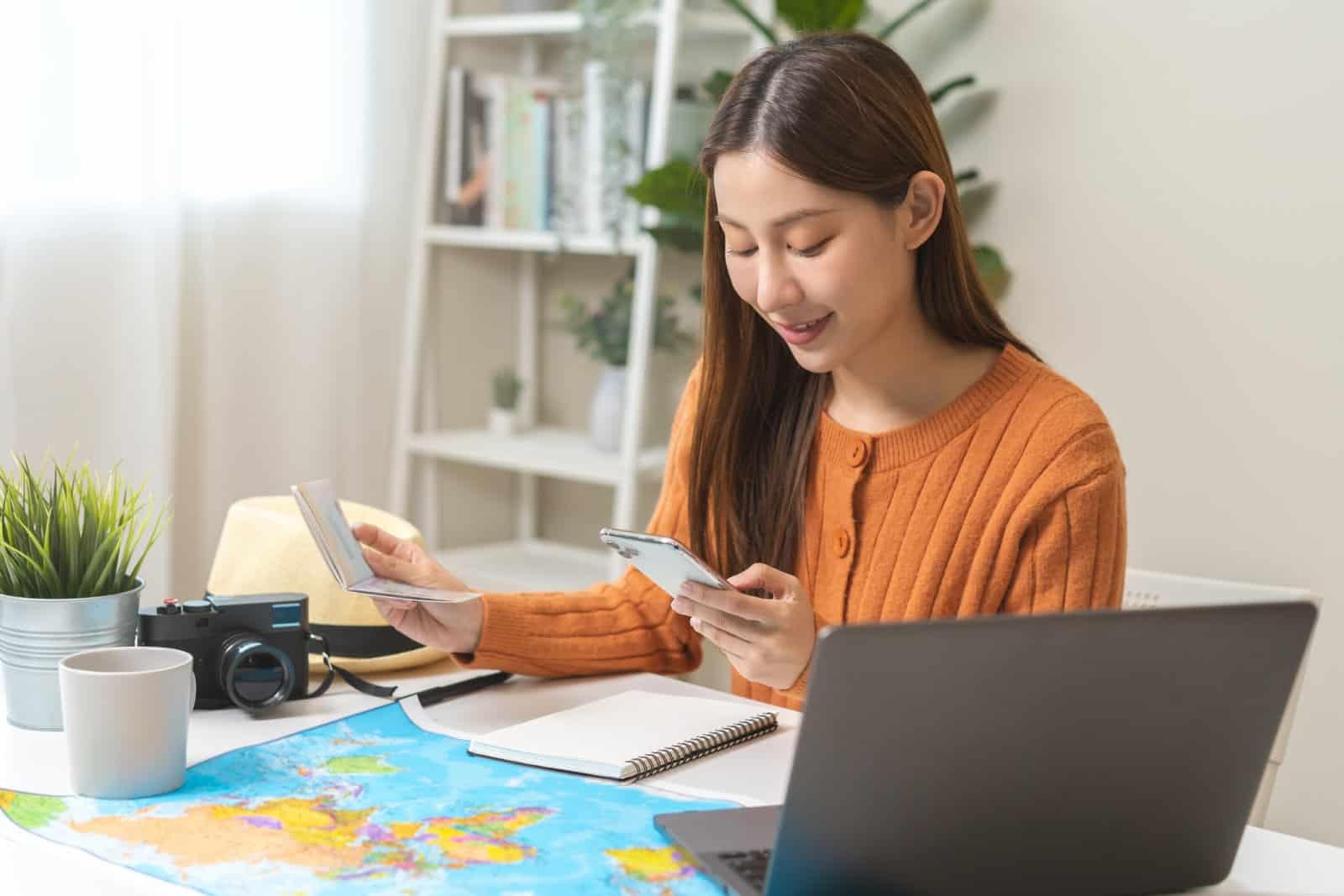
4. Keep Digital Copies
Image Credit: Shutterstock / Kmpzzz
Scan important documents like your passport, visa, and insurance policy. Store them securely online for easy access in case of loss or theft.

5. Localize Your Phone
Image Credit: Shutterstock / LDprod
Ensure your phone works in your destination country. Having a working phone is crucial for navigation, emergencies, and local apps that enhance safety.
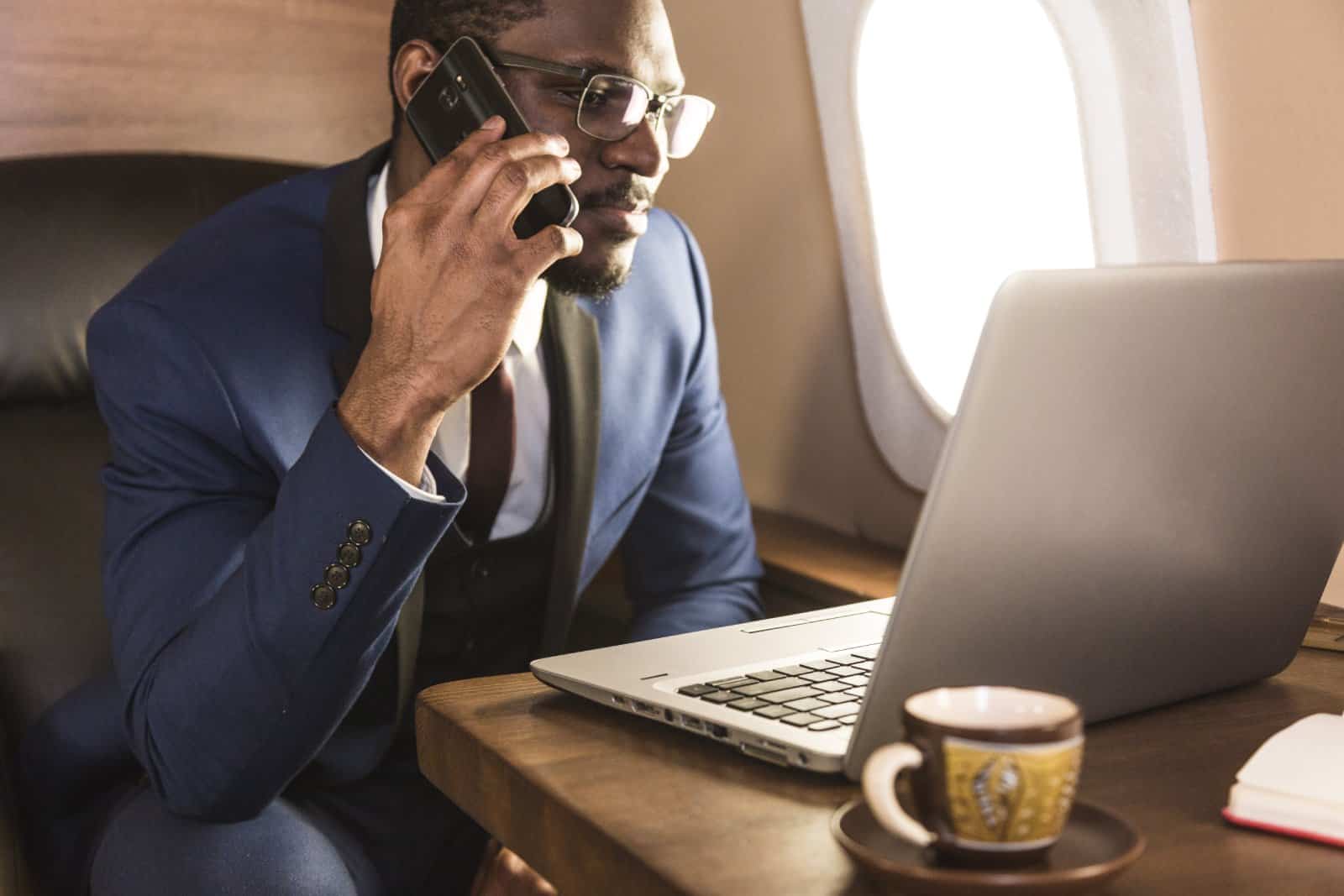
6. Beware of Scams
Image Credit: Shutterstock / XArtProduction
Familiarize yourself with common tourist scams in your destination. If an offer seems too good to be true, it probably is.
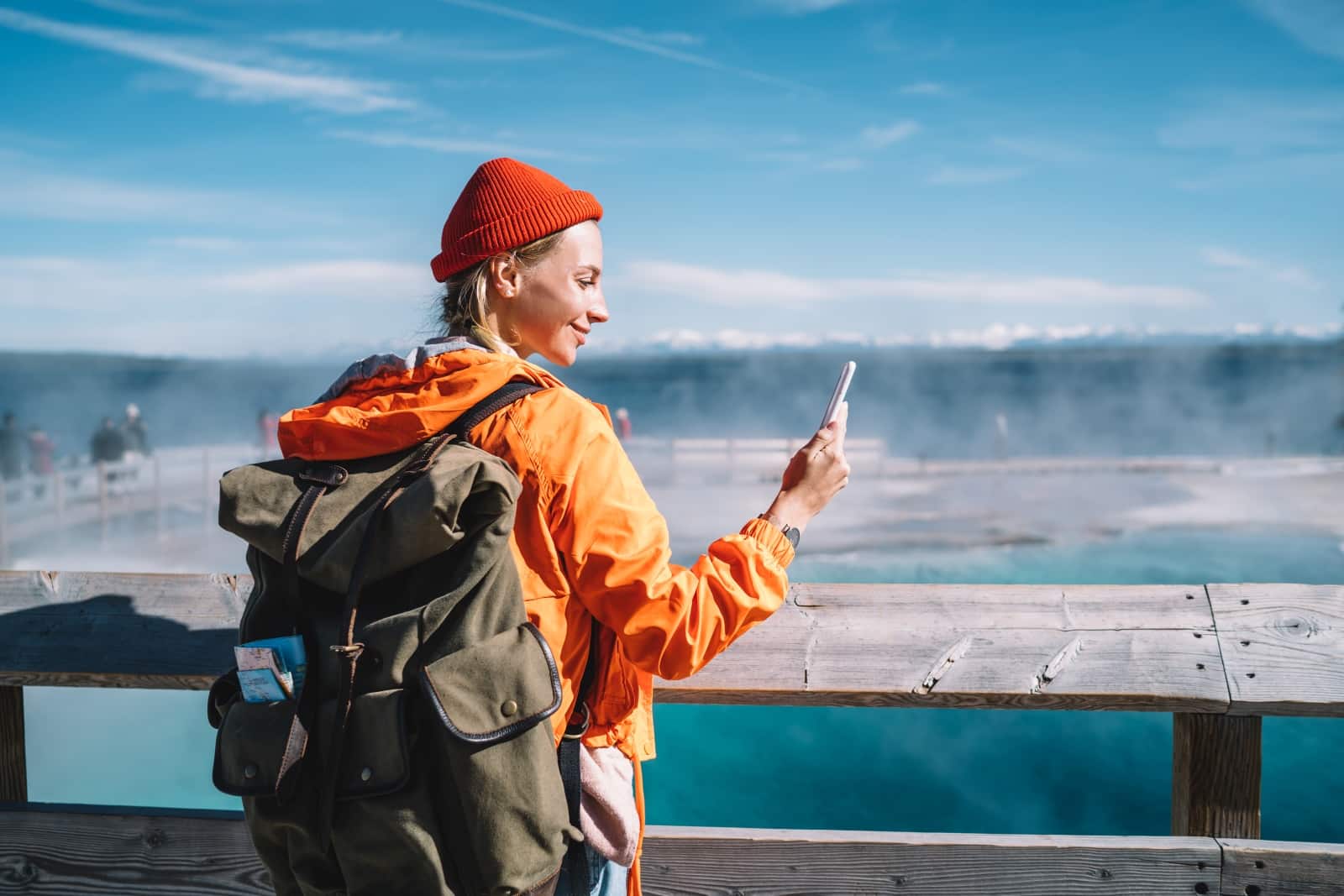
7. Trust Your Instincts
If a situation doesn’t feel right, trust your gut. Avoiding potentially unsafe situations is often the best preventative measure.
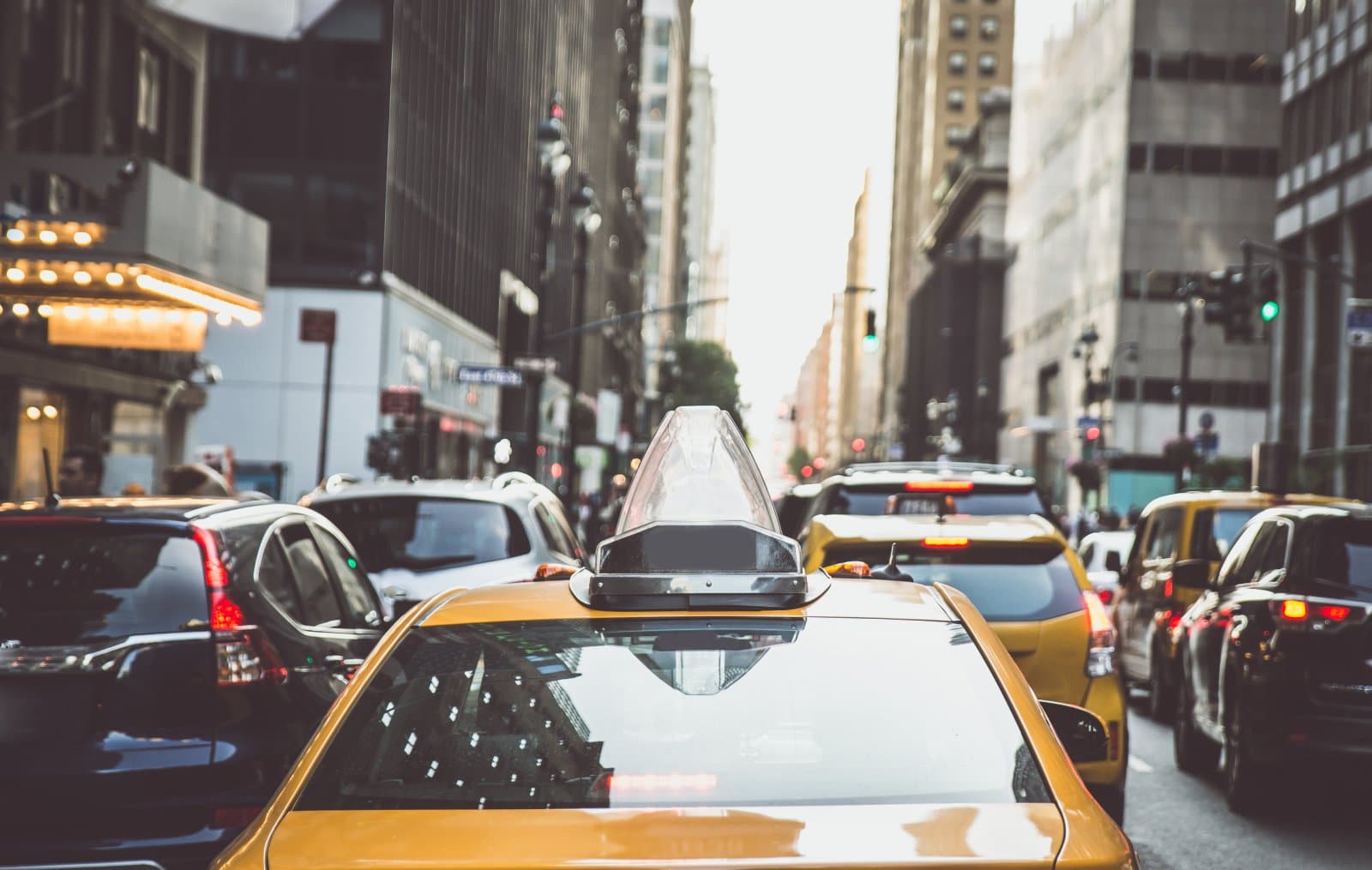
8. Use Reputable Transportation
Image Credit: Shutterstock / oneinchpunch
Opt for official taxis or well-reviewed public transportation options. Avoid unmarked cabs and overly aggressive drivers.
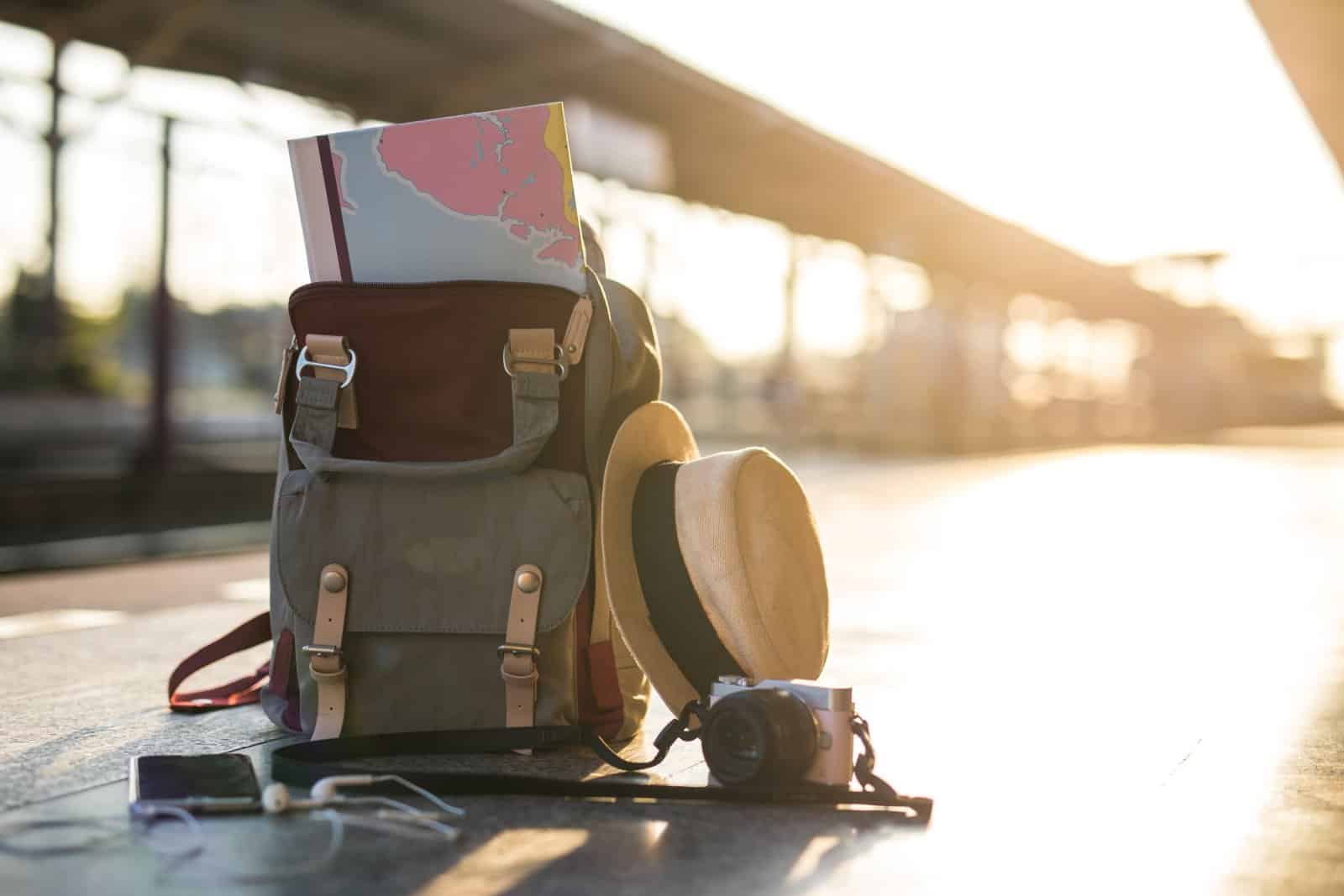
9. Secure Your Belongings
Image Credit: Shutterstock / GP PIXSTOCK
Use anti-theft bags and keep valuables hidden. Consider wearing a money belt for extra security.

10. Stay Sober and Alert
Image Credit: Shutterstock / astarot
While enjoying local nightlife, keep your wits about you. Overindulgence can make you an easy target for theft or worse.
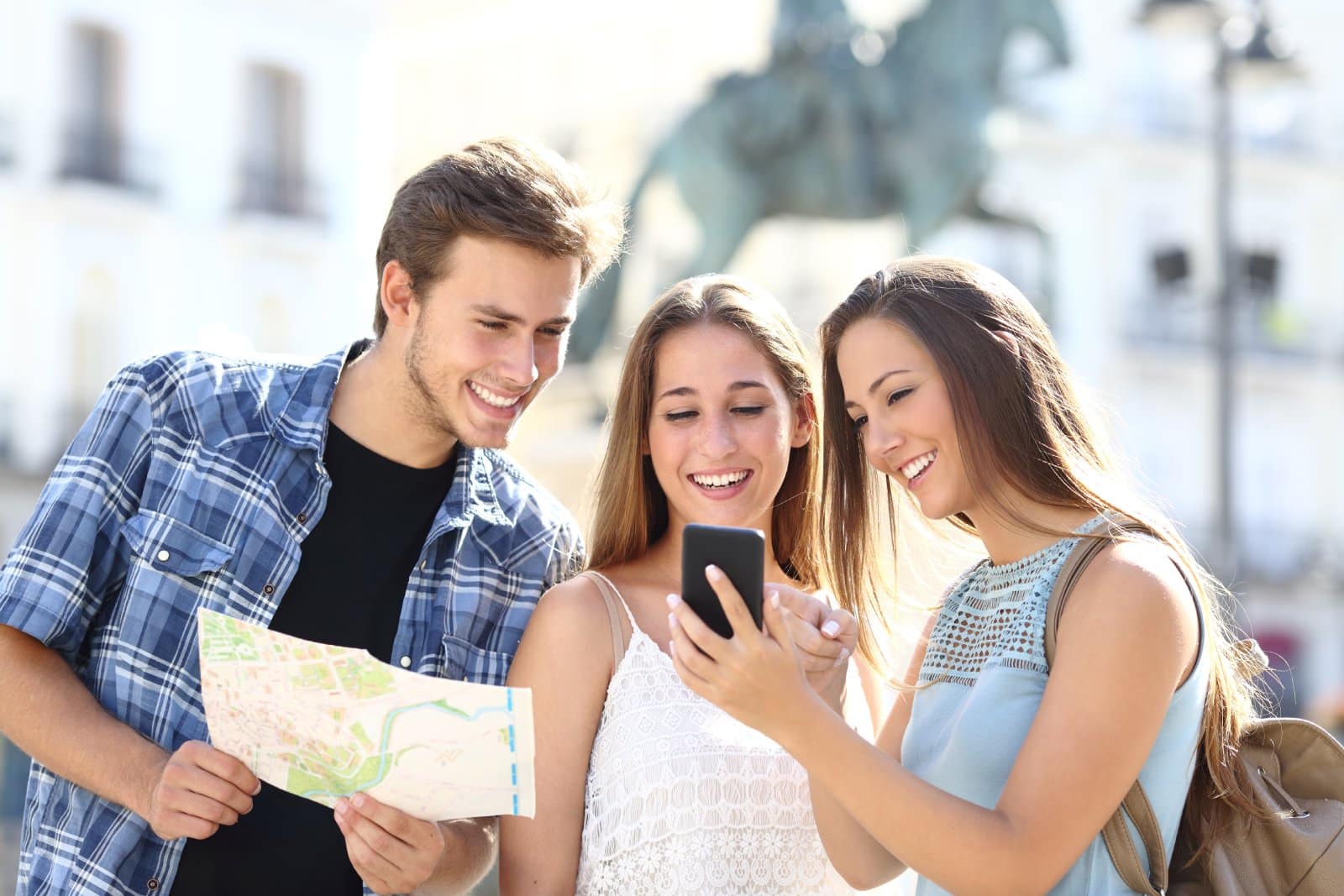
11. Learn Basic Phrases
Image Credit: Shutterstock / Antonio Guillem
Knowing how to ask for help, directions, or medical assistance in the local language can be a lifesaver in emergencies.
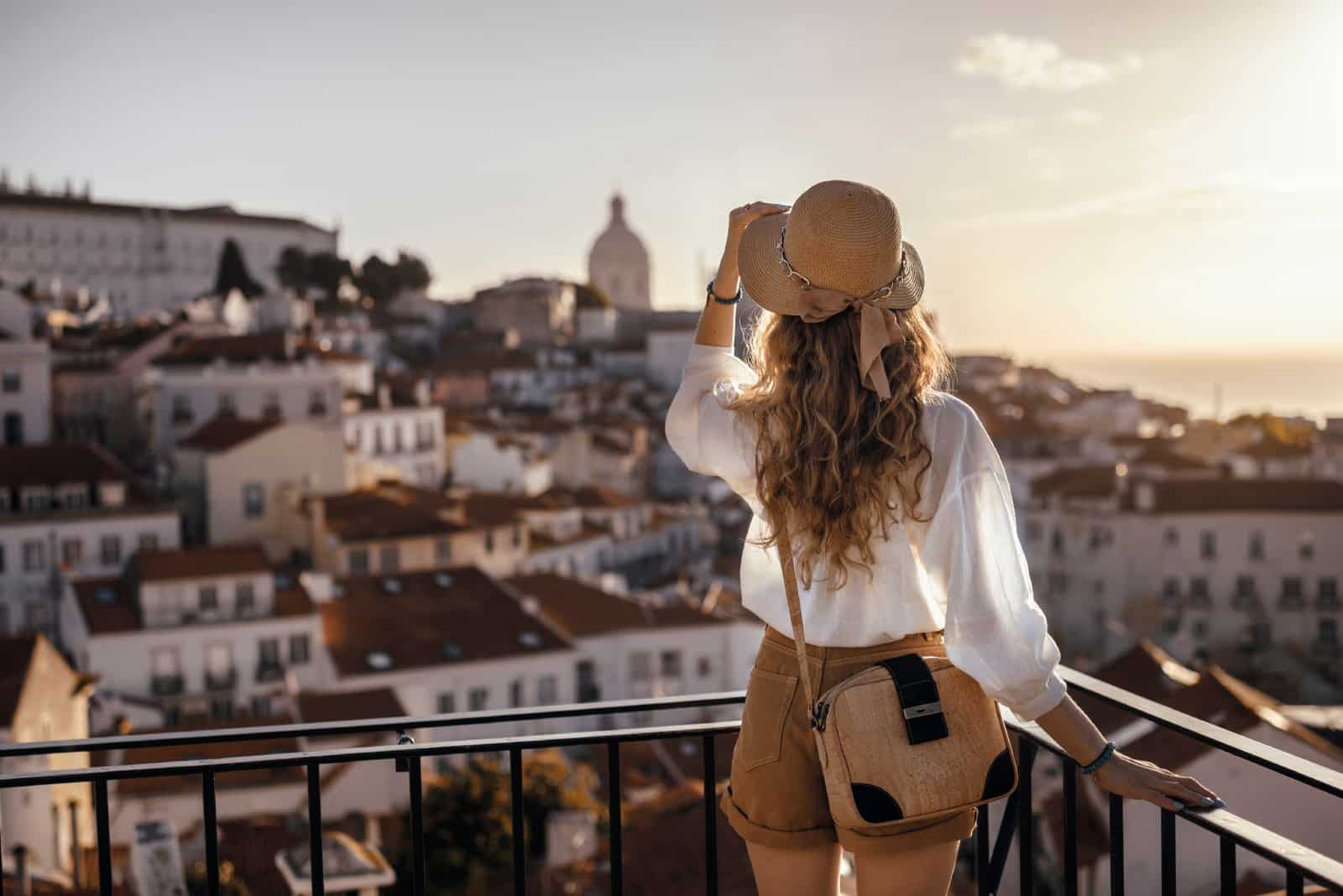
12. Blend In
Image Credit: Shutterstock / seligaa
Try to dress and act like a local as much as possible. Standing out overtly can sometimes attract the wrong kind of attention.
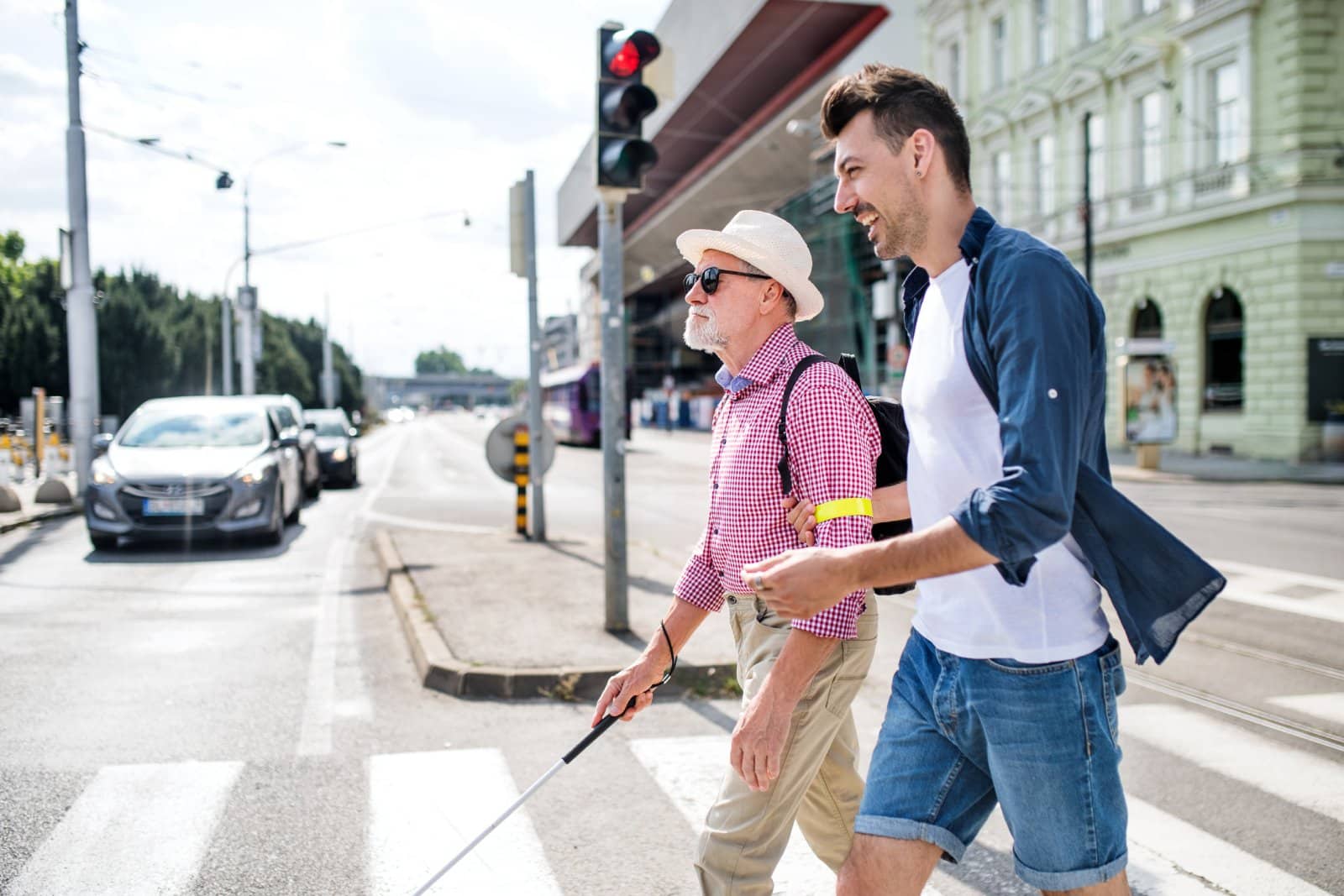
13. Respect Local Laws
Image Credit: Shutterstock / Ground Picture
Laws and regulations can vary dramatically from one country to another. Something legal in the U.S. might not be elsewhere.
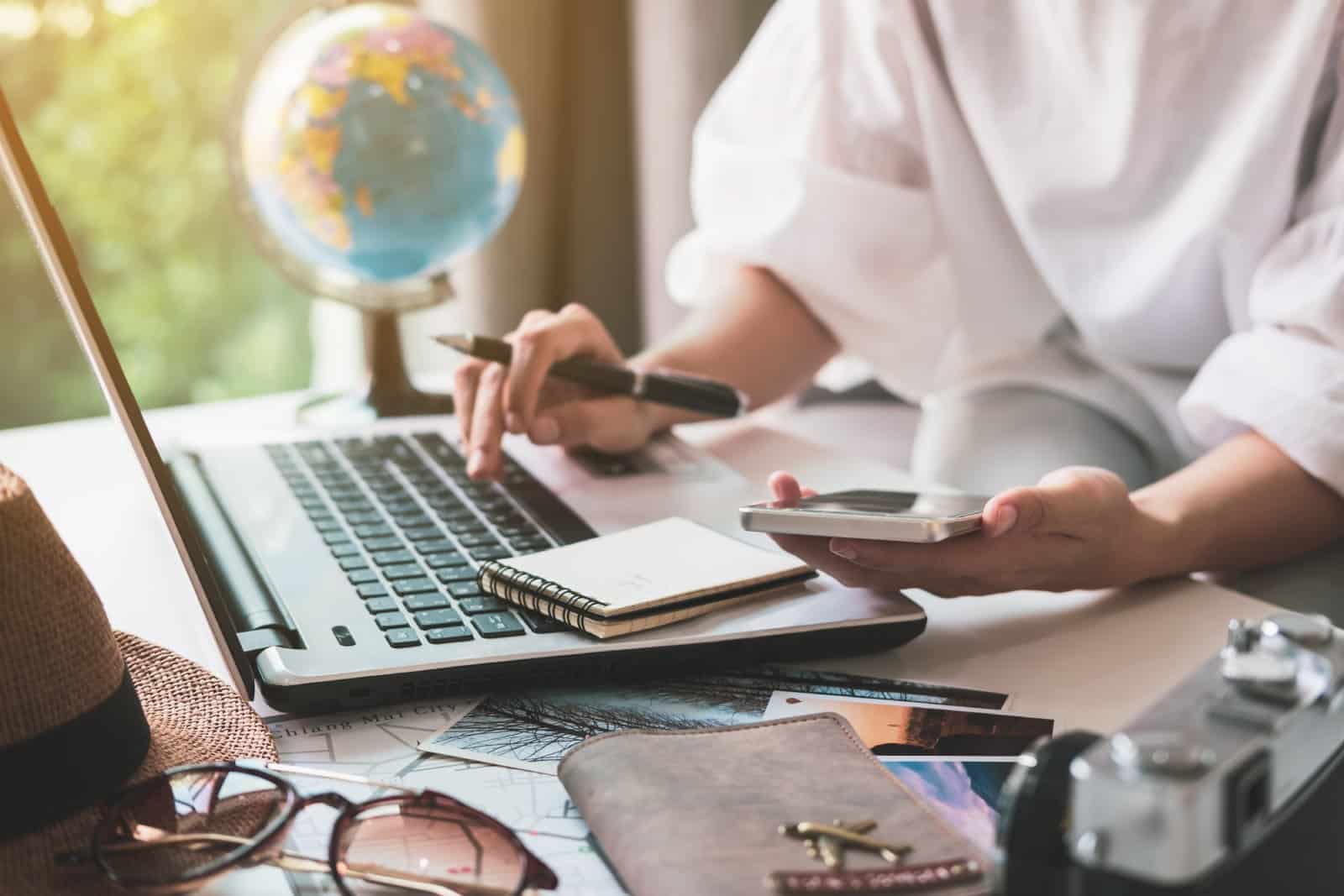
14. Check Government Travel Advisories
Image Credit: Shutterstock / kitzcorner
Before you go, and periodically during your trip, check your government’s travel advisories for any safety warnings or updates.
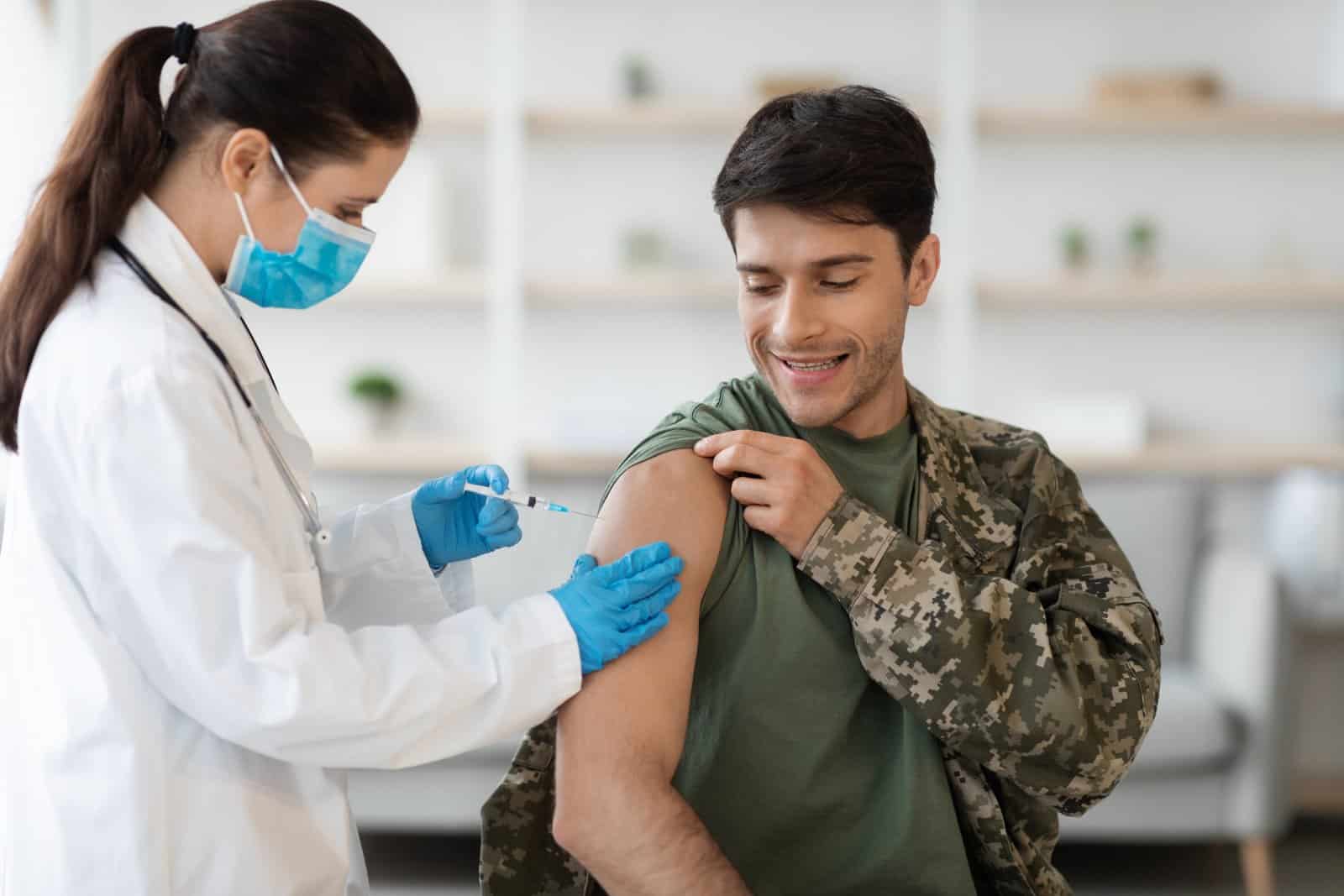
15. Safeguard Your Health
Get the necessary vaccinations before your trip. Carry a basic first aid kit and know how to contact emergency services at your destination.

16. Use Secure Wi-Fi
Be cautious when using public Wi-Fi networks. Consider using a VPN for added security, especially when accessing sensitive information.
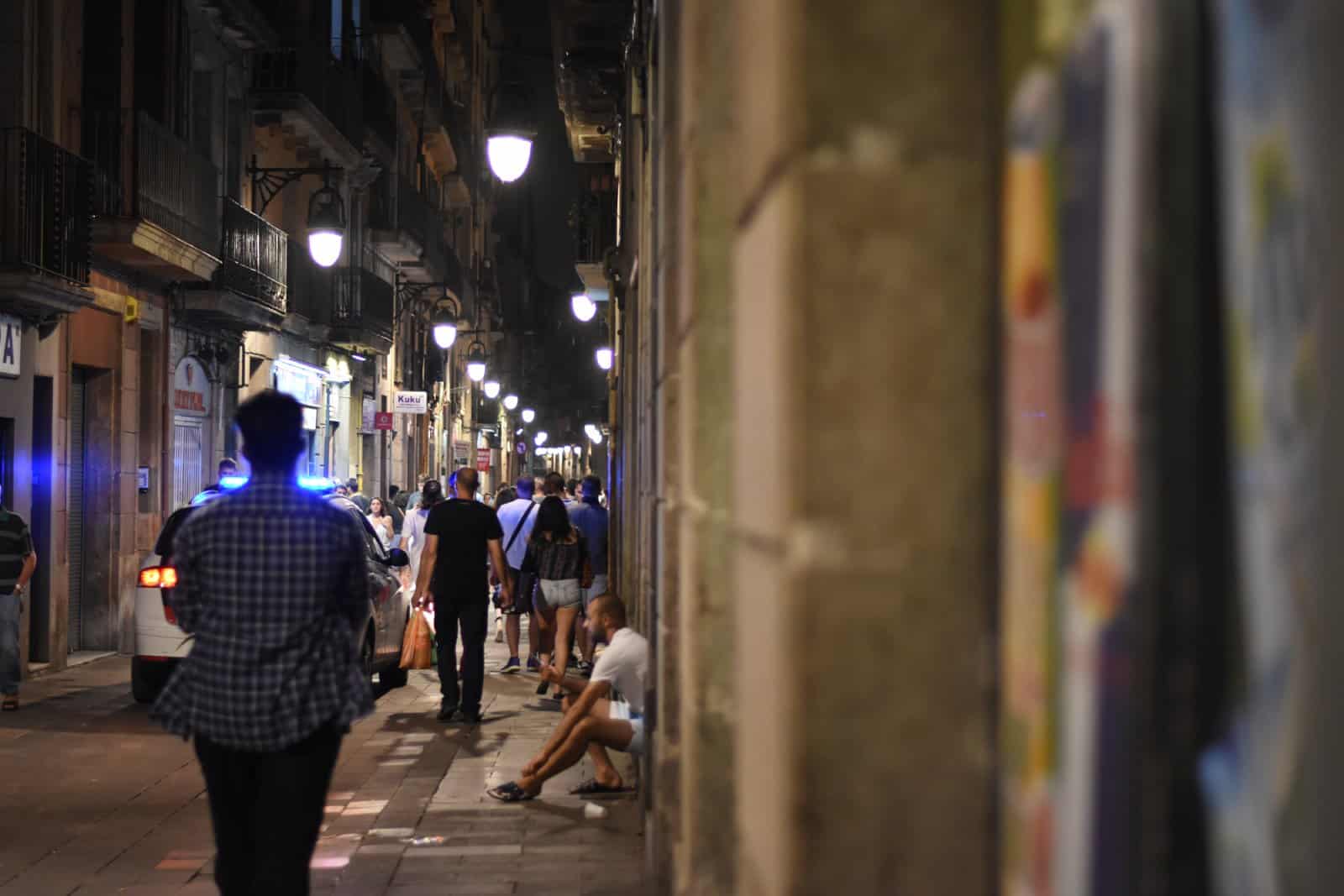
17. Stay in Well-Lit Areas
Image Credit: Shutterstock / Troy Rocco
When out at night, stick to well-lit, populated areas. Avoid taking shortcuts through unlit or isolated places.
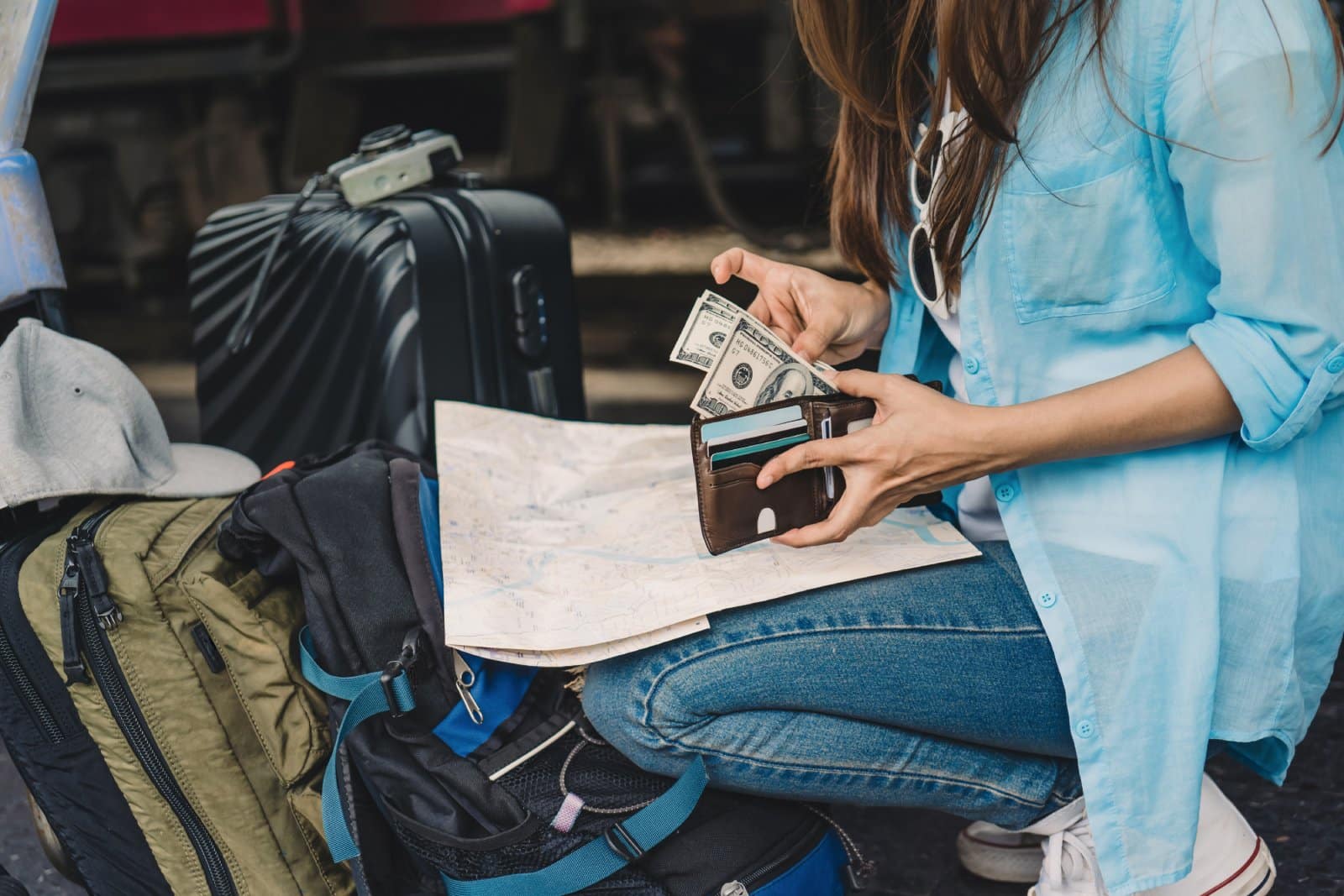
18. Monitor Your Finances
Image Credit: Shutterstock / HappyTime19
Regularly check your bank statements for any unauthorized transactions. Notify your bank of your travel plans to avoid any fraud alerts or blocks on your cards.
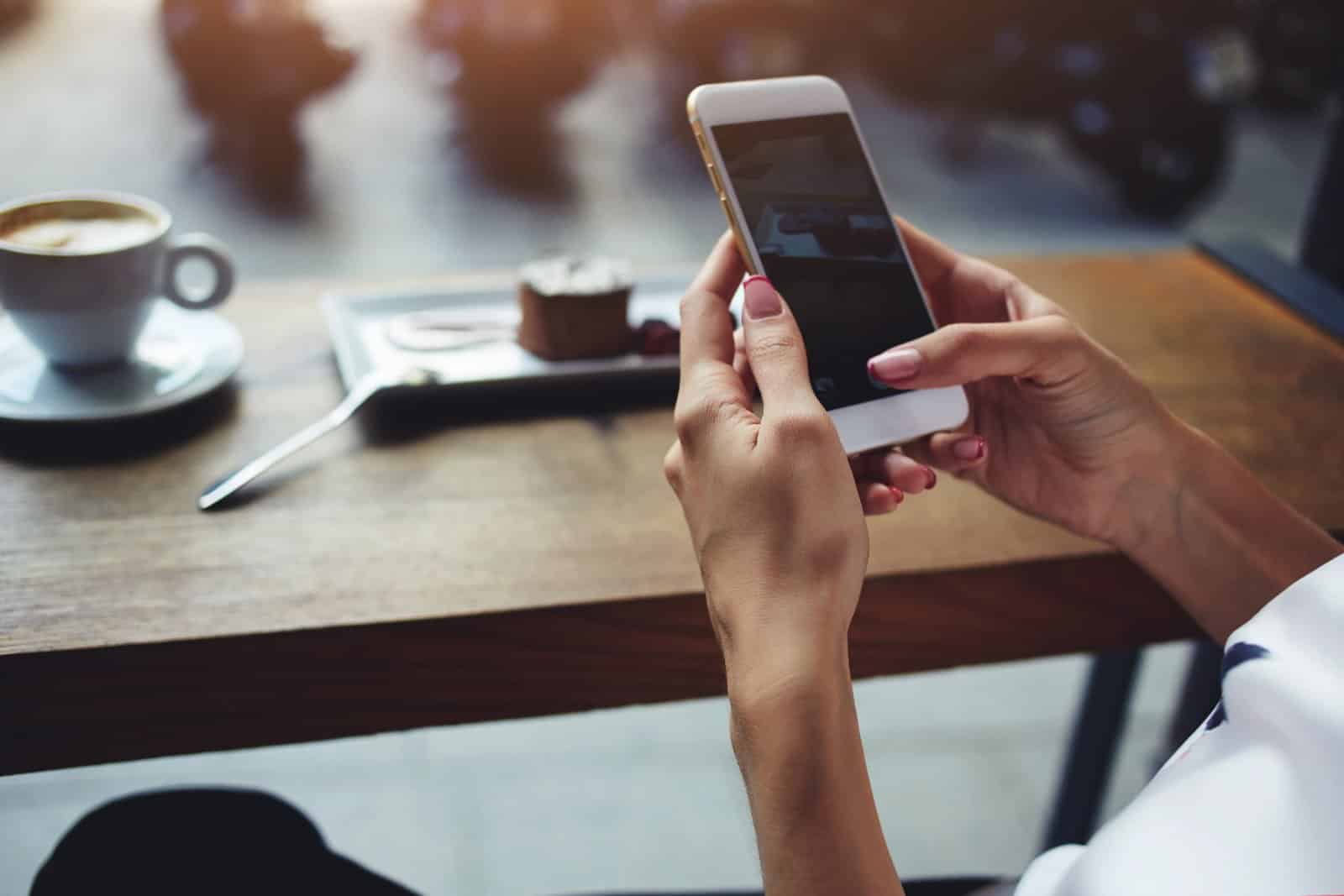
19. Keep Emergency Contacts Handy
Have a list of emergency contacts, including the local embassy or consulate, on hand at all times.
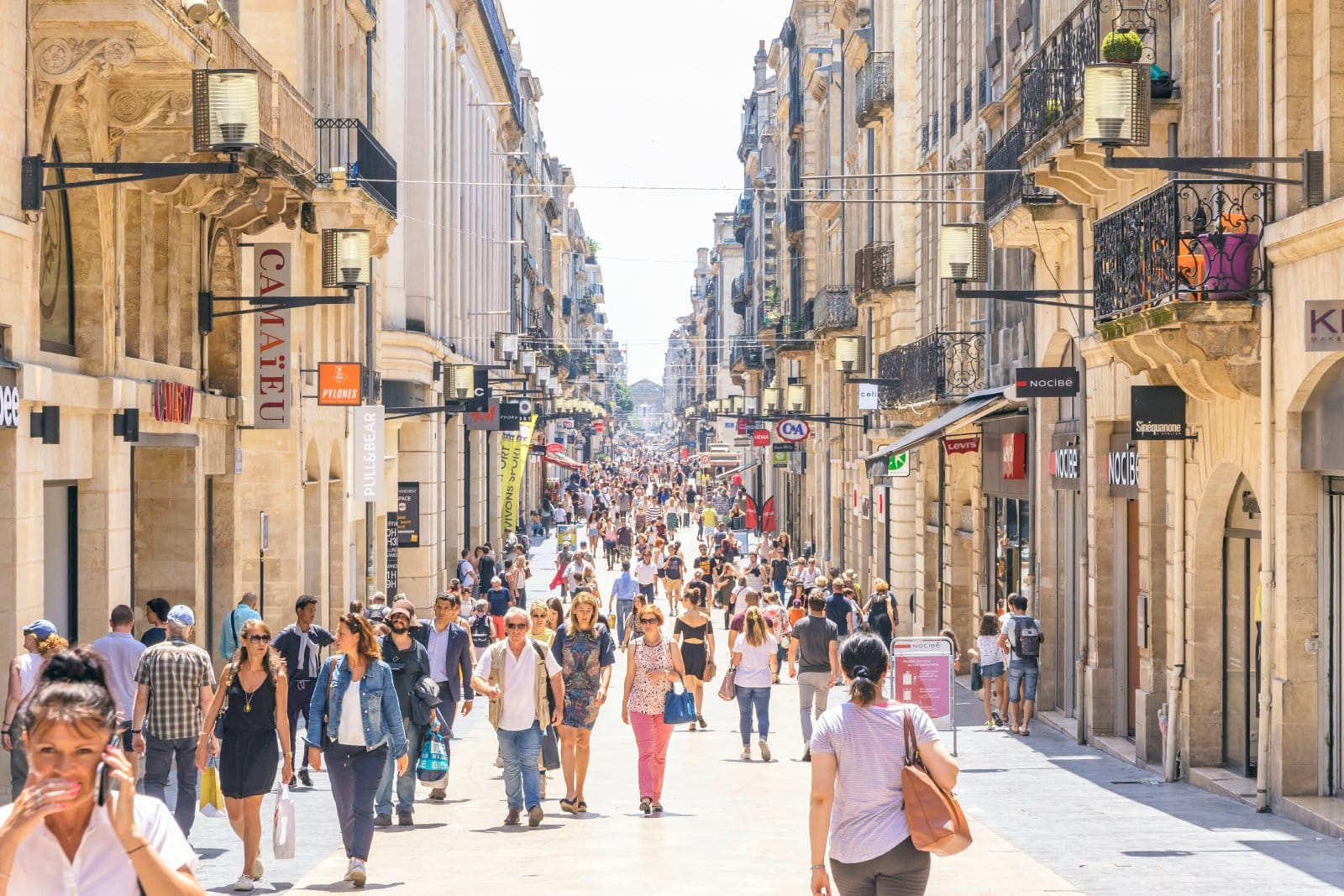
20. Embrace Situational Awareness
Image Credit: Shutterstock / katatonia82
Always be aware of your surroundings and the people around you. Avoid distractions that could make you vulnerable.
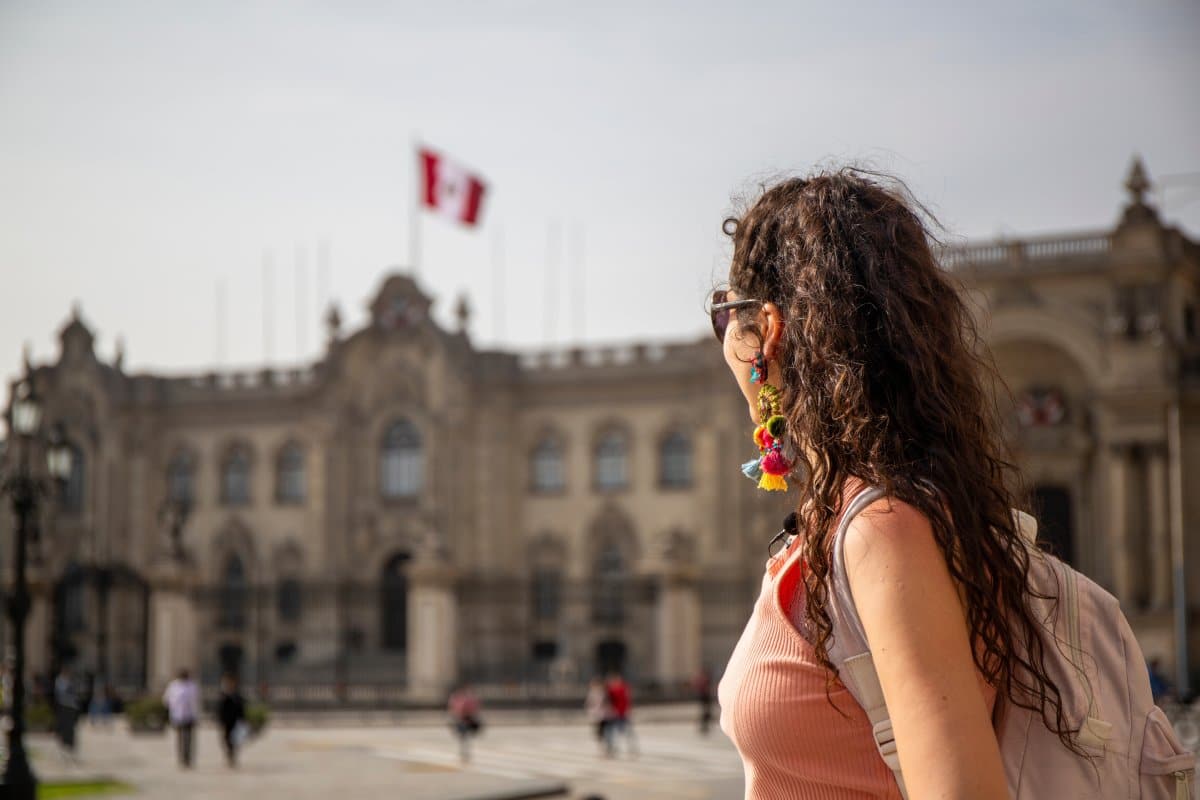
Safe Travels, Adventurous Spirits
Featured Image Credit: Shutterstock / Angel Cristi
Armed with these safety tips, American travelers can navigate the globe with confidence and curiosity. Remember, preparation and awareness are your best allies on the road, ensuring your international adventures remain as risk-free as possible. So, pack your common sense alongside your passport, and embark on your journey with an open heart and a vigilant mind. Happy travels, may your explorations be as safe as they are unforgettable.
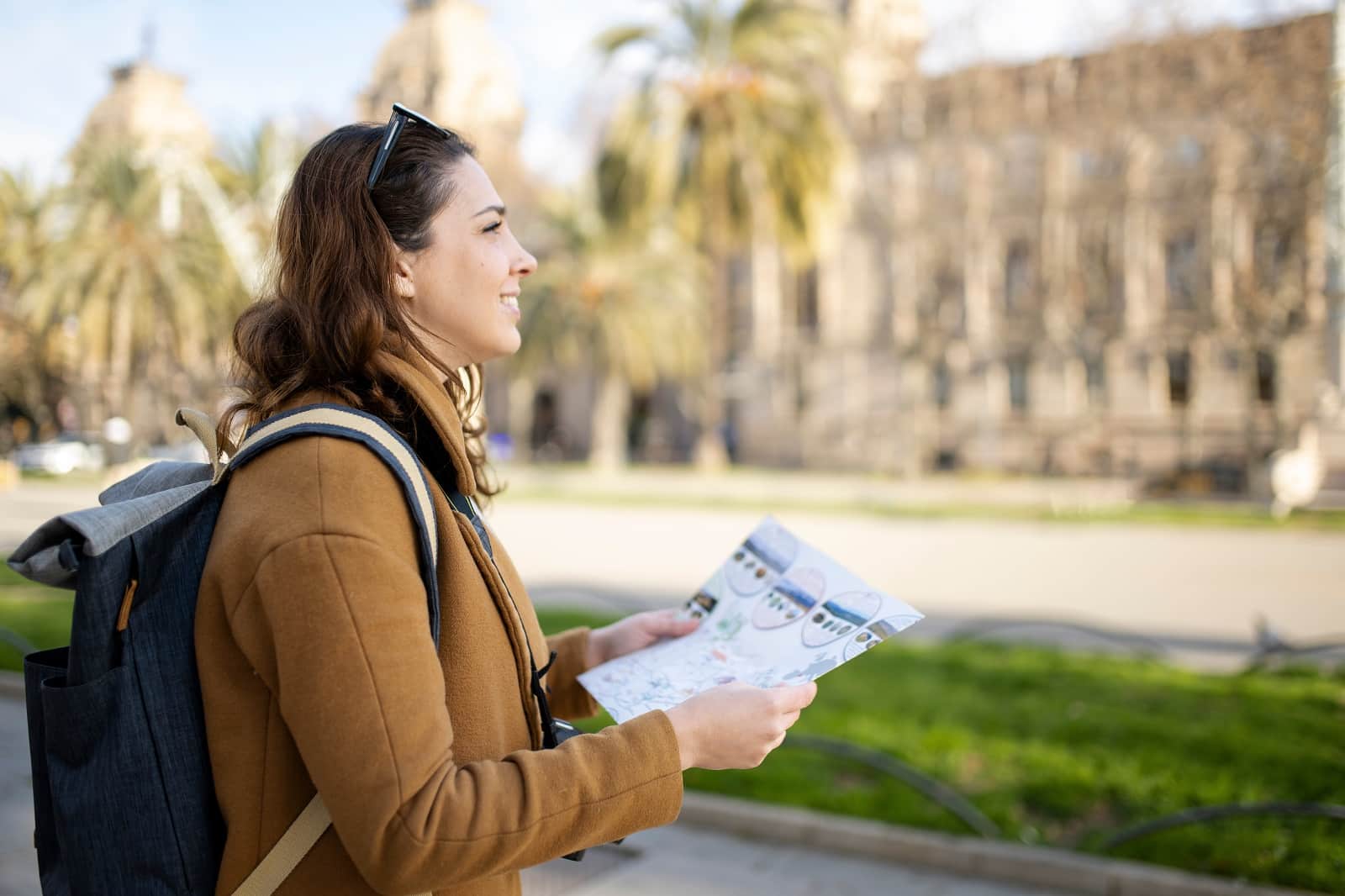
Unveiling the 21 Places Single Women Should Avoid at All Costs
Image Credit: Shutterstock / Carles Iturbe
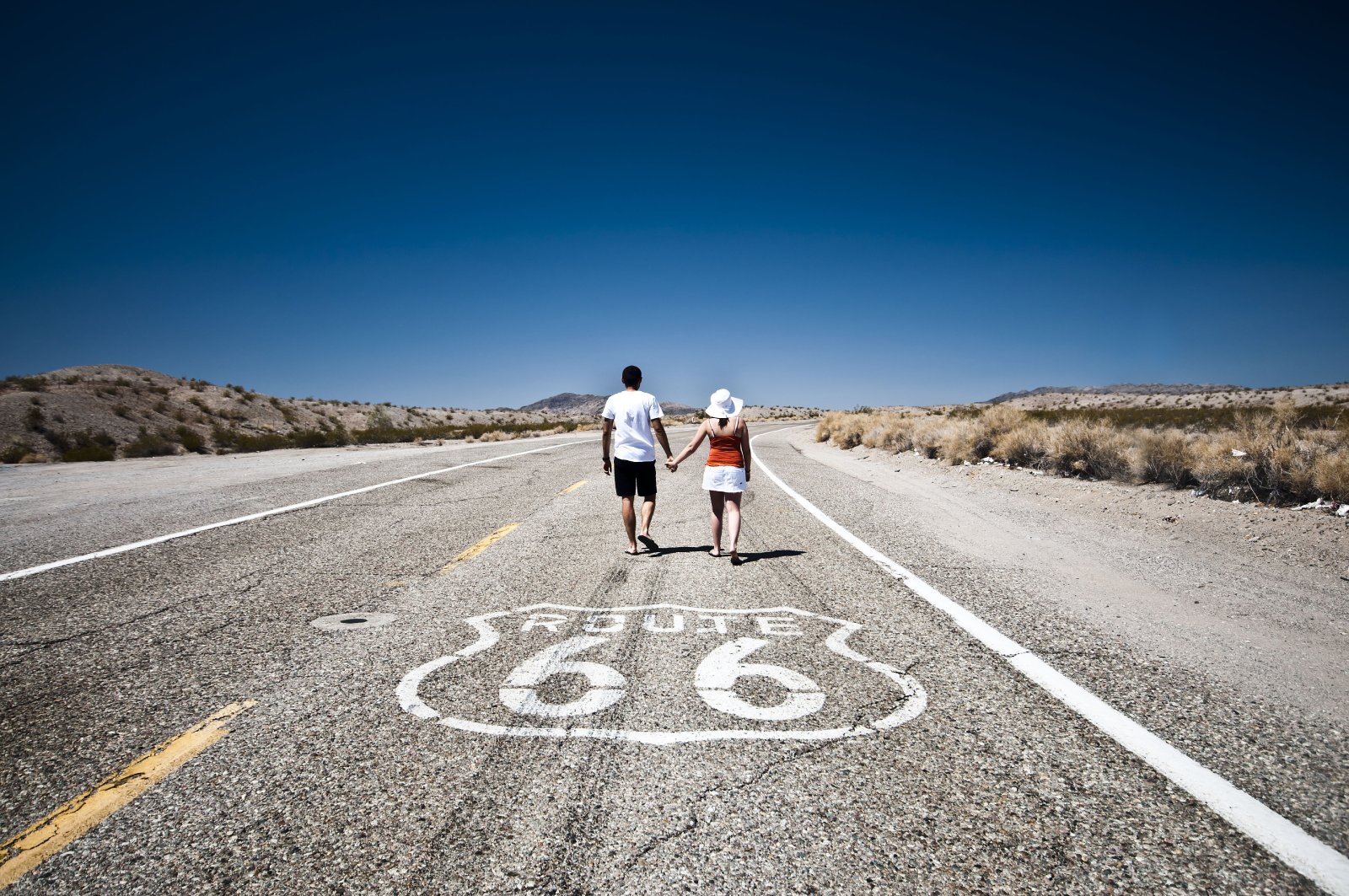
Ghost Roads of America: 12 Haunted Highways with Tales of Terror and Creepy Rest Stops
Image Credit: Shutterstock / donvictorio
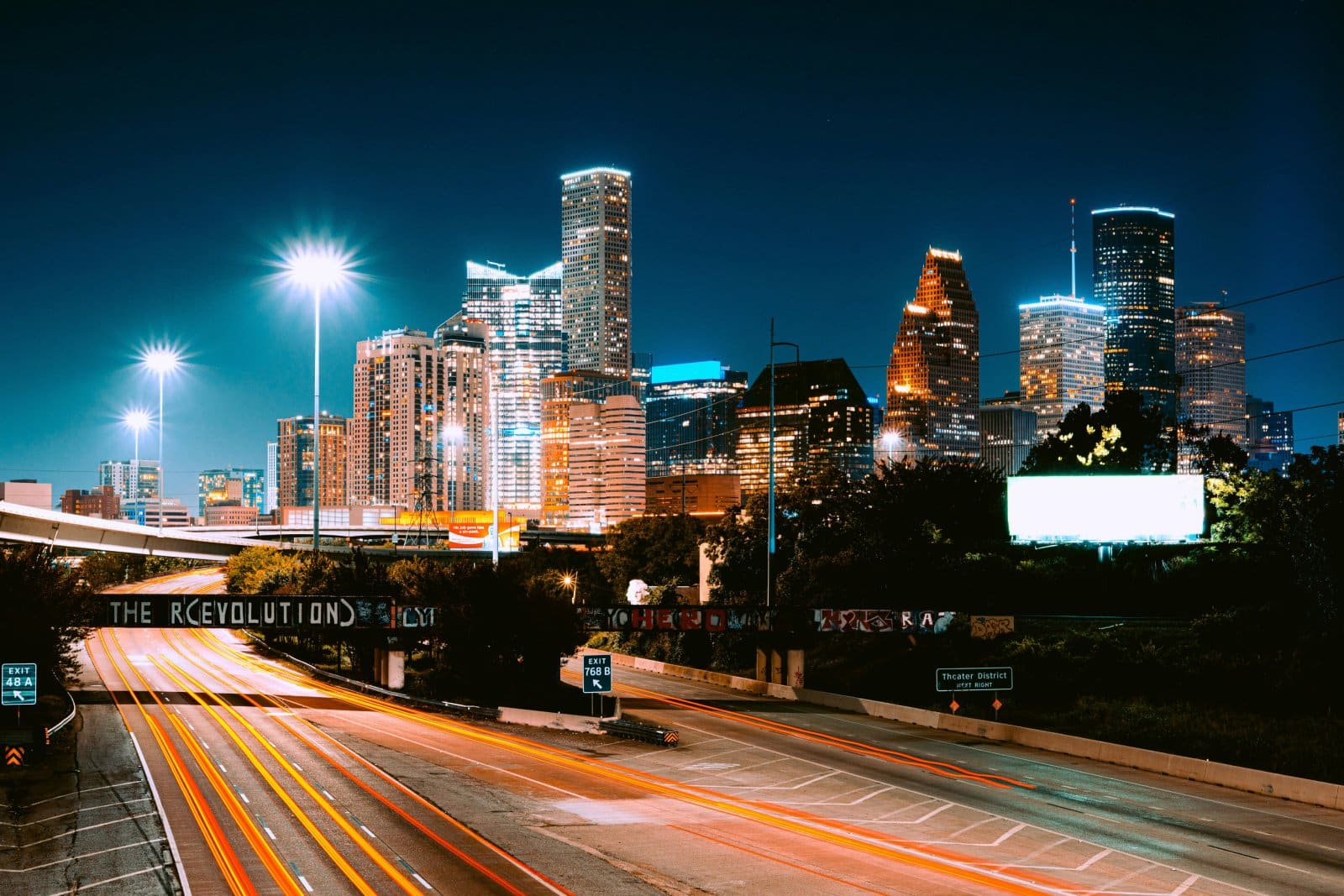
18 High-Crime Cities in the US You Should Avoid
Image Credit: Pexels / Adrian Newell

20 Things That Americans Tolerate That Canadians Would Never Accept
Image Credit: Shutterstock / Nicoleta Ionescu
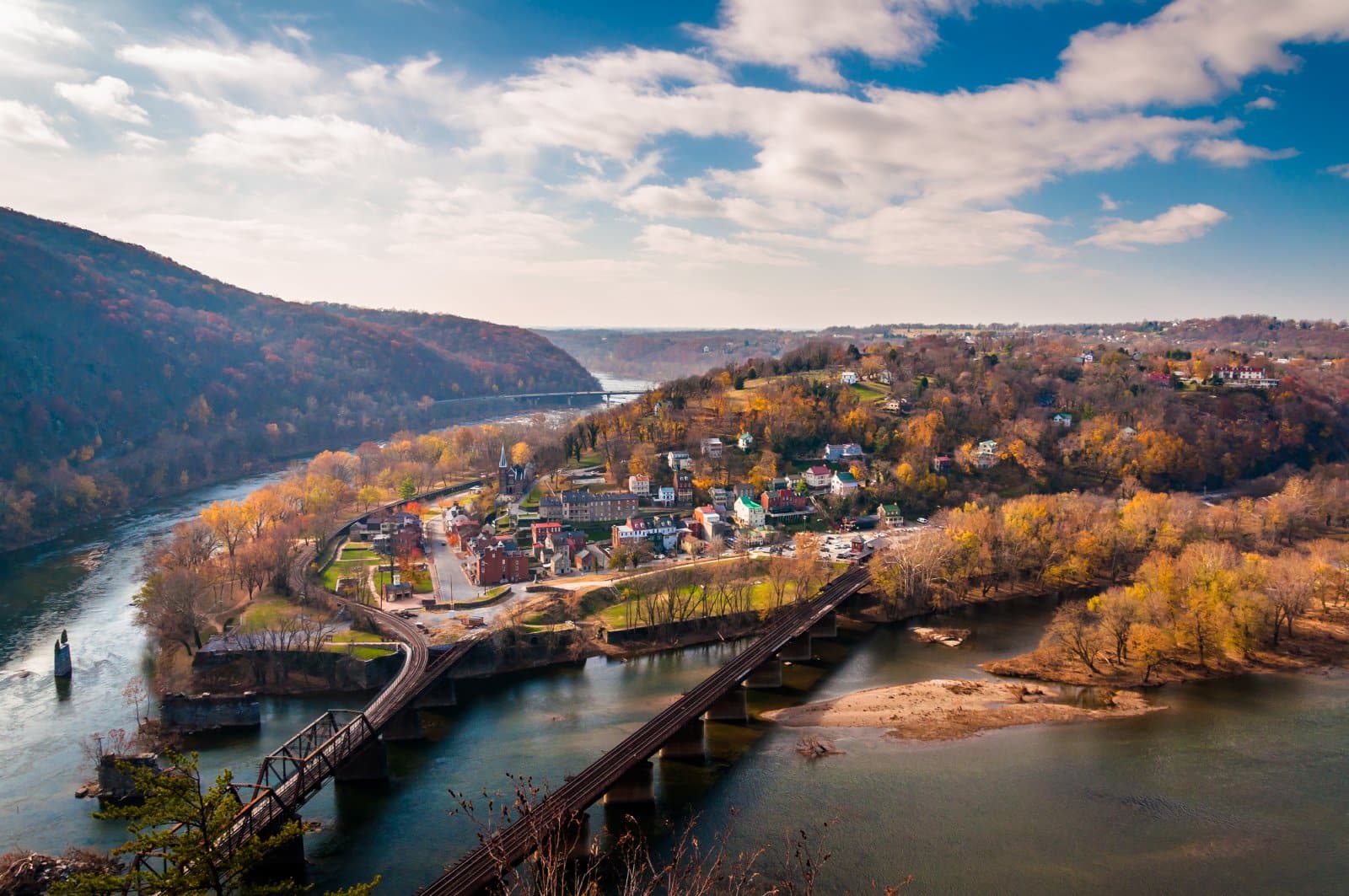
22 of America’s Most Charming Towns
Image Credit: Shutterstock / Nejdet Duzen
The post 20 Safety Hacks Every American Needs When Traveling Abroad republished on Passing Thru with permission from The Green Voyage .
Featured Image Credit: Shutterstock / carlesmiro.
For transparency, this content was partly developed with AI assistance and carefully curated by an experienced editor to be informative and ensure accuracy.
More for You
Stephen Hawking once gave a simple answer as to whether there was a God
I found Dad washing the car with a paintbrush. His dogs knew exactly what was happening
More than 40 children missing in Nevada
The 18 Best High-Waisted Bikinis To Make You Feel Confident and Chic
Gardener issues warning over the dangers of a common tomato-growing mistake: ‘Why do we all have to learn this the hard way?’
Looming over Trump’s conviction: Reversal by the ‘13th juror’
'America's Got Talent' judges blown away by middle school janitor's voice, instantly earns Golden Buzzer
'Big Bang Theory' Fans Congratulate Kaley Cuoco as She Announces Career Milestone
Woman Fosters Stray Who Gave Birth To Her Puppies Alone In The Rain
Mother who ignored her kids at half-marathon finish line speaks out against critics
The 5 most common deathbed regrets, according to a palliative care nurse
This Is the Only Store-Bought Mayo That Julia Child Used
Trump campaign sends Bob Good cease-and-desist over yard signs
Subaru slashes lease price of iconic model by 40%: 'A great car for someone looking to get into an EV for cheap'
Hannah Waddingham Turns Down People Who Are 'Now Suddenly' Interested in Working With Her: 'We Remember'
Chennedy Carter Sends Blunt Message to Haters After Caitlin Clark Foul
Naturally Repel Pests From Your Garden With An Item From Your Kitchen
3 seafoods that are only popular because of marketing schemes
15 “As Seen On TV” Products That Are Well Worth The Money
Driver shares annoying photo of oil company truck parked in EV charging spot: 'I don't get this at all'
41 Ways to Stay Safe While Traveling Alone As A Woman
03/30/2023 by Kristin Addis 70 Comments
One of the most common emails I get from solo female travel hopefuls is in regards to safety. Maybe you’re worried that being alone will make you a target, your friends and family are telling you that you’re being irresponsible by going out into this big and scary world on your own, or your own inner-voice is holding you back with visions of worst-case scenarios.
Well screw all of that!
I’ve traveled for over ten years now, almost exclusively by myself, and even in countries that are considered ‘dangerous’, with almost no issues whatsoever. What’s my secret? I believe that traveling alone has actually helped me stay safe. Why? My intuition is sharper, I am more aware of my surroundings because there’s nobody distracting me, and when locals see me, a girl on her own, they are more likely to want to help me than harm me.
The truth is, you already have the skills you need to stay safe when you travel. They’re the same skills you use at home to stay safe. But you don’t have to take my word alone for it. I asked 30 other solo female travelers to give me their best safety tips for traveling alone, and this is what we have to say about solo female travel safety:
Table of Contents
Trust Your Gut

1. Politeness is never more important than safety.
The world would be a better place if everyone was thoughtful and kind. Sometimes people (especially women) let courtesy override our gut instincts because we don’t want to be rude or be told we’re “overreacting.” We should always trust our intuition and stop worrying about what other people think. Be nice when you want to, and choose safety when you don’t.
2. If something feels off, it probably is.
It’s SO important to go with your instincts. If you feel like something is off, it probably is. At the same time, if your gut tells you it’s all good, it probably is. Trust me, my gut almost never lets me down.
3. Have a backup to couchsurfing, always.
If you’re couchsurfing and the situation feels uncomfortable, just leave! Make sure you have alternate accommodations in mind. Print out or write down the addresses of the closest hostels so you know you have somewhere to go if your arrangements go south.
4. Don’t make too many assumptions.
Be open to positivity and don’t assume everyone is out to get you. I honestly rarely even think about ‘safety’ per se as I find most all folks friendly and helpful and not out to somehow harm me. Such harm can come via walking down the street of my hometown after dark, and I see little difference if I’m backpacking across South Africa (yes, even in -OMG- Johannesburg ), skipping around Egypt, or traveling in Colombia.
Stay Aware and Be Less of a Target
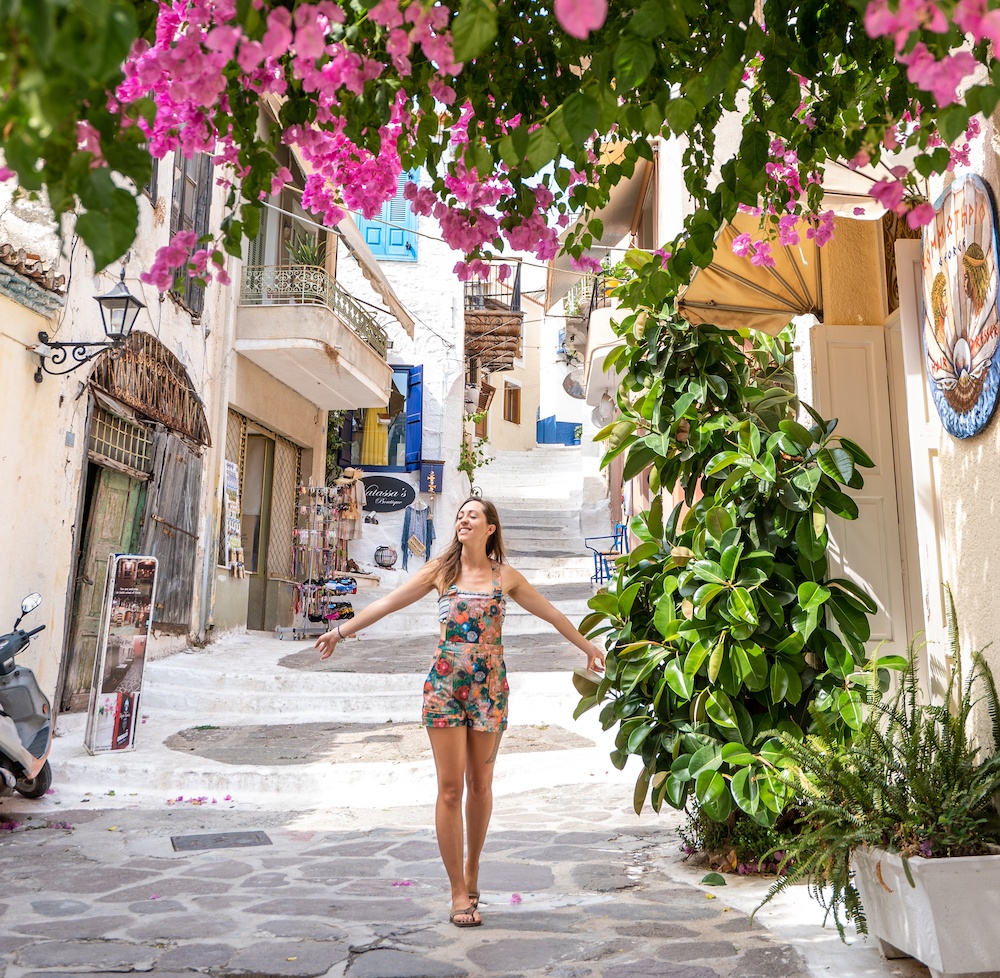
5. Hide money: the tampon trick.
Conceal cash by rolling it up tightly and sticking it in an empty tampon applicator (unused!!). Slide it back into the wrapper and you’re set. Not many pickpockets will try to steal a tampon from your pocket!
6. Don’t flaunt your valuables.
Don’t flaunt your valuables too much. This should seem obvious, but you’d be surprised how many people I see with their phones out on city streets or wearing jewelry when they travel! Just keep it hidden or at home. You don’t need to wear expensive rings and earrings when you travel.
7. …or just leave them at home.
When in doubt, just travel without fancy jewelry. Most of the time you don’t need it, and why risk being robbed just for the bling?
8. Don’t use headphones while walking.
It makes you less aware of your surroundings and also usually signifies to a would-be mugger that you probably have a smartphone in your pocket.
9. Pretend to talk on the phone.
If you end up walking alone somewhere, pretend you’re on the phone. Muggers will probably ignore you for fear that you could tip someone off.
10. Walk with your head held high.
I’m a big advocate of walking with your back straight and your head held high and looking people right in the eye when they address you. Learn to walk like a man.
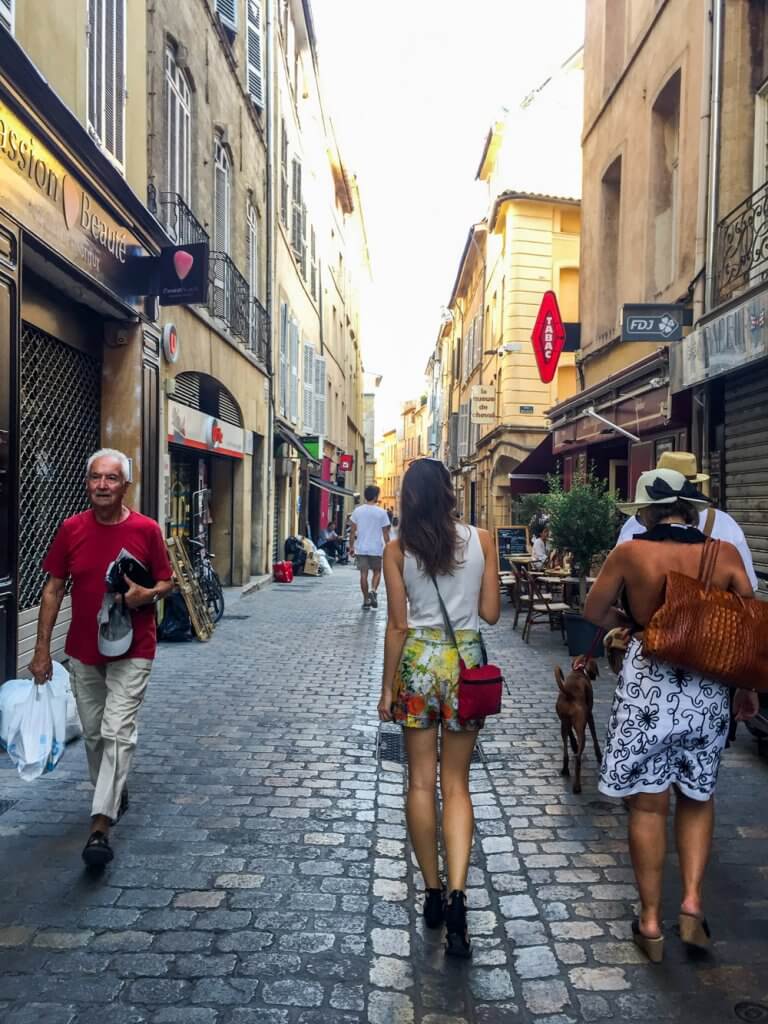
11. Get familiar with local scams.
Make sure you know of popular scams and problem areas within the city/region where you’re planning to travel. This isn’t to scare you silly before you start traveling, but rather just to be more aware of the place you’re heading to.
12. Mind the booze.
It is ok to have a couple of drinks but getting drunk in a foreign and unknown place could put you in danger and get you lost.
13. …and other substances.
Simply put, drugs put you in a vulnerable position. Plus, consuming them contributes to drug trafficking, which is a big no-no anyways. It’s not worth it.
14. Read up on modest dress.
Dressing appropriately can save you a lot of trouble, research appropriate clothing for women wherever you go. Areas that are hot and humid are normally more comfortable in shorts and sleeveless tops, but they may not be suitable for certain traditions, cultures, and locations.
15. Keep your things with you.
When taking a taxi, keep your stuff with you in the back seat so that you retain control over when you can get out. It can be useful if the cab is taking a longer route, tries to overcharge you, or if things feel uncomfortable. Whenever possible, put your bag in the back seat with you, so if you ever need to jump out quickly, you can!
Talk to Locals
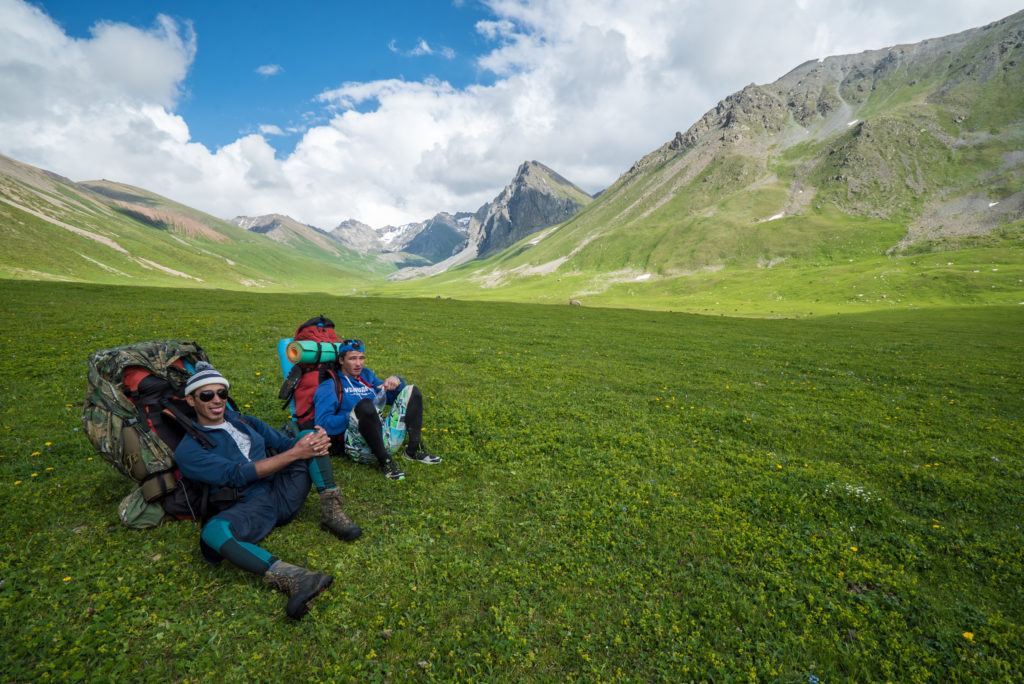
16. Take a walking tour on day one.
A walking tour is one of the best ways to warm up to a new destination. It gives you the lay of the city, and helps you find your way around without getting lost the first time. Tour guides will usually point out any areas you might want to steer clear of (as well as cool local spots that are not available on travel guidebooks), which will help you feel more confident about finding your own way around the city after being led by an expert.
17. Try a fun class.
Combine fun and safety with this tip. I love taking a ballet class at a local dance school to meet locals (you could do the same with a yoga or other class). Locals can give you a great idea of where to go and what to avoid, plus, if they show you around that’s even better!
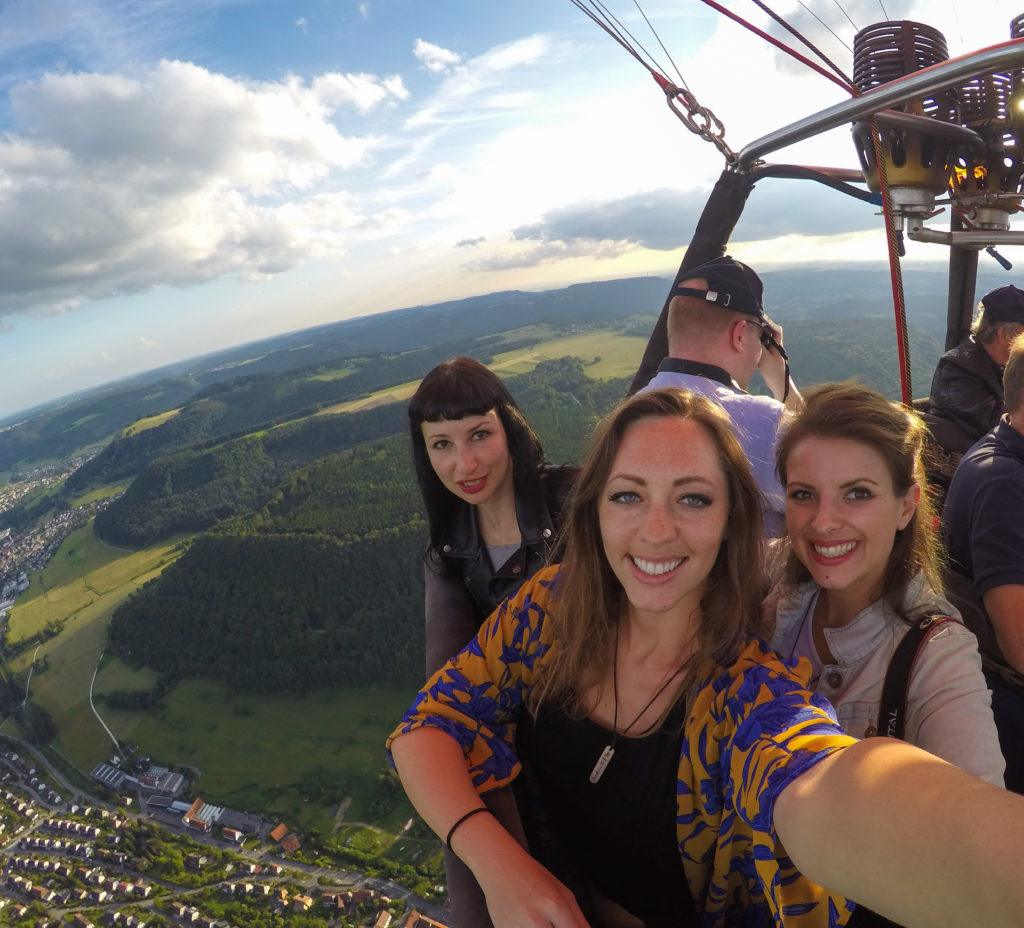
18. Explore possible connections.
Do you already have connections in the country? Ask around on Facebook or ask locals. When I was traveling alone, I asked a local friend whether he knew anyone in the town with who I could travel together with. It turns out that he has a nephew who was enjoying school holiday and could accompany me to explore the way locals do. I suggest solo female travelers who are planning to travel to cities perceived as dangerous to look around at their friends to see if they have any connections to local citizens at the destination city.
19. Look for other women.
From my experience, women look after women, which is heartwarming. I travel solo, and local women are often really helpful. When I meet these women, I’m no longer alone.
20. Be careful on apps.
A lot of travelers like to download dating apps like Tinder and Bumble to meet people while they’re traveling. This can actually be a fun way to meet locals, but be super careful. Always let someone know where you’re going and make it clear to your date what your intentions are.
21. Learn a bit of the local language.
At least being able to say “ thank you ” or “ hello ” can help build trust with people and show them you’ve made an effort to learn about your destination. I think this makes people more likely to help you if you need it.

First Name:
Transit Safely
22. walk strategically..
If I’m traveling solo after dark, I’ll often walk relatively close to a couple or a family. Usually, if I shoot them a smile, they’ll see that I’m not stalking them but instead looking to walk with people. You’re less of a target if you’re by other people. If you ever do feel like you’re being followed, pop into the nearest restaurant or hotel. These usually have someone who speaks English and they’re more than happy to help.
23. Don’t be stingy on transportation.
Another tip that came up several times is knowing when to splurge and when to save. Don’t be a cheapskate is my new motto after spending a night in a seedy place alone.
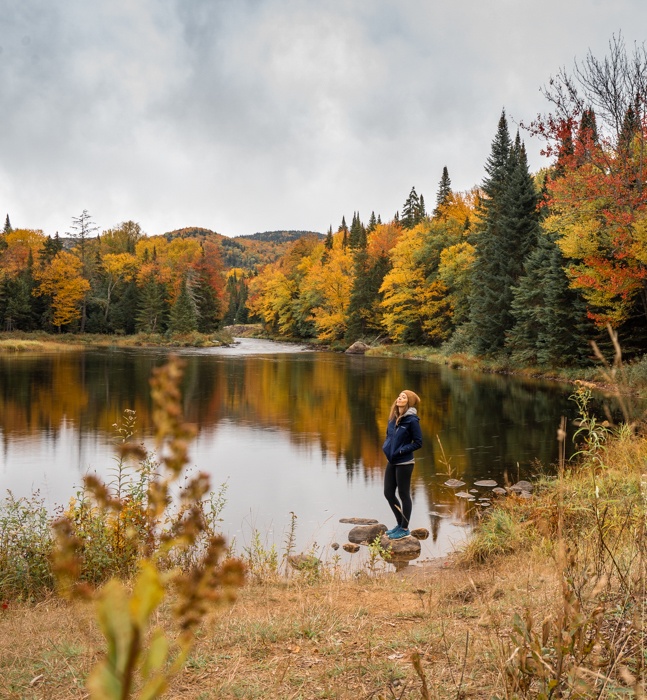
24. Opt for Uber when you can.
This counts for taxis, too. Personally, I always use Uber when I’m in South Africa or a country where taxis are often controlled by gangsters. The app tracks the driver and you, keeping both of your information in the system. Even better, the payment is done through the app via credit card so no money is exchanged. Travel budgets are a good thing, but be willing to ‘splurge’ when it relates to your safety. Pay for taxis at night instead of walking alone.
25. See if there are any other ride-sharing apps.
Some places don’t have Uber but might have alternatives like DiDi and Grab, which work exactly like Uber but are often cheaper. They track your trip the same way, so they are just as safe.
26. Choose your driver wisely.
Another good taxi tip if you don’t have a SIM card to use Uber is to take the driver who is least interested or maybe even sleeping. Chances are lower that he/she will have malicious plans!
27. Don’t travel at night.
Avoid traveling by train/bus/taxi by night if possible. Arrange to arrive at a new location in the light of day. Not only will you feel more at ease and be able to be more aware of your surroundings but there will also be more people around, giving you a more secure feeling.
28. Have your accommodation details on hand.
I always grab the business card or ask front desk/concierge to write down the name, address, and phone number of my accommodation. That way if I get lost or am in a cab and can’t communicate with a driver, I can hand it to them and I can get back home.
29. Only take official taxis.
Research what official taxis look like in your destination and only take those. In many places, there are fake taxis that can actually be part of human trafficking schemes and other crimes.
Bring These With You
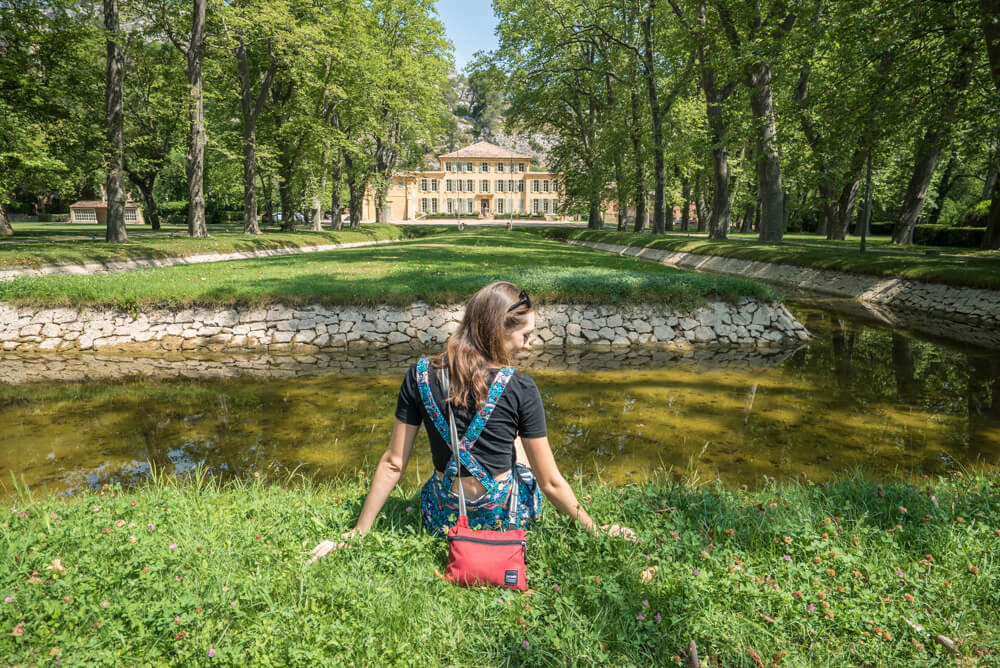
30. A dummy wallet
Carry decoy money in a dummy wallet. Keeping most of your cash in your bra/money belt/wherever is great, but if someone wants cash from you and you have nothing to hand them, they could get angry or even violent. I always keep a few small bills in my wallet just in case, and the bigger bills elsewhere.
31. Mosquito spray as a weapon
In many countries, such as most of Europe, carrying mace or pepper spray is considered a concealed weapon. To get around this, I’d suggest using mosquito spray instead or using a miniature hairspray as a sneaky pepper spray replacement. All of those hurt when they get into someone’s eyes.
32. A personal alarm
Most crimes are crimes of opportunity, so it’s really all about putting yourself in the ‘too hard’ basket. Consider carrying a personal safety alarm ( the Vigilant one ) in your pocket that gives off a hell of a sound if you were to pull it.
33. Door stopper
Invest in an alarm door stop (only like $15) that both slows someone in opening your door and also sounds an alarm when someone is trying to open it.
34. Flashlight
I put a flashlight in my shoe. If there’s ever an emergency at night I worry I’d forget a flashlight- but I’d always put my shoes on!
35. Headlamp
If you’re camping or staying somewhere with rustic accommodations (aka, with an outdoor bathroom), keep yourself safe from critters or creepers by bringing a headlamp. That way, you’ll have plenty of light, and it’s hands-free.
36. A slash-proof bag
Bring slash-proof, RFID-blocking, and locking baggage with you. I religiously use my PacSafe cross-body bag and wire mesh bag protector and to date, knock on wood, have never had anything notable stolen. No method is completely fail-proof, but by using items like these, I make myself the most difficult and annoying person in the guest house or on the street to rob.
READ NEXT: The best travel purses for women
37. Portable safe
This is similar to the slash-proof bag, but can be locked with a padlock. Pacsafe has these and they’re super convenient because you can leave your valuables in your accommodations or bring them with you safely.
Stay Connected
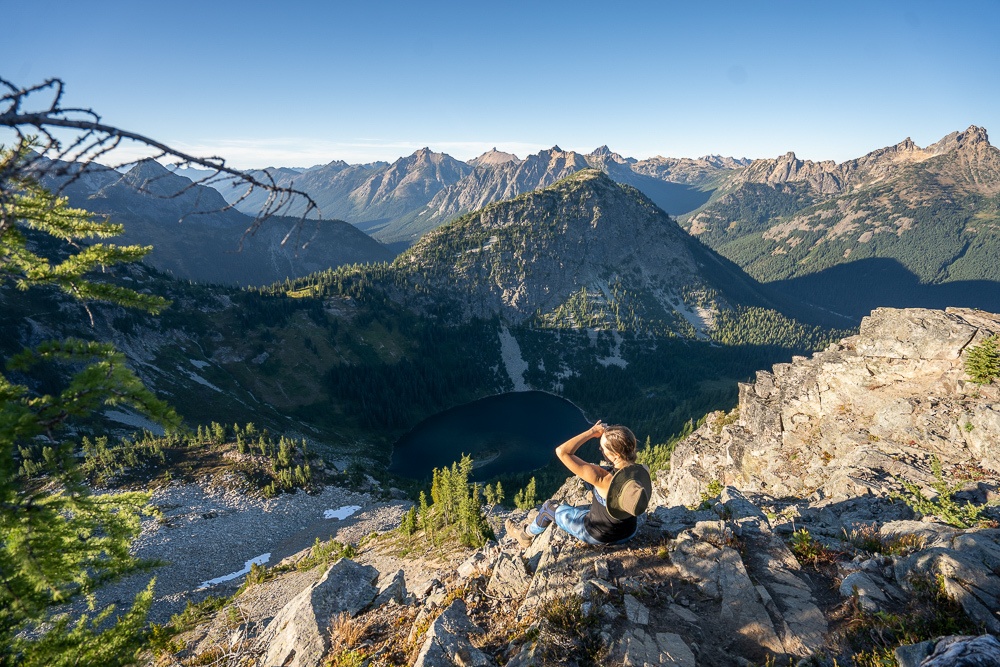
38. Check in with someone at home.
While you don’t have to check in with family or friends every day, it can be a good idea to regularly update some form of social media while on the road. Whether it’s Twitter, Facebook, Instagram, or even Foursquare/Swarm, these digital breadcrumbs can give peace of mind to others that you’re safe, wherever you are.
39. Share your live location.
You can share your live location for up to a day at a time with Whatsapp. That way, someone will know exactly where you are if you’re hiking or walking anywhere unfamiliar.
40. Keep someone in the loop of your plans.
Let others know of your travel plans. I email people a copy of my itinerary and let them know if I change it.
Most Importantly, Enjoy It

41. Get the most out of your solo experience.
Sometimes you need to be alone. To get some peace, to get space to think, and to be at peace with the world and oneself. Sometimes this is only possible when there are no other people around when you have time to talk to yourself, listen to yourself, and leave go of all the hectic and stress of everyday life. Enjoy this time. Take your time and do whatever YOU want. Go for a walk (in the daytime) just by yourself, sit in a café, go in a museum or do something adventurous. It can be anything. And try also not to speak to anyone. Just yourself. You will see that you actually enjoy your own company way more than you would have expected.
I hope these safety tips help you stay safe and confident, and if you ever need a little encouragement, just remember how many women are out there traveling alone and having a fabulous time doing it! What are your top 3 safety tips when traveling alone?
About Kristin Addis
Kristin Addis is the founder and CEO of Be My Travel Muse, a resource for female travelers all around the world since 2012. She's traveled solo to over 65 countries and has brought over 150 women on her all-female adventure tours from Botswana to the Alaskan tundra.
Leave a Reply Cancel reply
Your email address will not be published. Required fields are marked *
Save my name, email, and website in this browser for the next time I comment.
subscribe to our newsletter
This site uses Akismet to reduce spam. Learn how your comment data is processed .
Jenna Tarasco says
03/15/2016 at 10:08 am
All of these are invaluable tips! Genius idea #24! I never would have thought of using Mozzie/hairspray as “Pepper Spray”!
Kristin says
03/15/2016 at 2:36 pm
I didn’t either until seeing it on a message board!
03/15/2016 at 10:58 am
These are all great tips, although for me personally some of them would be a little bit too much precaution – but I guess it depends on the place you’re travelling at. My go-to strategy is also to be the person who is the most difficult target, which also means looking confident when you walk around and generally a bit tough. I remember reading about some study that showed that muggers, pickpockets and whatnot don’t tend to go for people that carry themselves in a certain way.
I am also terrible with directions and maps, so usually I just wander off without knowing too much about the surroundings. If I do end up in a place I don’t know, I look for women and children. As long as there are both of them on the streets, I know the area is probably safe for me, too.
03/15/2016 at 2:46 pm
I agree with your tips and I think some of these are too much caution for Europe but just the right amount for South Africa, for example. Just depends on where you are but how you carry yourself is huge, I think!
03/15/2016 at 6:01 pm
There were a couple here that I never thought of before; picking an uninterested taxi driver is brilliant xD I have yet to visit somewhere that’s considered “dangerous,” and so far I haven’t had to use any more caution than I would at home. But these tips will be good to keep in mind when I do make it to those places.
03/16/2016 at 2:44 pm
A lot of these are overkill for most of the world but in Cities like Johannesburg I’d follow them all.
Sonja Riemenschneider says
03/16/2016 at 9:21 am
Great tips, I never would have thought of some of these. This is getting me excited to do some more solo travel soon! Thanks for including my tampon tip, lol!
03/16/2016 at 2:42 pm
It’s such a great idea!
Brianna says
03/16/2016 at 11:31 am
Definitely got a kick out of the tampon applicator tip. What I’m confused by is when you’ve stored your money in a tampon applicator (or bra or what have you), how do you just casually pull it out when you want to pay for something?
03/16/2016 at 2:41 pm
I am not that casual about it. No shame.
04/13/2019 at 8:02 am
I usually have two wallets- one for small sums of cash and another (or a money-belt) for the rest. That way it’s easier for me to pay for stuff but still if that is stollen I’m not left with no money at all 🙂
Aleah | SolitaryWanderer says
03/17/2016 at 9:49 am
Great tips, Kristin. Thanks for including mine. I would love to have a personal safety alarm. I think it would be more effective than a whistle.
03/20/2016 at 8:23 am
I really, truly appreciate how much time and effort and thoughtfulness you put into your posts (specifically) on solo female travel. Last year, when I was just starting to toss around the idea of long-term solo travel, your writing did so much to help me to start thinking of that as a viable option rather than just a daydream. (And it’s done a bit to calm my mom’s nerves, too, I think.) <3 You're rockin' it.
03/24/2016 at 4:20 pm
That’s so great, Dylan! It’s so encouraging to know that it helps women go live out their dreams. Happy travels!
bluebirdcab says
03/26/2016 at 6:19 pm
I appreciate your post! women has power we know it how to use it.
04/20/2016 at 8:15 am
Awwww Kristin, I didn’t even realise you’d featured my bonkers tip (bonkers, but damn useful in a sticky situation!). Thanks girl 🙂
05/13/2016 at 6:27 am
I think by using common sense, making good decisions, and above all else, having confidence in yourself and your ability to travel on your own, you’ll be rewarded with rich experiences — and great stories to tell your friends.
Mahmoud says
05/23/2016 at 12:44 pm
Thank you for sharing the amazing tips! It is really great that you provided some useful tip to help keeping all of our solo travelers safe! I’m sure there are too many solo would like to travel but they are not sure about their safety and comfort. Hopefully your shared tips will help more solo to travel. Thanks
Katrina Peria says
06/27/2016 at 1:05 am
Good read, Kristin! I really do agree with #20! Haha, especially when you live in our country (PH). Considering hundreds of islands you could choose travelling to. Security assurance is what most people here are concern about since you get to travel to different places via taxi especially when you’re a DIY-person. Anyway, thanks for these awesome tips and hacks! I love it! 🙂
06/28/2016 at 3:55 am
Good read, Kristin! I really do agree with #20! Haha, especially when you live in our country (PH). Considering hundreds of islands you could choose travelling to. Security assurance is what most people here are concern about since you get to travel to different places via taxi especially when you’re a DIY-person. Anyway, thanks for these awesome tips and hacks! I love it!
Morgan says
07/29/2016 at 12:16 pm
I totally agree with you! Traveling alone as a woman can be really dangerous, so it’s important to know the area well always be aware. These are great tips for staying safe! Thanks for the pointers!
larissa says
08/31/2016 at 1:06 pm
These are some great tips that I think everyone should know. I always make sure to be aware of my surroundings and to gauge the environment and the vibes I am getting from a certain place. As many said, it is so important to lean on your gut feeling.
Monica says
10/22/2016 at 6:26 pm
I did quite a bit of solo travel 20+ years ago…before social media and all the fantastic info that is available now. I made a few mistakes in my youth…an Oktoberfest adventure for one, which looking back, I was lucky. Frequently, I would visit relatives in Rome but spend most of my time exploring on my own. Sad to say, I witnessed many muggings, but was never a victim myself. All of 5 foot nothing, I’m not an imposing figure but I carried myself with an attitude and awareness at all times. Now I travel to Rome with my husband and I can’t seem to make him understand that he can’t walk around with his head in the clouds like he does here in PA. Not to worry. I know how to keep us both safe! Be daring and adventurous…reading your blog is making me long for my solo travel days and think that I might still have some ahead of me!
10/23/2016 at 8:40 am
I know plenty of married and coupled people who travel solo from time to time. I think it’s a great thing whether you’re single or hitched!
Yeah, I’ve known lots of people to have been robbed, but very few women, actually, who have had issues further than that. Like you said you just have to be very aware and let the whole world know that.
vittoria says
12/25/2016 at 9:08 am
I’m planning a W or pheraps O paine circuit next march SOLO, my husband is always working so… thank you for all your advices and for how u encourage us to follow our dreams! Many greetings from Italy!
12/25/2016 at 9:34 am
You’ll meet plenty of people. Have fun!
Karoline D says
02/27/2017 at 10:55 am
Hey Kristin, being a solo traveler myself this was indeed an excellent guide for me. Trusting my intuitions has always been one of my greatest strengths while traveling alone. I am so fuelled by my adventurous urge that seldom people follow me to my destinations. So probably I will be traveling alone for a long long time. So thanks for sharing these tips which have indeed been a great help.
02/27/2017 at 11:13 am
I feel the same, but I always meet awesome people wherever I go, so I’m never alone. I’m sure the same is true for you 🙂
Travel Lover says
09/03/2017 at 11:17 am
This is really a great post. It is going to help me a lot when next time I will travel alone. Thanks a lot for sharing it with us.
09/10/2017 at 4:27 am
Thank you so much for sharing this article, I really enjoyed reading your blog post, keep writing guys.
kanchan Thakur says
09/26/2017 at 2:48 am
Thank you for sharing amazing tips. Solo travelling is a challenge for itself, specially for women. It is the best option to self analysis. For my safety, cost and interest are really on high priority
Andrea says
10/17/2017 at 9:24 pm
Thanks for the tips, you girls are amazing!!!
Rose Clara says
11/16/2017 at 4:16 am
Thanks Kristin for amazing or I will say few innovative tips too, I have been reading various blogs as I’m planning to travel alone and guess what you have written & shared some of the best tips… So thank you so much, i really appreciate for writing it for us..
Linnea Smith says
11/16/2017 at 4:47 am
Hey Kristin these 31 tips are great and various inspirational for a girl like me to know these. As now I have started travelling to alone. I had just came from a trip to India and now ready to explore my bucket list.. #AswesomeTipsFromKristin
11/16/2017 at 7:31 am
Awesome I’m glad you found them helpful and I think that’s super cool that you went to India! It’s still on my list.
04/01/2018 at 6:06 am
My relationship is going south so as a reflex action I booked flights for myself a few months ago. I’m planning my first solo trip to London (it’s not a massive deal I’m just flying from Ireland) but it’s a big deal for me as this will be my first trip away by myself. I typed into Google places for female solo travelers and I came across your blog. I’m a bit nervous but finding your blog has really helped me. Especially the how to keep safe part as this is my biggest worry. I feel like when I come home from London in a few weeks I’ll be booking to somewhere further, maybe Vienna or Geneva. It’s made me feel better seeing that other women were nervous too at the beginning. Now I’m nervous and excited so thank you! People tell me that once I go away by myself and see how great it is just doing what I want to do, I won’t be able to stop. I hope that’s the case!
04/01/2018 at 9:52 pm
It’s certainly been the case with me! The freedom is amazing and it leaves so much room for meeting amazing people and having random, ridiculous, heart expanding experiences. Just be sure to join something social right away so that you meet people easily, like a walking tour or a food tour, or stay somewhere social like a hostel. Have fun! You got this!
08/23/2018 at 5:18 am
I think these are all really good expecially trusting your gut after 2.5 years traveling by myself its the main thing i have learnt to do. also i would like to add having a cheap ring nothing special but being able to wear it on wedding finger as i noticed quickly in the pacific islands people looking at that hand and asking if i was alone i felt safer saying no with a ring on that hand rather than without.
08/23/2018 at 8:05 am
If it makes you feel safer then it’s a simple little thing that doesn’t take up much space 🙂 I agree that the more time you’re on the road, the more your trust in yourself to make the right call grows.
Jessica Hill says
12/29/2018 at 6:51 pm
“Politeness is never more important than safety”–SO STINKING TRUE!
01/23/2019 at 4:22 pm
Fantastic post. Love the hairspray idea!
Akshay says
02/02/2019 at 1:49 am
Thank You for sharing a nice blog. In my opinion this one could be highly debatable and theoretically women should be able to dress how they like wherever they go, but that is just not realistic. One of the best lessons I learned traveling alone over the years is how to blend in, and that means dressing like a local when necessary. If that means covering your hair, cover your hair. Or wear long sleeves or loose clothes, etc. It’s important to do some research before traveling and check out what the local customs are.
03/16/2019 at 4:03 am
Great post! Any tips for keeping your belongings safe on the beach if you wanted to go into the sea? (Apart from simply not taking anything with you ha!)
03/16/2019 at 8:07 am
I would lock it all up wherever my accommodation is or go with other people whom I’ve met along the way and take turns. If all else fails you can bring a locking bag (pacsafe has options) and lock it to something immovable like a tree.
Emmanuel Obarhua says
05/16/2019 at 5:52 am
Hey! I can’t agree with you more on talking with locals. And thanks for the tip by Souvenir Finder on how to get some. Well done.
09/01/2019 at 8:21 pm
These are all extremely helpful. I wish more blogs offered practical advice like this instead of just generic, “Don’t walk alone at night.” Thanks for providing some actionable tips. 🙂
09/02/2019 at 9:44 am
Glad you found it helpful!
10/17/2019 at 7:38 am
I love the hairspray idea! I don’t use hairspray but now I’ll buy a small can from some cheap brand and hope I never have to use it. I have a can of dry shampoo that sadly didn’t work for my hair somewhere, would it be as effective (painful in the eyes) as hairspray? It also has a nice brown color so anyone I spray with it would stick out like a sore thumb… ?
10/19/2019 at 11:50 am
Not sure, but bug spray would work, too!
Mary Nichole says
05/13/2020 at 6:04 am
Great tips!! I love traveling and I’m a solo traveler. These tips will be very helpful for me, before reading your blog I don’t even have an idea about some of your tips. Thank you for sharing such amazing and helpful tips. Keep posting such amazing content.
11/23/2020 at 5:19 am
Thank you so much for sharing important tips for solo female traveler. This is going to helpful for women like me who loves to travel alone and explore beautiful places. I am gonna share this article with all my friends! .
Linda White says
03/04/2021 at 9:16 am
Excellent Safety tips for women traveling alone.
Michelle says
06/26/2021 at 5:37 am
If someone asks, do you tell them that you are traveling alone?
06/26/2021 at 2:34 pm
Totally depends on the source of the question. If it’s another person I met in a hostel and they’re clearly also traveling solo, or they’re totally nonthreatening, then I’ll be honest, but if a man I don’t know, a taxi driver, or anyone who doesn’t need to be privy to the information asks, then I say I’m on my way to meet up with someone – usually a boyfriend or husband. I don’t feel the need to EVER be polite or honest if it jeopardizes my safety.
10/05/2021 at 5:50 am
Obua Phionah Charity says
08/19/2022 at 4:55 am
Besides having people besides you,,,,,gotta be self conscience of what is happening in a particular place and what might come your way.
08/19/2022 at 5:18 am
The 31st way of leaving alone brings out a clear picture of wat my life really says about me.
04/01/2023 at 11:42 pm
Point 1: “Politeness is never more important than safety” hits home. Thanks for the hands down exhaustive safety guide for women. I’m planning some trip later this year and found this right on time.
vignesh says
04/26/2023 at 6:06 am
Thank you so much for sharing. I have found it extremely helpful
Are you planning a road trip? Here's how to travel safely in the summer heat
By jennifer vazquez • published may 22, 2024 • updated on may 22, 2024 at 3:52 pm, what to know.
The unofficial start of summer is just around the corner, and with it comes an anticipated increase in travelers by plane and car.
As temperatures rise, the National Highway Traffic Safety Administration is reminding summer drivers of some tips to keep travelers safe on the road and in the heat particularly if you are traveling by car to your vacation destination or decide to take on road trips.
- One of the most important tips is to make sure your vehicle's air conditioning system works.
24/7 New York news stream: Watch NBC 4 free wherever you are
According to the NHTSA , you can prepare your vehicle for your trip in hot weather by checking that your air conditioner functions properly since a lack of A/C on a particularly hot day could be dangerous, and even fatal for you and your passengers, especially those with underlying health conditions, children and the elderly.
Additionally, the NHTSA warns that you should NEVER leave children alone in the car, which can cause a heatstroke. According to the NHTSA, even on a 60-degree day, and with the windows cracked open, the temperatures inside a vehicle can reach fatal levels.
The administration also recommends drivers to inspect belts and hoses before and during a trip , since hot temperatures can degrade rubber belts and hoses posing danger. Make sure there are no bulges, blisters, cracks or cuts in those parts, and make sure to replace them if there are any signs of wear.
Get Tri-state area news and weather forecasts to your inbox. Sign up for NBC New York newsletters.
It is also important that you check for car recalls and make sure that your vehicle is in the clear. Additionally, make sure you are servicing your vehicle regularly and checking the battery and charging system especially if you car is fully electric.

Israel describes a permanent cease-fire in Gaza as a ‘nonstarter,' undermining Biden's proposal
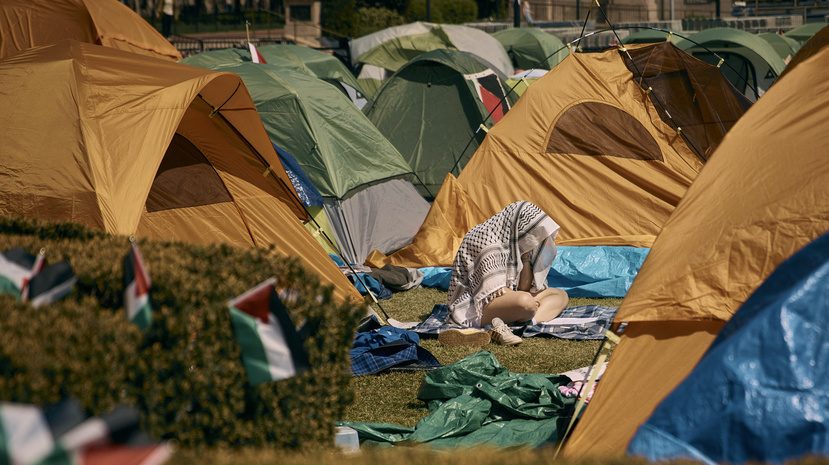
Tent encampment back on Columbia campus during alumni weekend, weeks after NYPD takedown
If you are traveling long distances or on a road trip, make sure to pack an emergency kit that includes a cell phone and charger, first aid kit, flashlight, jumper cables, nonperishable food, water and other necessary items in case your vehicle breaks down. You should also know how to work your vehicle’s driver-assistance technologies.
Drivers should also keep the gas tank as close to full whenever possible .
For more summer travel safety tips, visit Summer Driving & Road Trip Tips .
This article tagged under:
Protect Your Trip »
32 road trip essentials for adults and kids.
Travel more comfortably with these road trip must-haves.
Road Trip Essentials

Getty Images
While you don't necessarily need a lot of things for a successful road trip, certain items can't be overlooked. Read on to discover which items you should consider adding to your road trip packing list, or jump to the section on what to pack for kids .
Road trip essentials for adults
From roadside emergency must-haves to multipurpose gadgets you can use throughout your journey, these are some of the most helpful items to have on a road trip.
"Hanger" can make a road trip go south pretty quick. Pack your favorite snacks and put them in an easily accessible spot.

Courtesy of ICEMULE
You might want to bring a small cooler for any snacks and drinks that need to stay cold. If you don't already own one, the best cooler bags include the ICEMULE Classic (available in a variety of sizes) and the CleverMade Collapsible Cooler Bag .
A seat organizer like this one by YOOFAN can help you keep snacks, tissues and any other essentials close at hand. Plus, it can double as a reusable bag for any small purchases you make during your road trip.
USB charging cables
If you have USB ports in your car, buy a set of charging cables so you can keep your devices charged and also play music and podcasts from your phone. Compatible with Apple devices, this two-pack of Amazon Basics cables is well rated; for Samsung devices, try these Anker cables . Both sets have 3-foot cords, which are the perfect size for car travel.
Portable charger

Courtesy of INIU
Even if you have charging ports and cables in your car, a portable charger is good to have on hand, too. Travelers rave about the INIU Portable Charger for its slim, lightweight design and overall efficiency.
Jumper cables
A set of jumper cables is essential to have in your car at all times, whether you're driving 2 miles down the road or 200 miles away from home. The Energizer Jumper Cables are especially well rated. Available for less than $20 on Amazon, the 12-foot-long cables are perfect for any car type and come with a travel bag for easy storage. Longer cables are also available.
Portable tire inflator
A portable tire inflator can be a lifesaver if you find your tires have a slow leak during your trip. The AstroAl Air Compressor Tire Inflator is compact, so it won't take up much space among the other gear in your trunk, and it includes an LED flashlight with independent switch control. It is programmed to stop automatically once it hits the preset tire pressure and it comes with a 36-month warranty.
Other travelers prefer the ViAir 88P - 00088 Portable Compressor Kit , noting it works well with a wide variety of vehicles. In addition to a 12-foot air hose and a 9-foot power cord, the kit comes with alligator clamps that power your air compressor by attaching to your car's battery.

Courtesy of Snow Joe
If you're traveling during the winter months and/or to a destination where you might encounter snow and ice, make sure you have a snow broom in your car. The Snow Joe 4-in-1 Telescoping Broom is especially convenient for travel because of its lightweight, foldable design, and recent buyers confirm the foam head prevents any scratching. This snow broom also features an ice scraper and LED lights with a blinking functionality for emergencies.
Dashboard phone mount
Avoid distractions by installing a dashboard phone mount before your journey starts. The iOttie Easy One Touch 5 comes with a telescopic arm, a magnetic cord organizer and a strong-hold suction cup. Plus, its easy one-touch lock-and-release mechanism (a feature that is much appreciated among recent customers) makes taking your phone on and off the holder a breeze. If you don't like the rigidity of traditional dashboard phone mounts, consider choosing a phone mount with a flexible arm instead.
Car document holder
In the event that you get into a car accident or are pulled over by the police, having easy access to your car's registration, insurance information and owner's manual is crucial – whether you're traveling or not. This two-sided holder , which comes in a pack of two for less than $5 on Amazon, does the job.
Roadside emergency kit
For peace of mind, many travelers recommend an all-purpose roadside emergency kit . These kits are typically equipped with a tire pressure gauge, a utility knife, safety gloves, cable ties, a tow rope, tire repair tools, first-aid supplies, rain ponchos and other useful items.

Courtesy of Busy Co
Freshen up with the extra-large body wipes from Busy Co , which are suitable for dry, oily and combination skin types. They address a variety of skincare needs, including clarifying, toning, soothing and nourishing. Recent customers appreciated the large size of the wipes and said using them made them feel refreshed while traveling.
Lysol wipes
Disinfecting Lysol wipes are a must-have on your travel packing list. These cleaning wipes kill 99.9% of viruses and bacteria, so you can feel protected while on the road.
Disposable toilet seat covers
Using disposable toilet seat covers can help you avoid germs and stay clean when you stop for restroom breaks at gas stations, port-a-potties and campgrounds.
Nausea relief

Courtesy of Sea-Band
Long hours in the car might sound daunting to anyone prone to motion sickness. In those cases, having preventative nausea medicine like Dramamine can be a lifesaver. If you prefer a drug-free alternative, Sea-Bands are anti-nausea wristbands that use acupuncture as a natural remedy to reduce motion sickness. Travelers say these bands are highly effective at reducing nausea.
Hand sanitizer
From gas pumps to ATMs, you never know what germs you may encounter on a road trip. Protect yourself against viruses by keeping a bottle of hand sanitizer in your car.
Book or e-reader
Sitting in the car for hours can be painfully boring at times. Bring a good book or an e-reader like the Amazon Kindle Paperwhite , which puts thousands of books at your fingertips. The device boasts up to 10 weeks of battery life, adjustable warm light and a glare-free display, which recent reviewers said made marathon reading sessions a breeze. Meanwhile, kids can enjoy the Amazon Kindle Paperwhite Kids , which offers a special font for children with dyslexia and comes with a two-year warranty.
Rooftop cargo carrier
Save some space inside your vehicle by opting for a car roof cargo carrier. With an anti-slip mat and reinforced adjustable straps, the waterproof FIVKLEMNZ 15 Cubic Car Roof Bag Cargo Carrier from Amazon is suitable for any car type. Recent customers say that they had no problem getting it to stay in place even on high-speed roads.
Car trash can

Courtesy of Hotor
There's no doubt about it – road trips can generate a lot of trash. Keep your car clean on your next adventure with this Hotor car trash can from Amazon. Complete with an adjustable strap, mesh side panels for storage and a leakproof interior lining, this useful accessory comes highly recommended by travelers who find themselves frequently on the road.
Dog waste bags
Even if you don't have a dog, hear us out: Dog poop bags are useful for a variety of needs, from general waste to dirty diapers to unexpected accidents caused by motion sickness. The Earth Rated bags are 100% leakproof, and buyers agree they're effective at eliminating odors.
If you'll be sitting in the passenger's seat or backseat, bring a pair of earbuds or headphones. For kids, consider the fleece CozyPhones , which are volume-limiting for little ears and come in a variety of animal themes.
Travel pillow

Courtesy of Cabeau
Car passengers can get a bit more comfortable with the help of an ergonomic neck pillow for travel . Top-rated options include the Cabeau Evolution S3 and the MVLOC Travel Pillow .
Shield your eyes from the sun by picking up a good pair of sunglasses before your trip. Choose sunglasses that protect against the sun's UVA and UVB rays, and are polarized to block glare. Travelers love that these Ray-Ban Aviator Classic sunglasses come in a variety of tints and can even be customized to fit your needs. For a more budget-friendly option, check out these SUNGAIT Ultra Lightweight Rectangular Polarized Sunglasses from Amazon, which recent customers say are very comfortable and perfect for road tripping.
Beach blanket

Courtesy of WEKAPO
A large beach blanket or towel is one of the most versatile accessories you can bring on a road trip. You can use it to have a picnic lunch, to clean up a spill, to dry off playground equipment after a rainstorm and more.
Reusable water bottle
Skip the plastic bottles and opt for a high-quality reusable water bottle on your next trip. This 40-ounce bottle from Hydro Flask keeps drinks hot for 12 hours and cold for a full day. It also comes with a lid with a built-in straw, which consumers say makes it convenient for driving. For kids, a durable water bottle like this 12-ounce YETI Rambler fits the bill: Its stainless steel bottle is dishwasher-safe and shatter-resistant, a feature that parents love.
Tips on Trips and Expert Picks Newsletter
Travel tips, vacation ideas and more to make your next vacation stellar.
Sign up to receive the latest updates from U.S News & World Report and our trusted partners and sponsors. By clicking submit, you are agreeing to our Terms and Conditions & Privacy Policy .
Road trip essentials for kids
In addition to snacks, headphones, reusable water bottles, sunglasses and – depending whether your kids are in a car seat or not – travel pillows, the following items are essential to a successful road trip with kids.
Seatback organizer
A car seatback organizer lets you arrange road trip essentials on the back of the driver's or passenger's seat, where they're within reach of small hands. Many buyers said this seatback organizer from Amazon took some of the stress out of traveling with kids, thanks to its multipurpose storage compartments, including a place for a tablet and plenty of other spots to store key items for your trip.
Travel tray

Courtesy of LUSSO Gear
If your co-pilot is constantly turning around to pick up toys or pass out snacks, a backseat travel tray is in order. The LUSSO Gear Kids Travel Tray comes with a safety strap that can be secured to any car seat, and includes a dry-erase board table, a cup holder, a storage compartment for toys and a no-drop tablet viewing stand. Reviewers loved the tray's whiteboard area and said it was a great way to keep kids entertained on long car rides.
Window shade
Protect your backseat drivers from UVA and UVB rays with some window shades. Many parents like the shades by Enovoe , which come in a two- or four-pack.
Bag of small toys and activities
Load up on small toys you can surprise your kids with throughout the journey. Wikki Stix , Melissa & Doug Water Wow pads and sticker books are all good, low-cost activities, and you can find other cheap options at your local dollar and thrift stores. You might even add some candy to the mix, especially for that last leg of the trip.
Most parents want to keep screen time to a minimum, but all bets are off when it comes to travel. Consider a tablet like the Amazon Fire Kids , which comes with a protective case and one year of Amazon Kids+. Amazon Kids+ features thousands of ad-free books, games and apps; for any streaming services you have at home, you can download TV show episodes and movies so the kids don't need Wi-Fi to watch them.
Small blanket

Courtesy of Cubcoat
Bring a small blanket and/or other comfort item from home to ensure the kids are cozy and content in the backseat. You could also bring a Cubcoat , which is a two-in-one stuffed animal that transforms into a hoodie. Your child's furry friend (think bunnies, sloths and puppies) doubles as a soft, zip-up sweatshirt, and you get to save some space in your suitcase.
Kids travel journal
A kids travel journal makes it easy for your child to document their road trip and all the fun things they see and do. Plus, many kids journals feature world maps, puzzles, fun facts and more activities to keep boredom at bay.
Road trip tips
Plan your stops.
It can be helpful and fun to plan your road trip stops ahead of time. Break up the trip with stops at a pretty park, a quirky roadside attraction or a top-rated restaurant.
Debit cards and Venmo may be the way of the world nowadays, but you may still run into a few places on your journey that are cash-only. Be on the safe side by keeping some spare cash on hand.
Download a fuel savings app
You can save some money on fuel by using apps like GasBuddy , which will show you the cheapest gas prices in your area. Go the extra mile by signing up for a gas rewards credit card to get the most bang for your buck.
You might also be interested in:
- Vacation Packing List
- The Best Kids Luggage
- The Best Carry-on Luggage
- The Best Travel Insurance Companies
The Best Attraction in Every U.S. State

Tags: Travel , Travel Gear , Road Trips
World's Best Places To Visit
- # 1 South Island, New Zealand
- # 4 Bora Bora
If you make a purchase from our site, we may earn a commission. This does not affect the quality or independence of our editorial content.
You May Also Like
Top things to do in florida.
Gwen Pratesi May 31, 2024

The Best Travel Neck Pillows
Timothy J. Forster and Amanda Norcross May 30, 2024

The Best Whale Watching in Santa Barbara
John Rodwan and Suzanne Mason May 29, 2024

The Best Underseat Luggage
Rachael Hood May 28, 2024

Top Pride Parades and Celebrations
Suzanne Mason May 28, 2024

The Best Miami Boat Tours
Gwen Pratesi May 28, 2024

The Best Travel Purses
Rachael Hood May 24, 2024

The Best Beach Games
Gwen Pratesi May 24, 2024

The Best Branson Shows
Carrie A. Back May 23, 2024

The Best Beach Toys for Kids
Amanda Norcross May 23, 2024

5 simple ways to stay healthy, avoid sickness, and feel energized during your next business trip
- Insider spoke with three travel and wellness experts about staying healthy during a business trip.
- Staying hydrated and eating light foods will help maintain your regular routine while on the road.
- This article is part of "Work + Play," a series about blending business travel with personal experiences.

When it comes to business or leisure travel, it's common for travelers to come home feeling ill.
The combination of public transportation, disrupted sleep routines, and contact with high-use surfaces can contribute to travelers feeling under the weather. But if traveling is a big part of your job, there are things you can do — and not do — in order to make a healthy return home.
With business travel back in full swing, Insider spoke with three experts about what you can do to stay healthy on the road.
Take extra precautions during a flight
If you have plans to travel on a plane, which can be a hotbed of germs, there are a few extra precautions you can take.
"While we can't control the air around us, we can control the germs we may bring to our face with our hands," said Dr. Efrat LaMandre, founder of the health and wellness brand The Knew Method . "Therefore, avoid touching your face, eyes, and nose as they can all be entry points for germs."
Dr. LaMandre also advises travelers to stay hydrated because "drinking water during your flight keeps your mucous membranes moist, and dry passages and throat can make you more susceptible to respiratory infections."
Jerry Justin Alexidor is a frequent business traveler, and while his travel concierge company Black Zama is based in Tulum, Mexico, his travels take him all over the world. When he's flying, he makes an effort to keep to himself.
"I usually stay within my seating area and limit my movement," Alexidor said. "And if I can budget it, I upgrade to a premium economy or business class seat for some extra room. It makes me feel less claustrophobic and less like I'm breathing in the germs of other passengers."
Consider your food and drink intake
While we're traveling and away from our regular routines, it can be tempting to consume lots of high-calorie comfort foods. Priceline CEO Brett Keller travels often for work and makes an effort to choose healthier foods while he's on the road.
Related stories
"Airport food is generally heavy, and I try to avoid greasy food right before and after flights — so no pizza, burgers, or fries for me," Keller said. "I pick up lighter foods like sushi packs and bring extra snacks like sliced apples and power bars."
Another way to eat healthier on the road is to plan ahead. After a long day of traveling, our decision-making abilities are often impaired, and we might be more likely to reach for empty calories. Looking up what's available in the airport or in your hotel can result in healthier choices.
"Doing a little research about where you're headed allows you to prepare," Alexidor said. "When I go out to eat with clients on the road, I always ask the waiter questions about the food preparation, and of course, I keep myself hydrated."
Aim for low-impact exercises
Given the choice between getting up and going to the gym or laying in bed for an extra hour, most of us would choose the extra shut-eye. But getting a few minutes of low-impact exercise like walking or swimming can give your immune system an extra boost and help you sleep better at night.
"When I'm on the road, I try to get some time on the Stairmaster and/or the treadmill," Alexidor said. "While I don't over-exert myself when traveling for work, I feel more mentally and physically present when I get my cardio in."
If you can, consider heading outdoors for your workout. "I always try to run outside the same day I land," Keller explained. "A morning run allows me to explore the local area before spending all day in meetings, and the combination of fresh air, sunshine, and exercise energizes me for the day."
Practice good personal hygiene and cleaning routines
Frequent hand washing and using hand sanitizer are important ways to ward off any germs, along with cleaning high-use surfaces. Hotel rooms see a lot of turnover and cleaning on arrival should be a priority.
"The first order of business is heading to a local pharmacy and picking up some Lysol disinfectant," Alexidor said. "I wipe down the door knobs or any handles — a lesson learned throughout the pandemic that still applies today. I then spray down any areas that would touch my skin or body."
Above all, get rest
Of all of the precautions you can take, one of the best things to do is give your body rest before, during, and after your trip.
"You need to get your sleep, eat right, and take your supplements year-round so that you can boost your immunity to be able to handle the germs that are sure to come your way," Dr. LaMandre advised.
And when you're on the road, one of the best things to do is not to push yourself and try to keep a regular schedule. "I've learned not to stay out late your first night or two. Letting your body adjust to its new setting with good sleep, exercise, and hydration is probably the best way to avoid getting sick," Keller said.
- Main content
Main Content

IMAGES
VIDEO
COMMENTS
Generally, foods served hot are usually safe to eat as well as dry and packaged foods. Bottled, canned, and hot drinks are usually safe to drink. Learn more about how to choose safer food and drinks to prevent getting sick. Protect yourself from the sun. Apply sunscreen with SPF 15 or higher when traveling.
Travel Safety Tips to Keep You Safe. After traveling the world for the past 10-years, I've learned a lot about staying safe - sometimes the hard way. Here are my best travel safety tips for avoiding trouble on your trip. Nothing ruins an adventure quicker than getting sick, scammed or robbed when you travel!
Wearing expensive, flashy jewelry is one sure way to make yourself an obvious target for robbery. Leave it at home, friends, especially if you plan to travel to crowded areas! 2. Drink responsibly. This has to be one of the most important safety tips for travelers.
Here are our picks for the best travel credit cards of 2023, including those best for: Flexibility, point transfers and a large bonus: Chase Sapphire Preferred® Card. No annual fee: Bank of ...
Our top travel safety tips will help you protect yourself (and your things), avoid common scams, stay safe, and more(!) as you travel the world. With things finally getting back to normal after over 2.5 years of a global catastrophe, everyone is excited to pack their bags and hit the road.
10. Deter thieves with locks on your bags. Whenever possible, lock your bag. If your purse isn't zipped and lockable or doesn't have a flap that covers its opening, it's not good for travel. If someone next to you on a crowded bus can quietly slip their hand in your purse, they absolutely will.
Secure your valuables. It's always important to protect your personal property, be it in parked rental cars, beach bags, or wallets and phones in your usually secure pockets. Again, travel advisories will often alert you to higher areas of petty theft but be on the extra lookout when traveling someplace new.
Travel safety tips for kids and babies. Bring a car seat. Whether you're driving or flying, youngsters that require a car seat need to have one during vacation. If you're flying and have a lot of stops, it might make sense to invest in a lightweight car seat that's easy to move from plane to plane. And make sure your car seat is FAA approved.
Testing before and after travel can lower the risk of spreading the virus that causes COVID-19. If you haven't been vaccinated, the CDC recommends getting a viral test within three days before your trip. Delay travel if you're waiting for test results. Keep a copy of your results with you when you travel.
Dial 00 1 202-501-4444 if calling from overseas, or. Let family members know they can contact the embassy or consulate for help if they are worried about your safety while abroad. Prepare a travel health kit with items you may need, especially those items that may be difficult to find at your destination.
Follow these germ-fighting tips.) In Pristina, Kosovo, a worker in a protective suit sprays disinfectant in a hotel room to prevent the spread of coronavirus. Avoid elevators and, if able, "take ...
The right backpack is everything. This is another one of the travel safety tips that requires you to splurge a bit. Simply put, bags that aren't designed for security put you at risk for theft. This applies to all of your bags: luggage, day-packs, purses, bumbags, etc. Make sure your luggage is lockable.
Here is a list of 29 travel safety tips to help you set off on the right foot: 1. Research Your Destination. Before you embark on your journey, invest time in researching your chosen destination. Learning about the local culture, customs, and traditions not only enriches your travel experience but also helps you navigate unfamiliar situations.
TSA's Top Travel Tips. TSA partnered with Stars and Stripes News for special military guide. The special guide for service members and their families includes travel tips, such as how to prepare, pack and declare a firearm, checkpoint dos and don'ts, and an inside look at some of TSA's programs and employees, with a special military emphasis.
But in order to avoid riding in style with germs, there are some precautions you should take before you hit the road. Advertisement. Start by cleaning and disinfecting your vehicle thoroughly ...
Instead, put your phone, wallet, money, passport etc. in your front pocket where it's safer. If you are really concerned about pickpockets, you could also get a money belt. 5. Get Travel Insurance. There's a common saying among the travel community, "If you can't afford travel insurance, you can't afford to travel.".
The safety of public transportation varies from country to country. In many places, informal taxis or minibuses can be dangerous. This may especially affect those traveling alone. Find out what is and is not safe from reliable sources, such as local authorities or tourism officials. Consider these transport tips:
Being well rested and sober is key to being alert and exercising good judgment, both of which are key to your safety. If you are not one, the other, or both, recognize that fact and be extra careful. Walk with confidence. In tourist areas such as around the Eiffel Tower, meandering as a tourist makes sense.
Here are our tips to keep you safe. Have a safe, happy and prideful trip by researching your destination, understanding its laws, culture, finding out where to stay and meet other LGBTQ+ travelers, and where to go for help. New Zealand's network of cycle trails, scenic routes and relatively quiet roads make it an excellent destination for ...
Whether you travel often or you're getting ready for a once-in-a-lifetime vacation, it's important to think about safety as part of your travel preparations. The following tips can help travelers plan for a safe and comfortable trip and may reduce the risk of many different types of crimes, including sexual violence. Before you go. Share ...
Travel can be an exciting, eye-opening experience. It's easy to get caught up in the thrill of adventure. But don't forget about travel security and safety considerations while you're abroad. Follow these 7 travel safety tips to help you take a trip that's memorable for all the right reasons.
Turbulence is a common and anxiety-inducing experience for many air travelers. Recent incidents, including injuries and even a fatality, have raised concerns about its frequency and intensity. Experts explain that turbulence is caused by unstable air movements due to changes in wind speed and direction, and its occurrence may be increasing due to climate change. Despite its unpredictability ...
Provided by Passing Thru Travel. 5. Localize Your Phone. Image Credit: Shutterstock / LDprod. Ensure your phone works in your destination country. Having a working phone is crucial for navigation ...
11. Get familiar with local scams. Make sure you know of popular scams and problem areas within the city/region where you're planning to travel. This isn't to scare you silly before you start traveling, but rather just to be more aware of the place you're heading to. 12. Mind the booze.
Make sure there are no bulges, blisters, cracks or cuts in those parts, and make sure to replace them if there are any signs of wear. It is also important that you check for car recalls and make ...
Travel Safety. Try to only walk and park in lighted, populated areas. Keep fuel tank at least a quarter filled at all times. If your car breaks down, raise the hood or tie a white cloth tied to ...
32 Road Trip Essentials for Adults and Kids. Travel more comfortably with these road trip must-haves. By Alissa Grisler and Amanda Norcross. |. May 29, 2024, at 1:00 p.m. Road Trip Essentials.
Frequent hand washing and using hand sanitizer are important ways to ward off any germs, along with cleaning high-use surfaces. Hotel rooms see a lot of turnover and cleaning on arrival should be ...
CLIP 05/31/24. Details. Former secret service agent and author Evy Poumpouras joins TODAY to share tips to keep your home and belongings safe while you travel for summer vacation. Daytime Excerpt.
June 1, 2024. As summer temperatures rise, your phone's internal components can overheat, leading to major problems. By following these tips, you can keep your phone cool and functioning well even ...